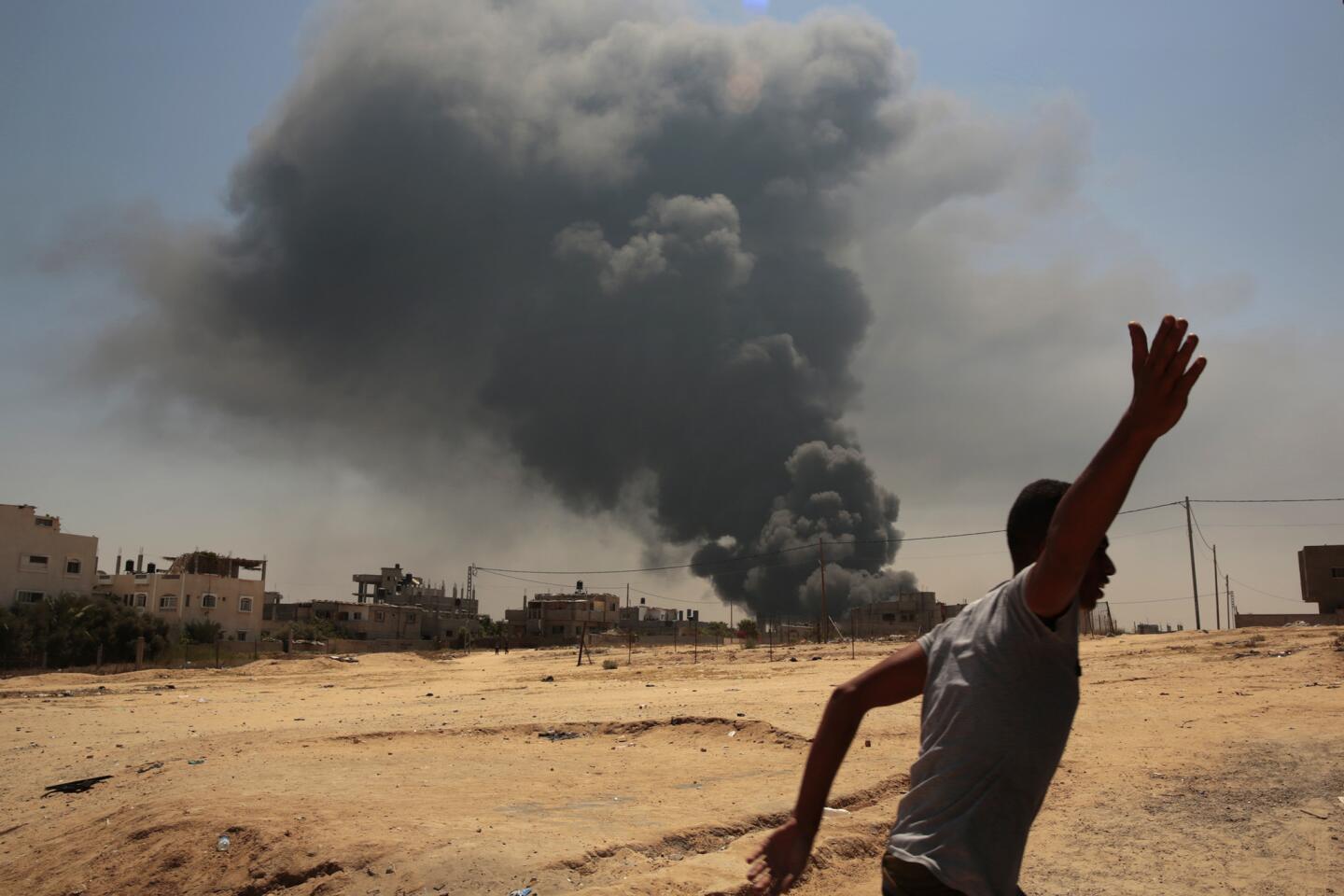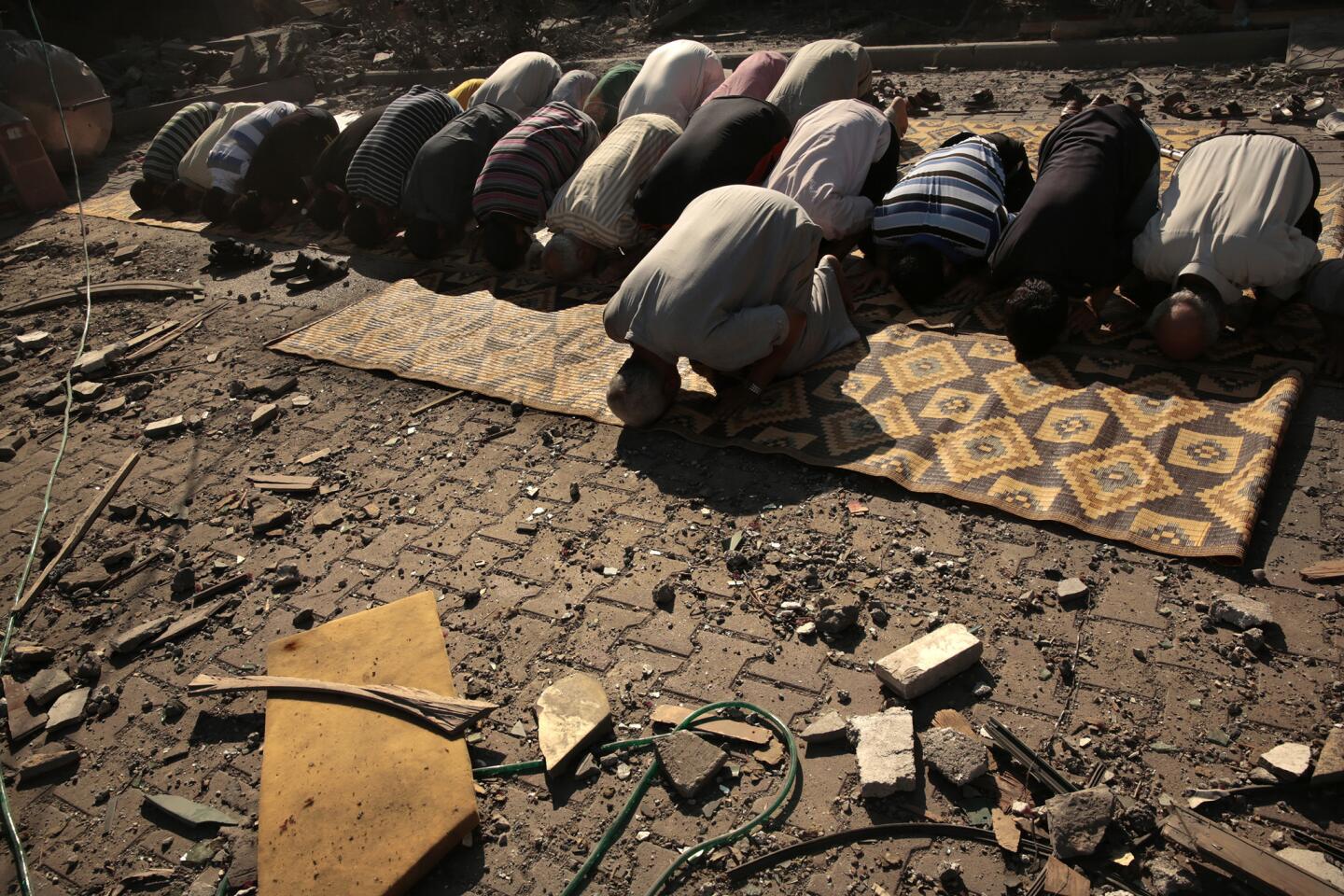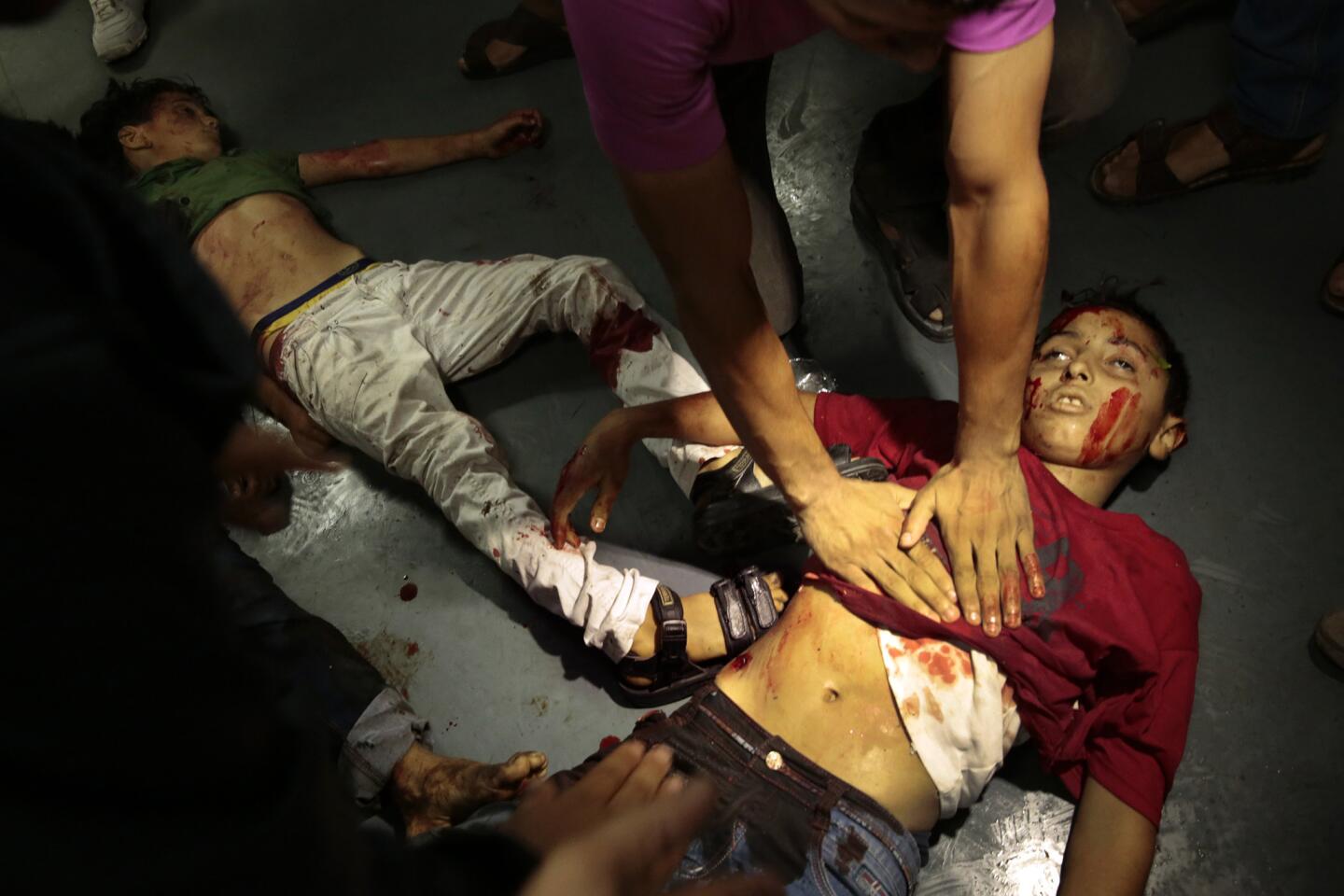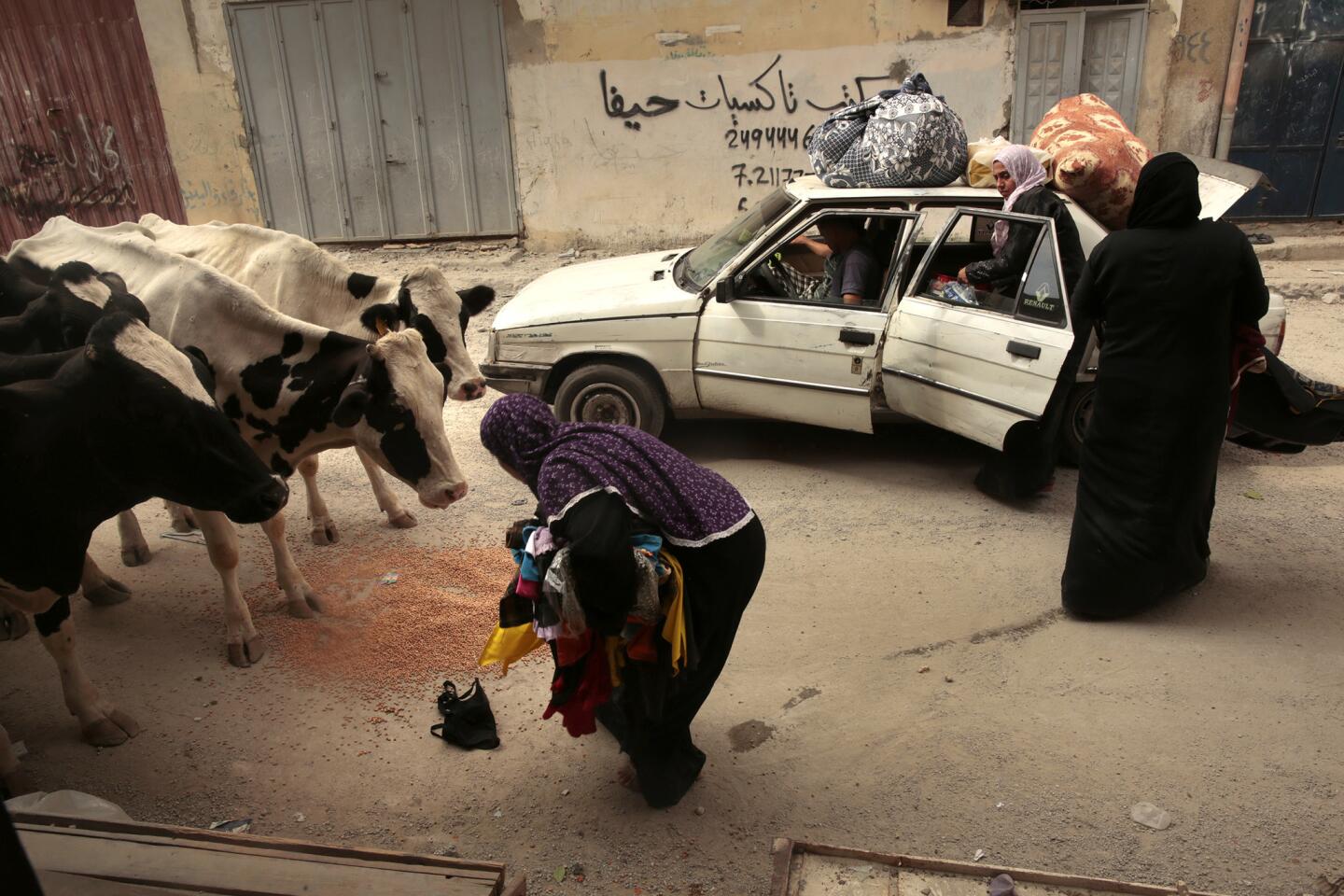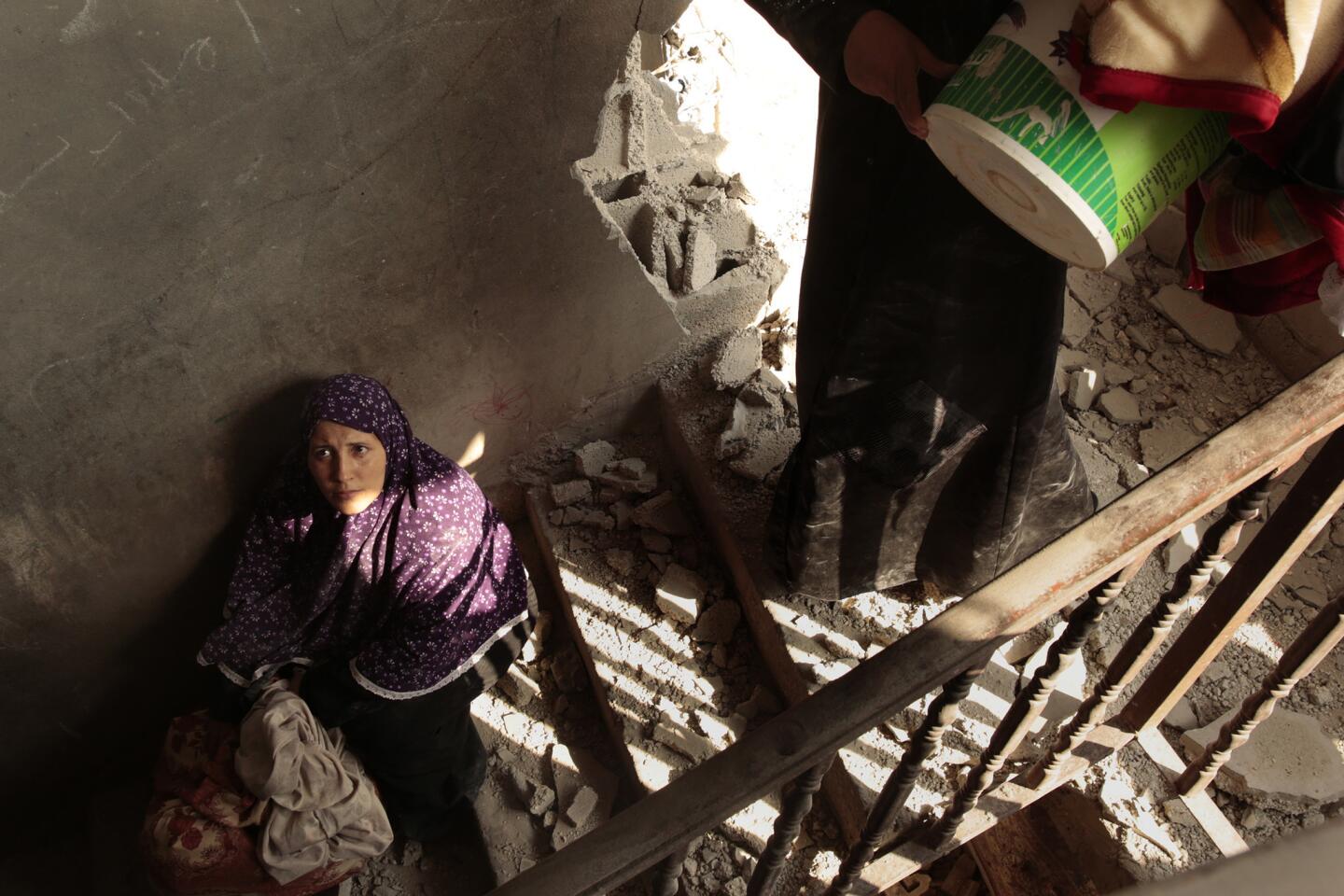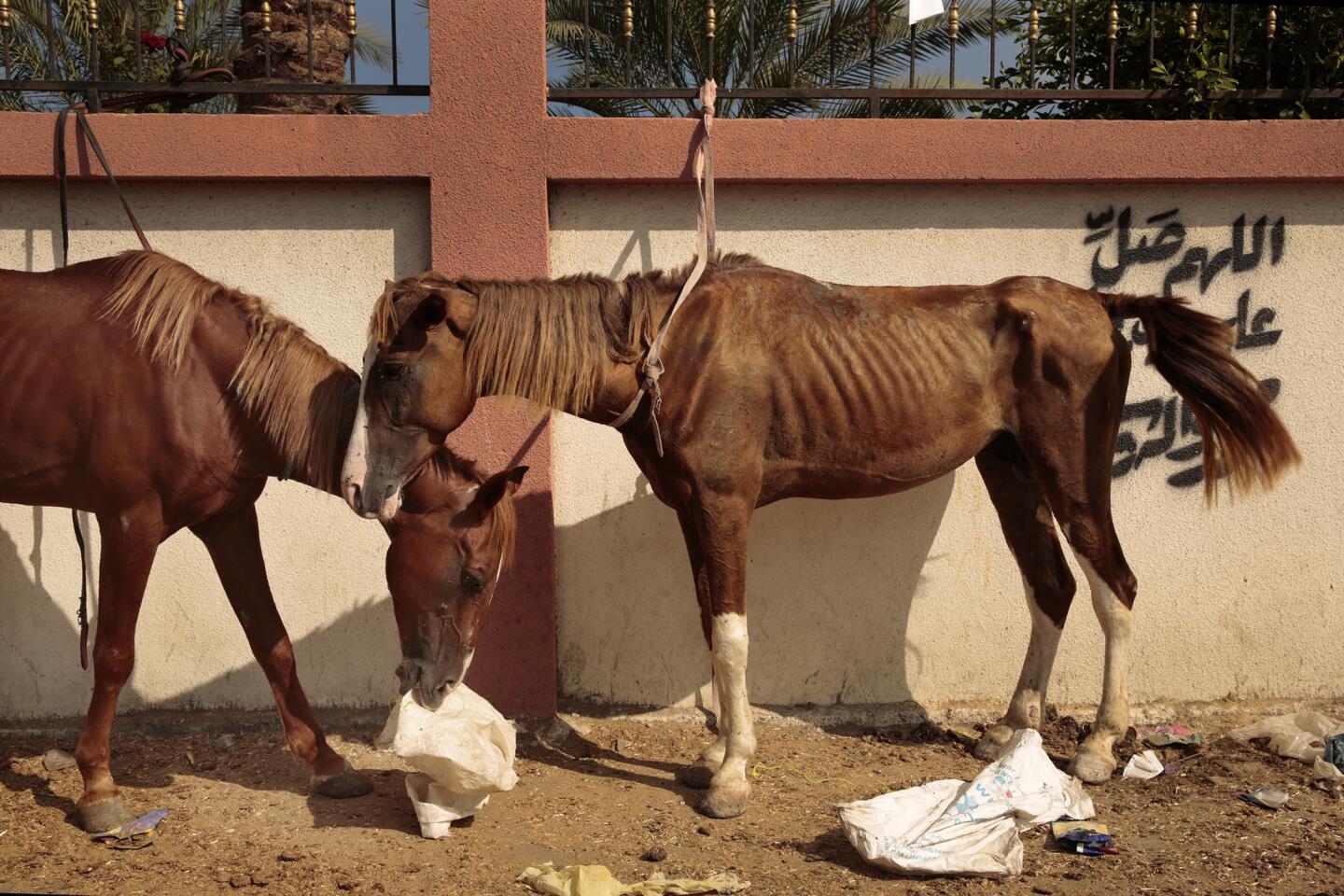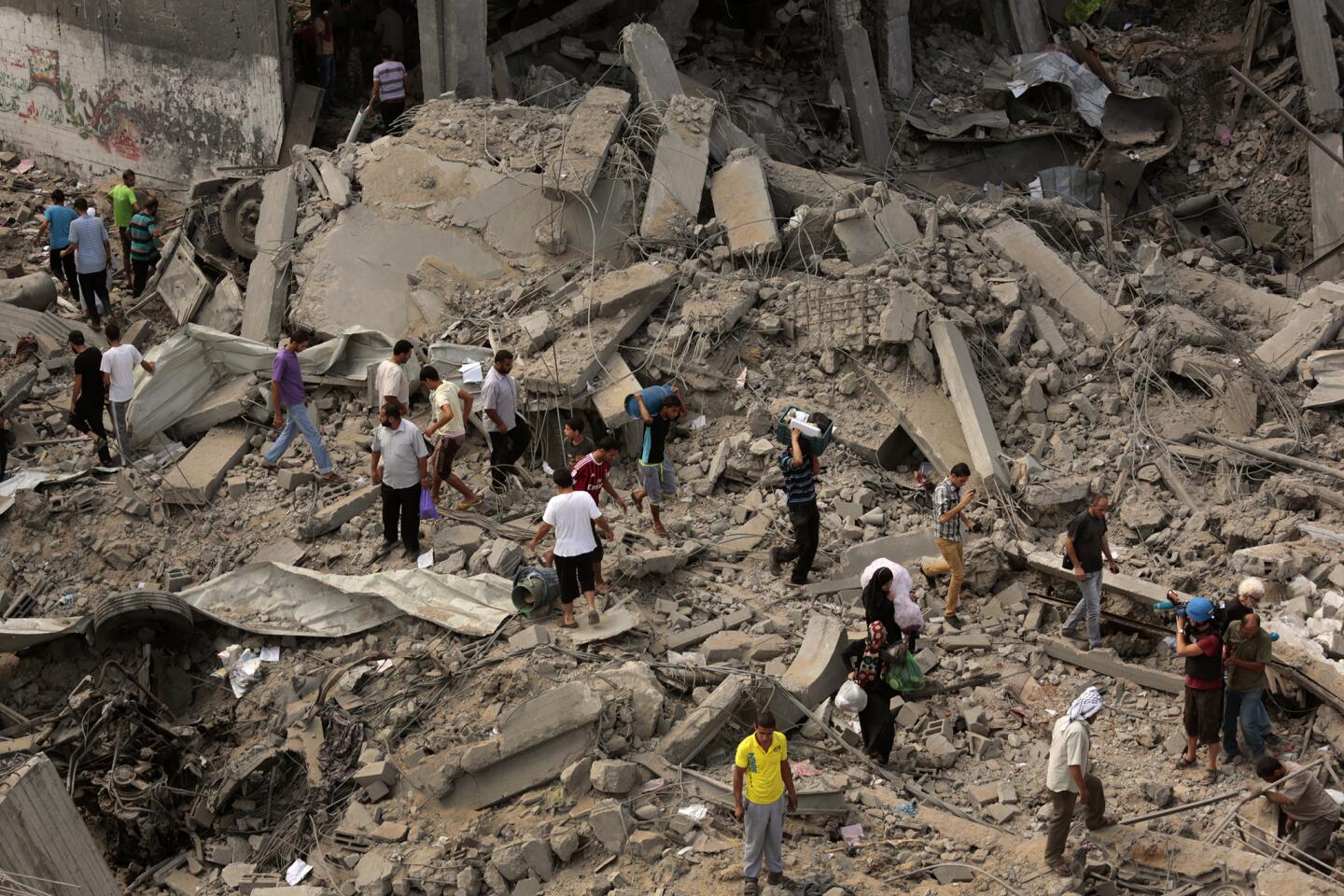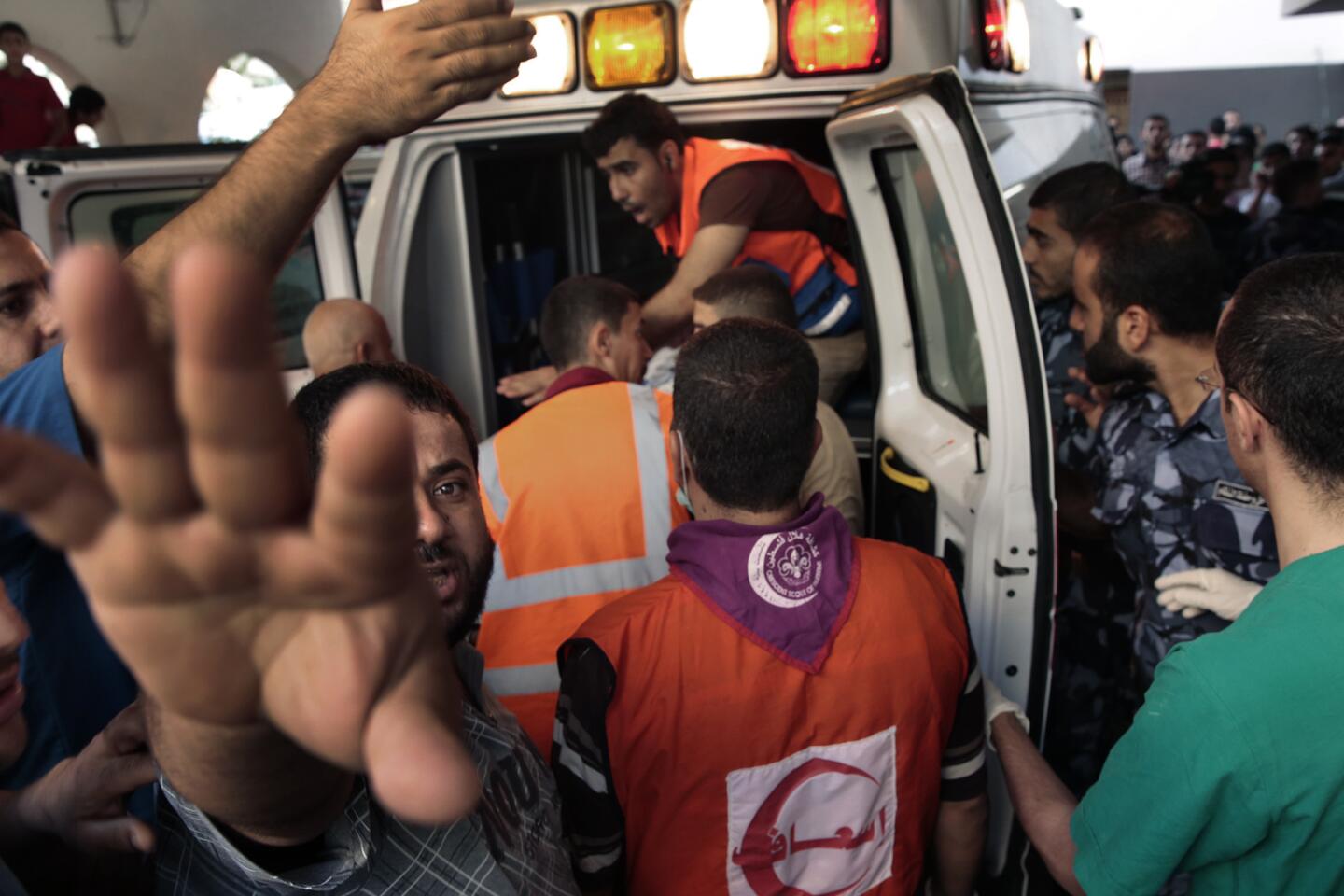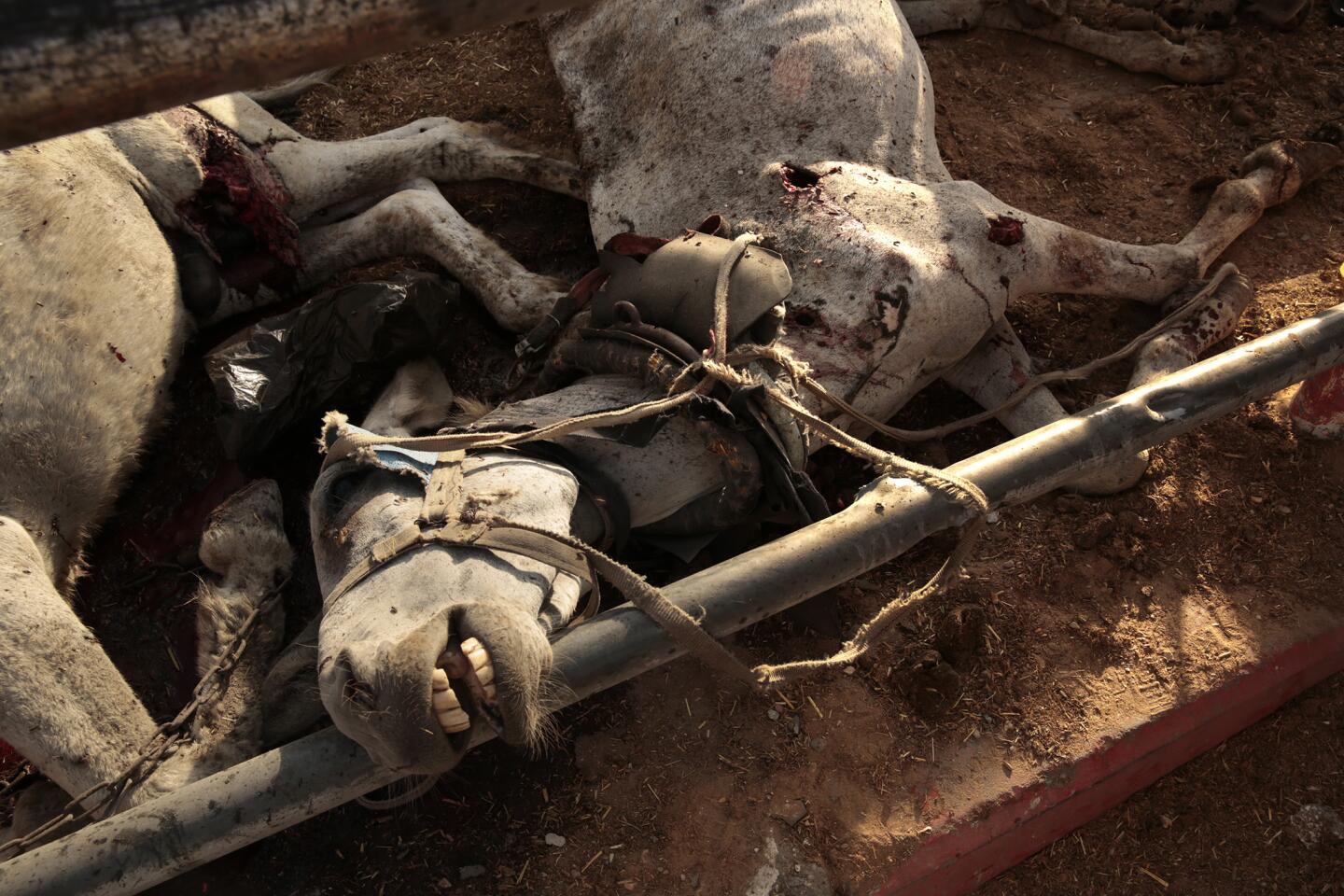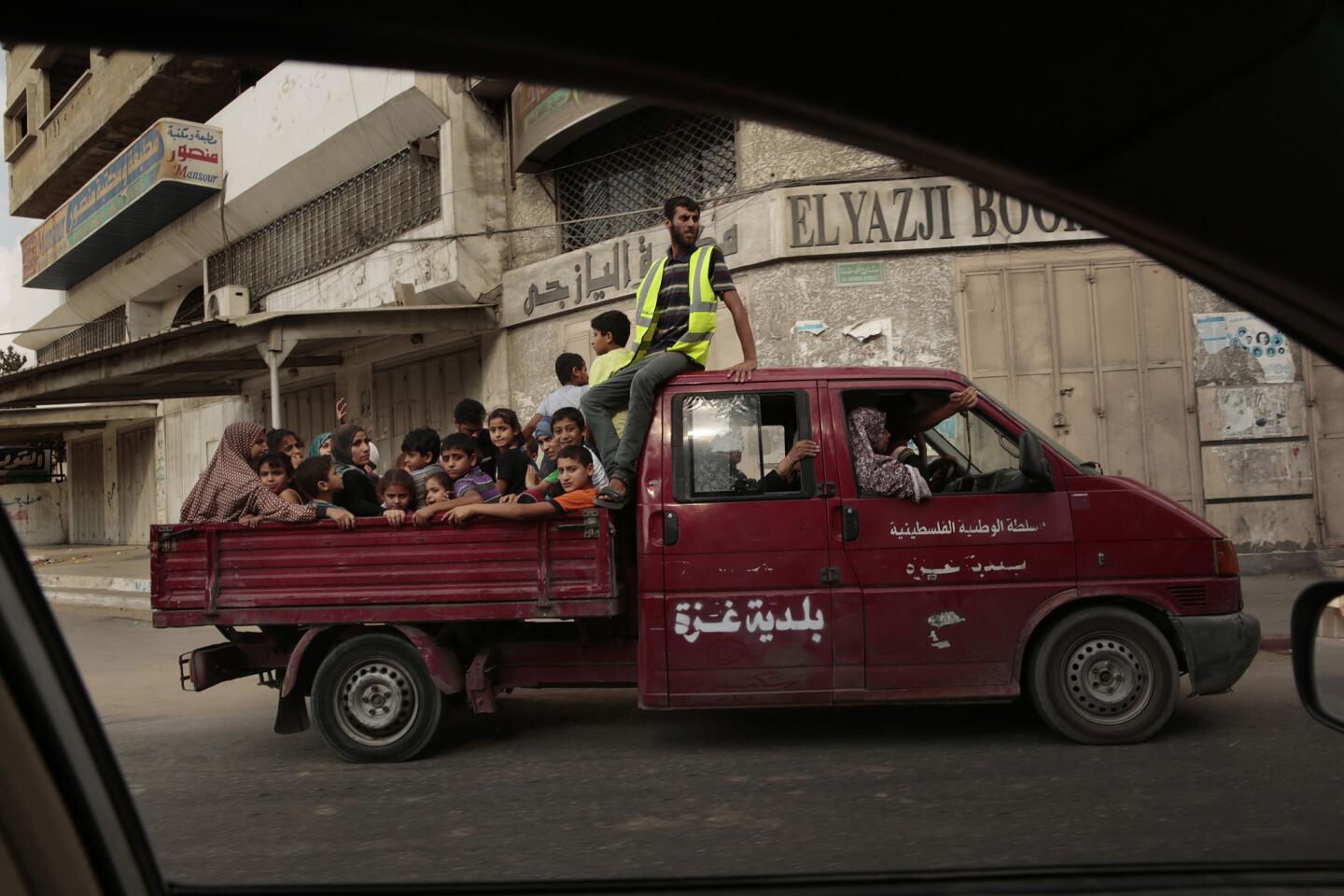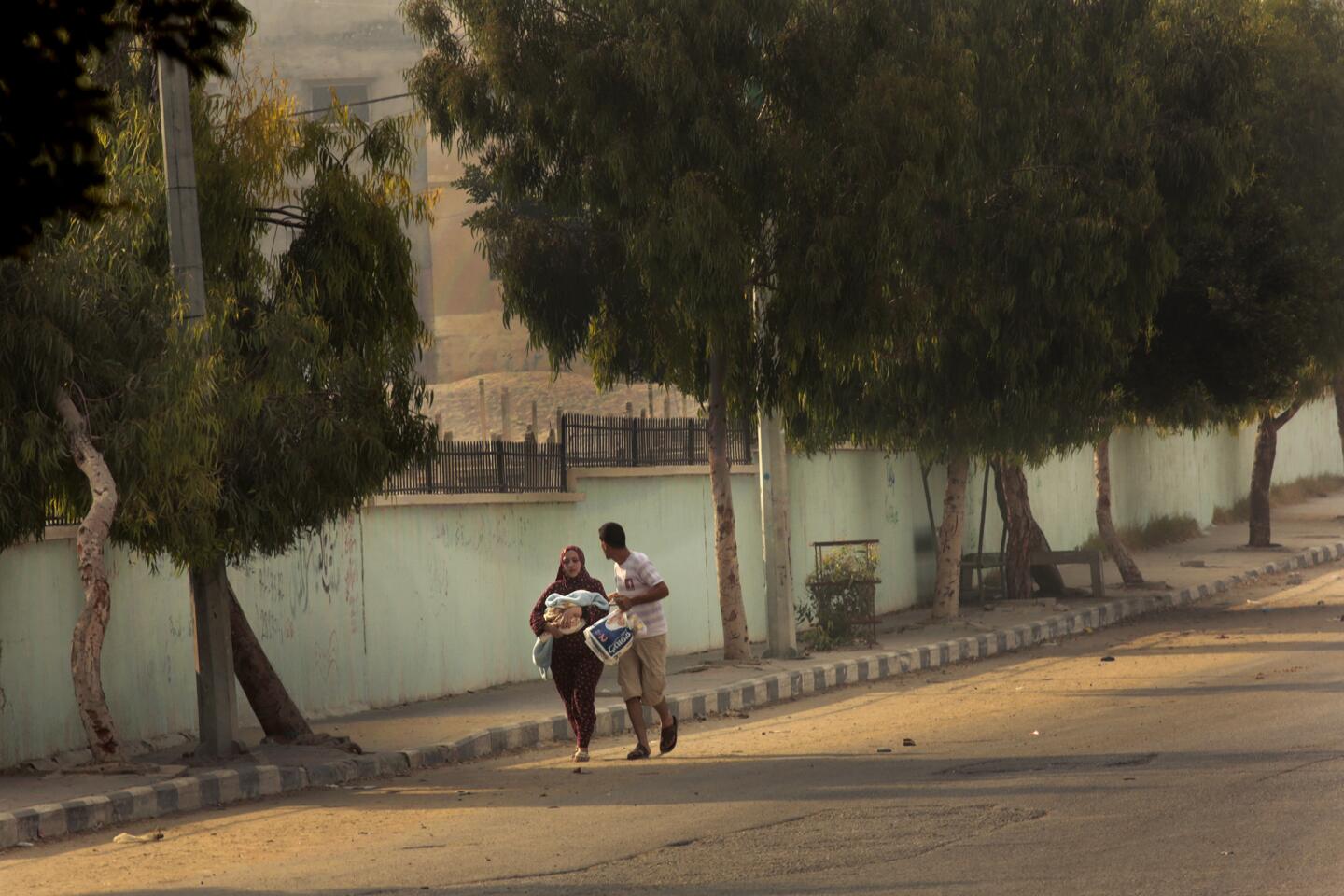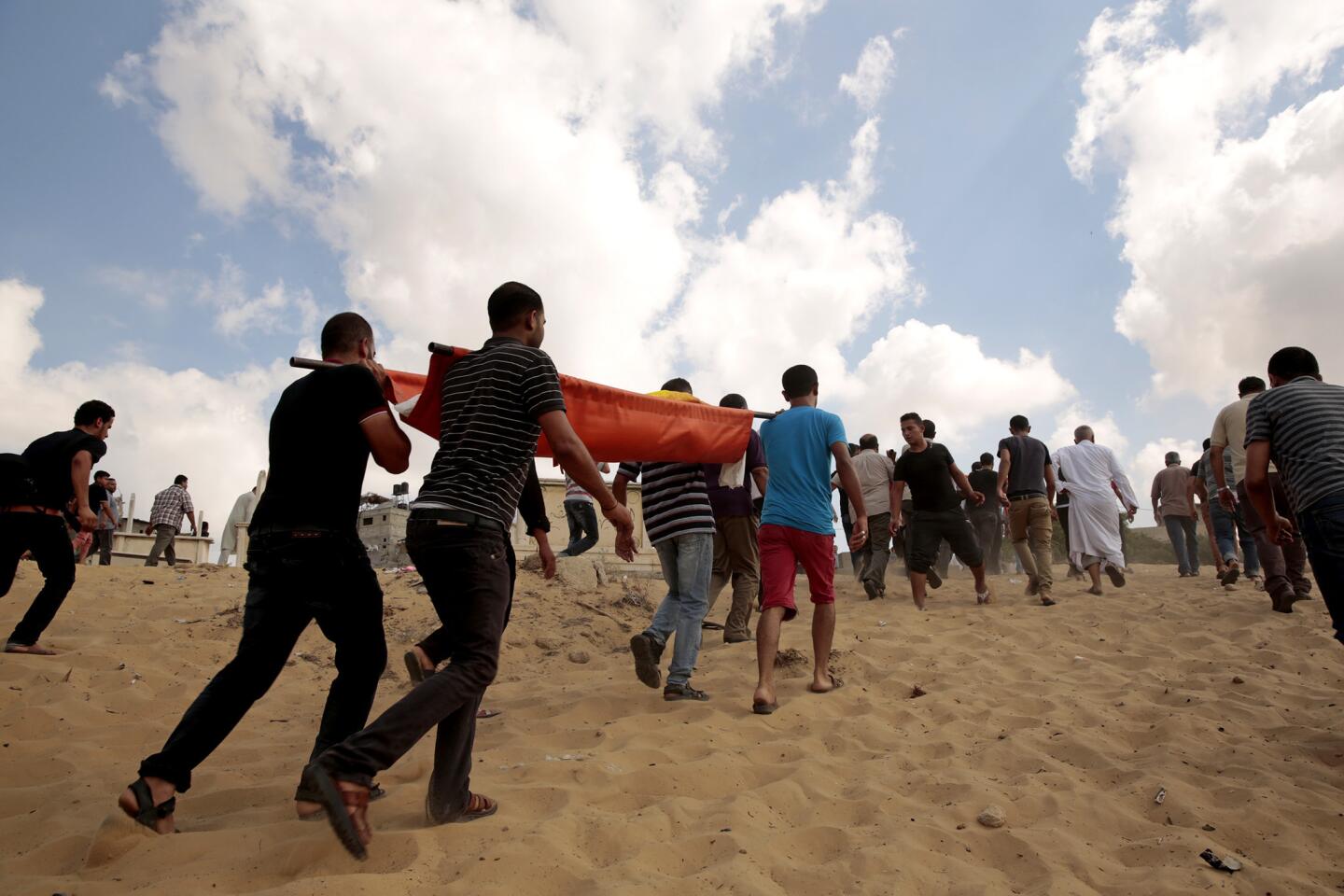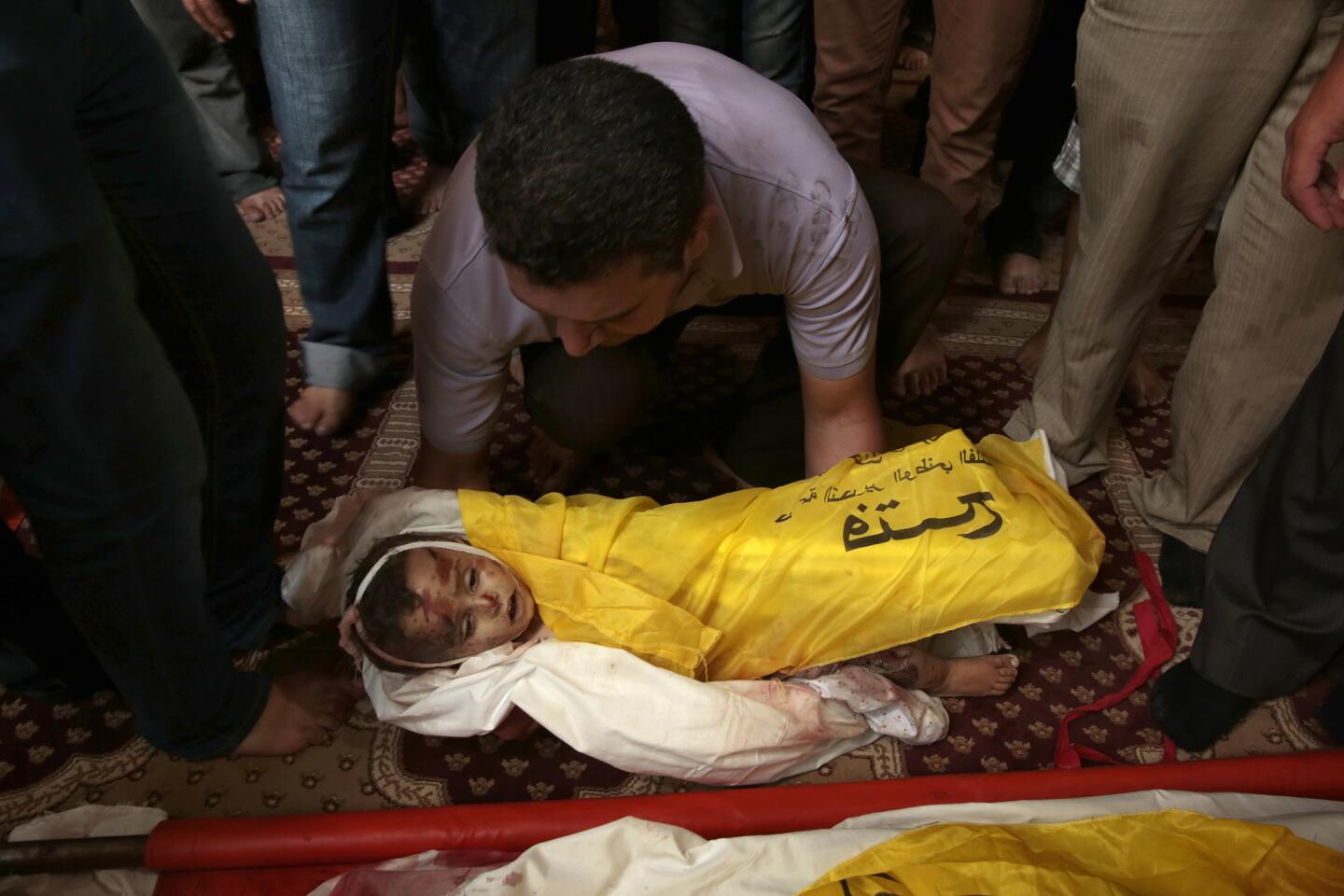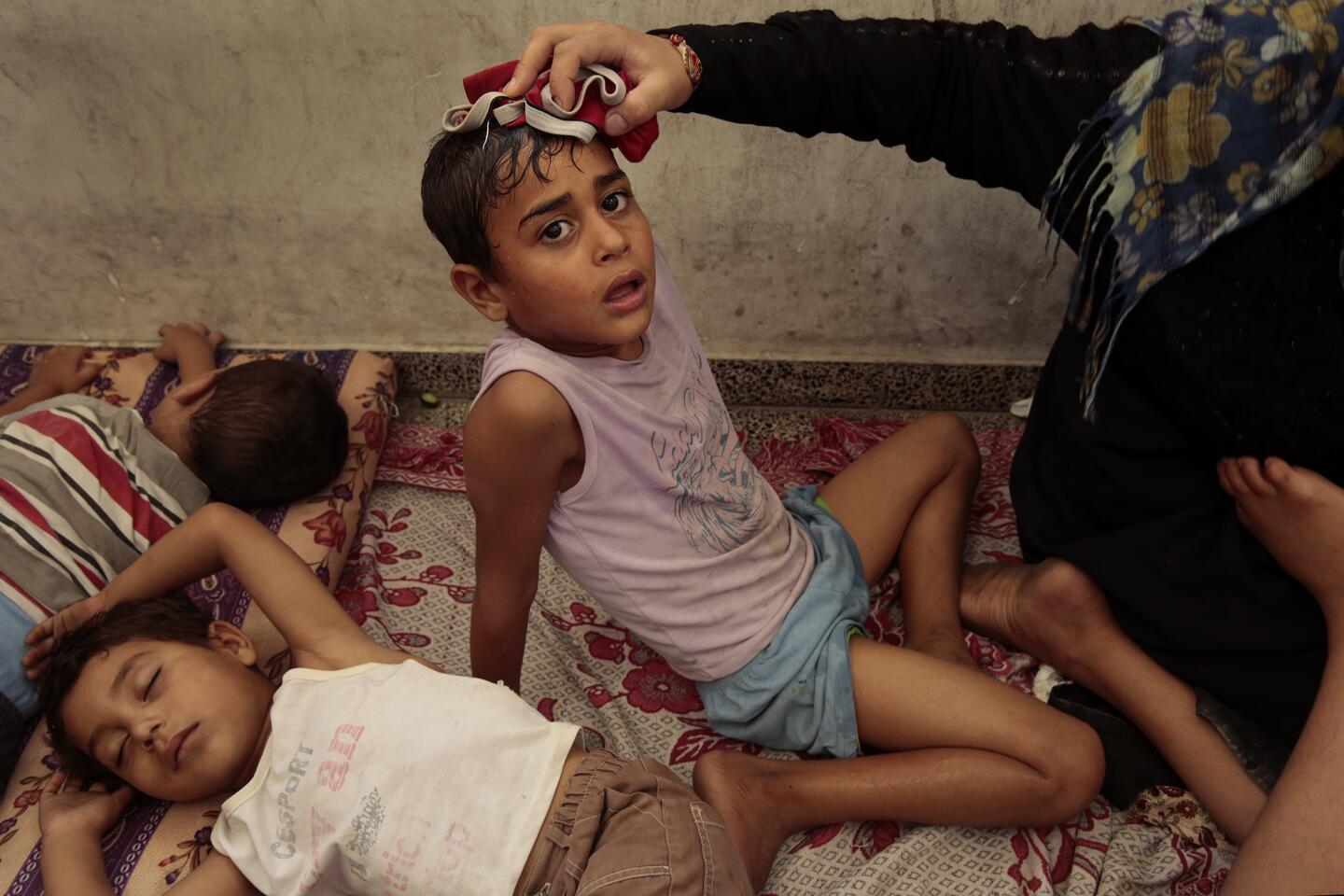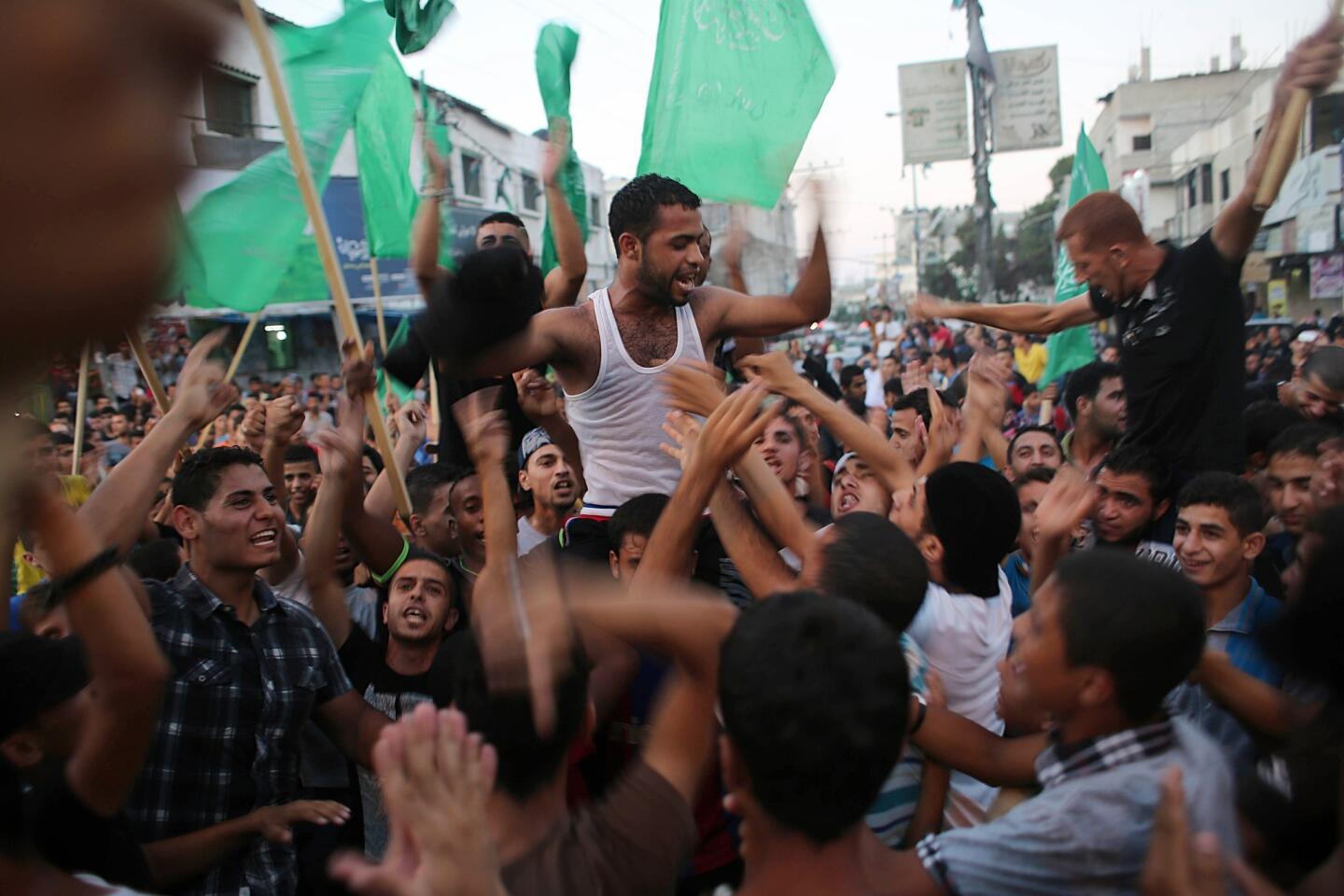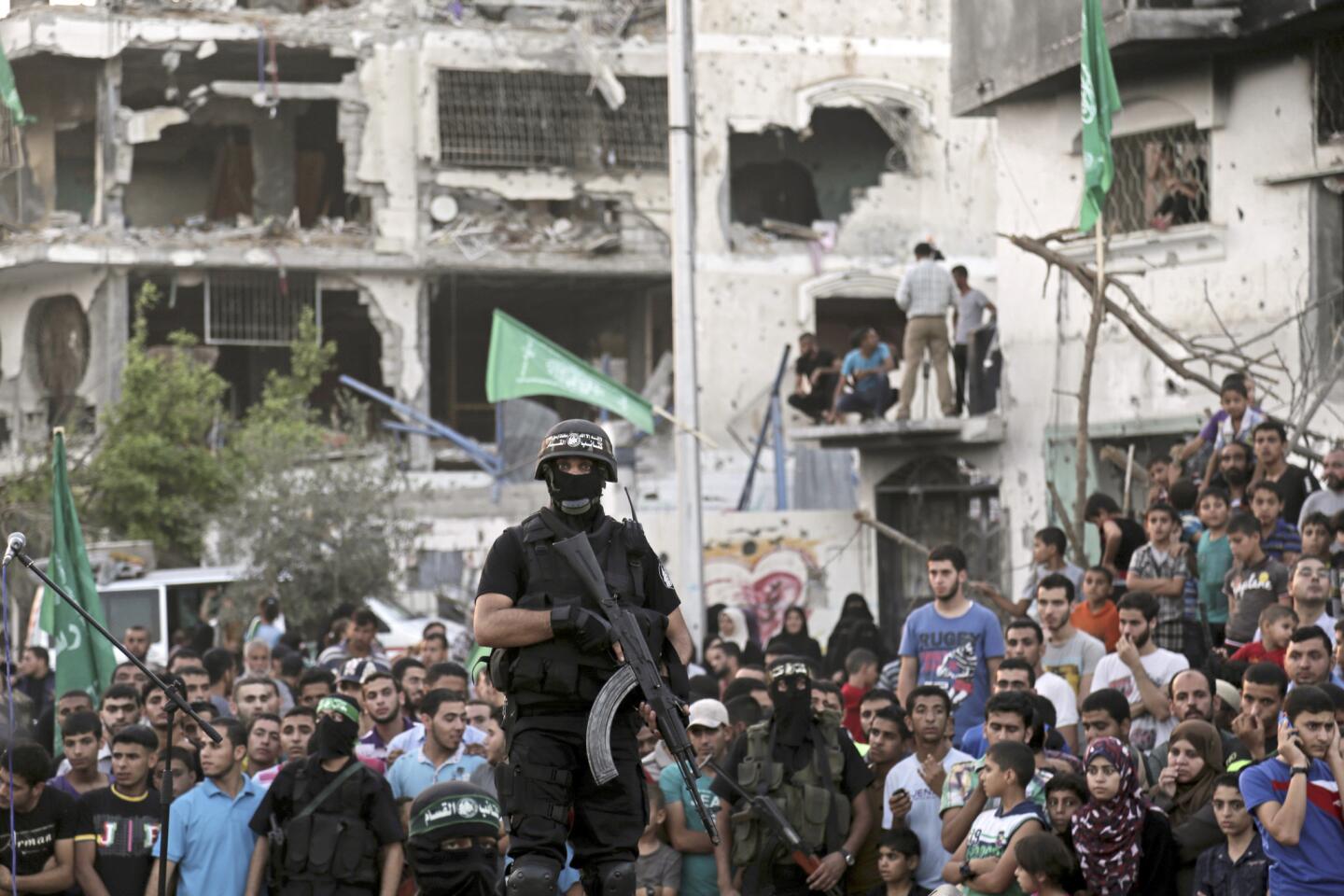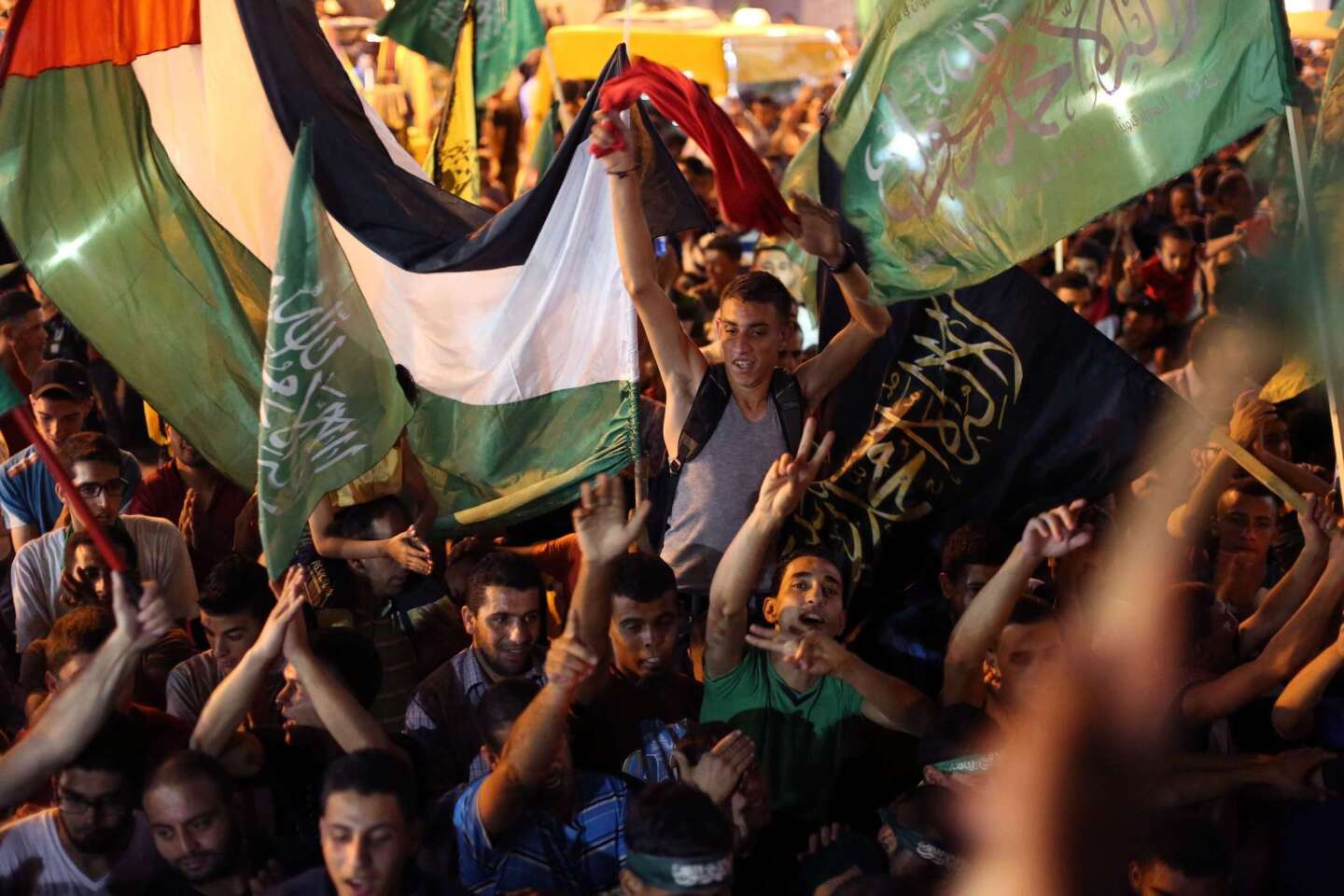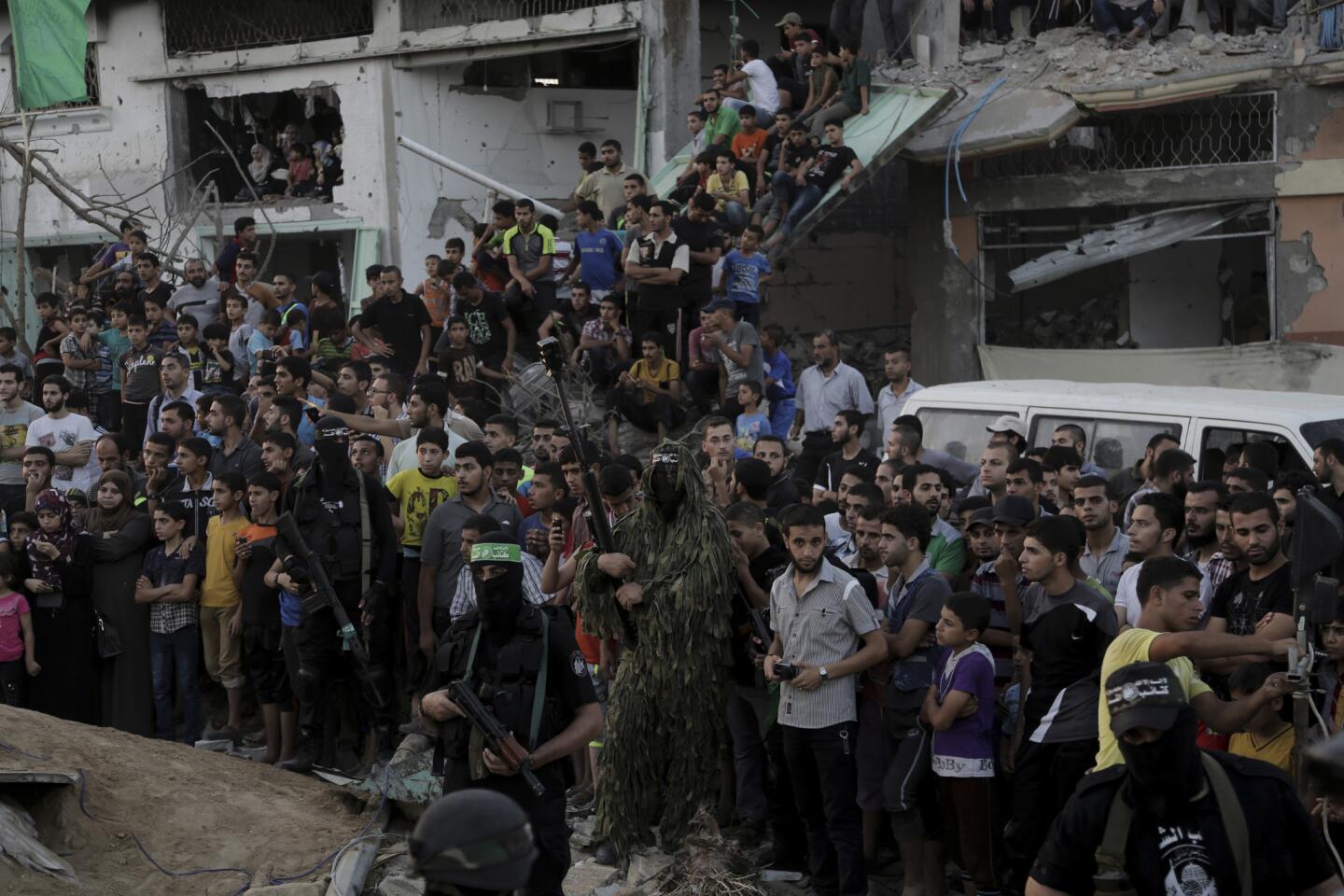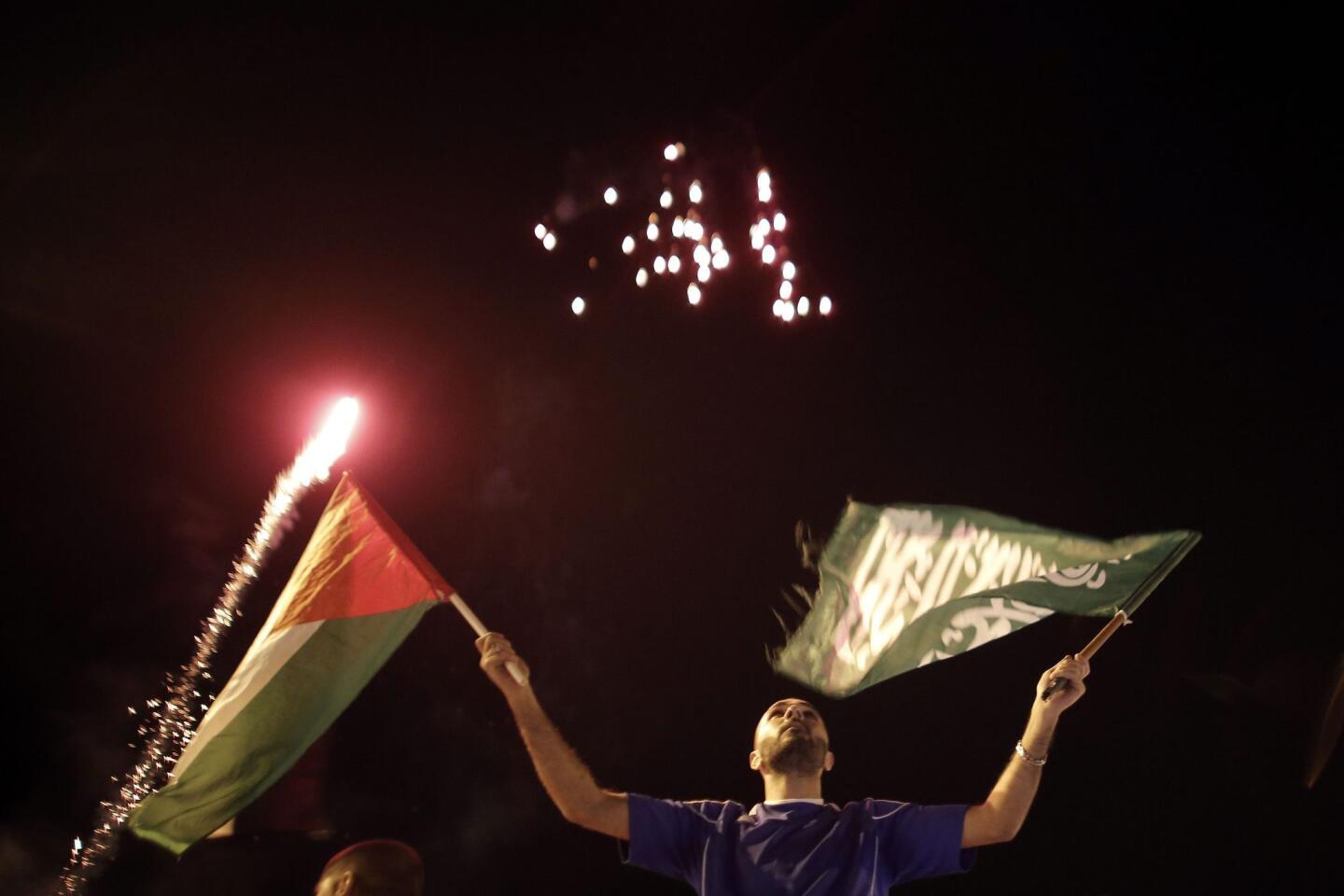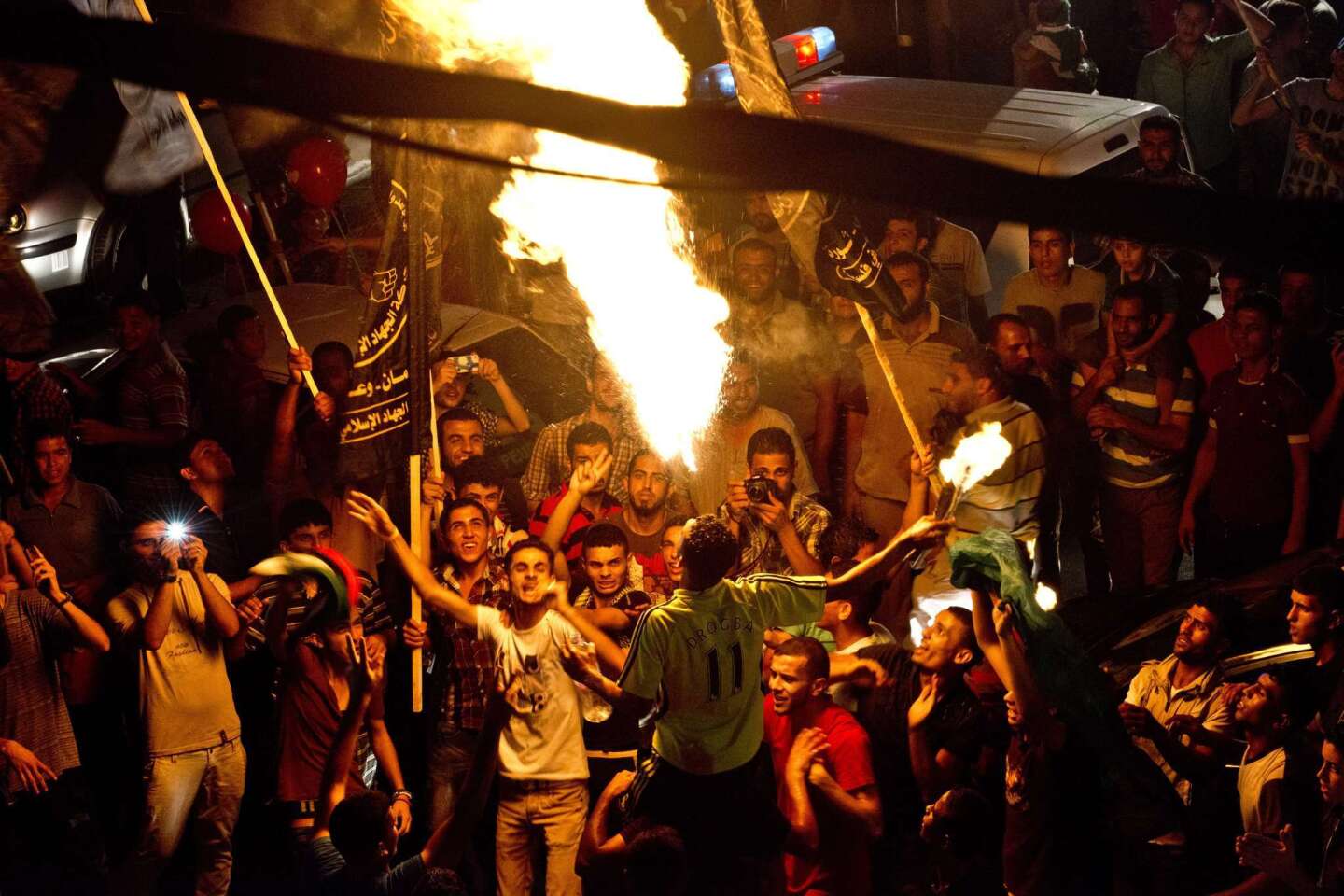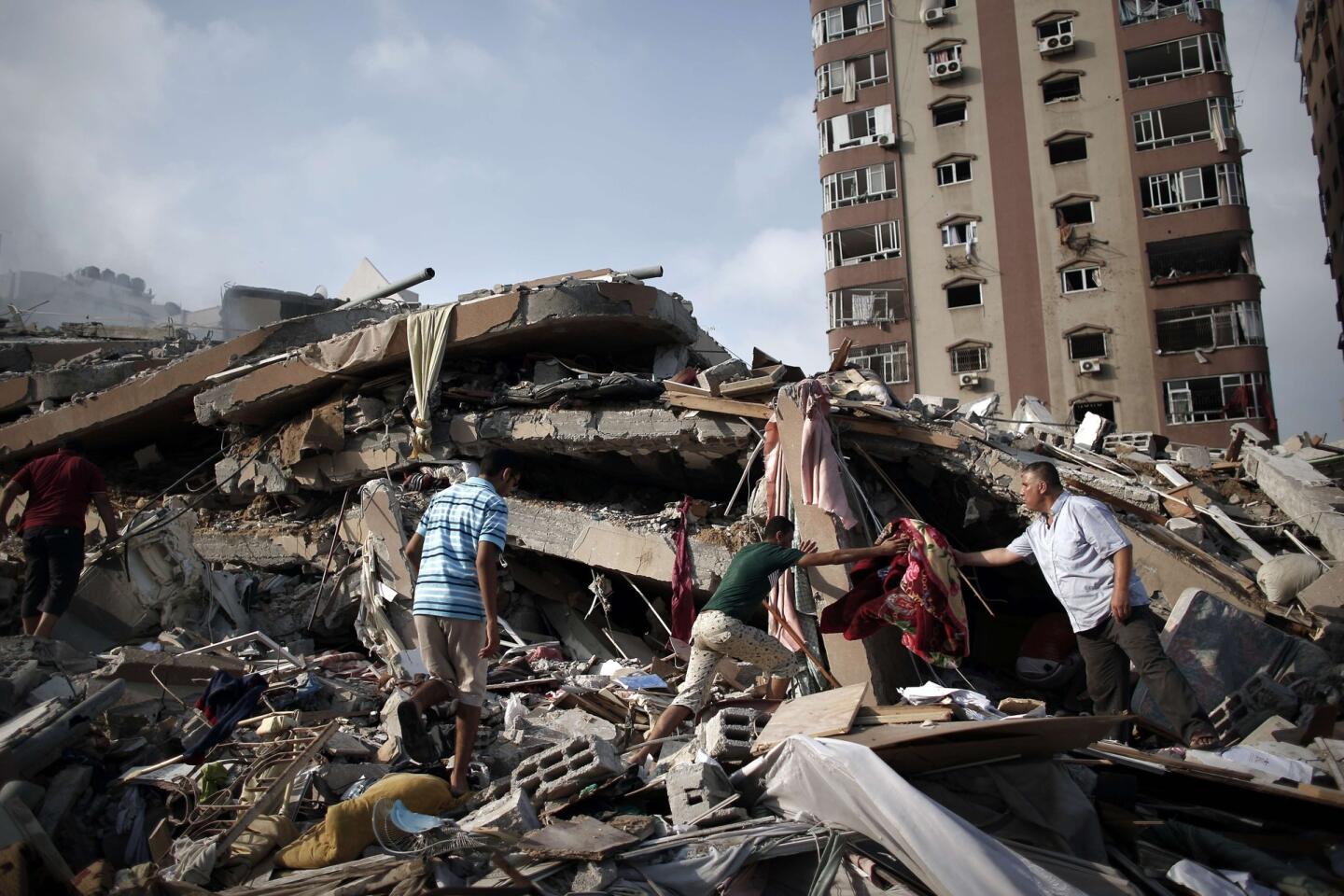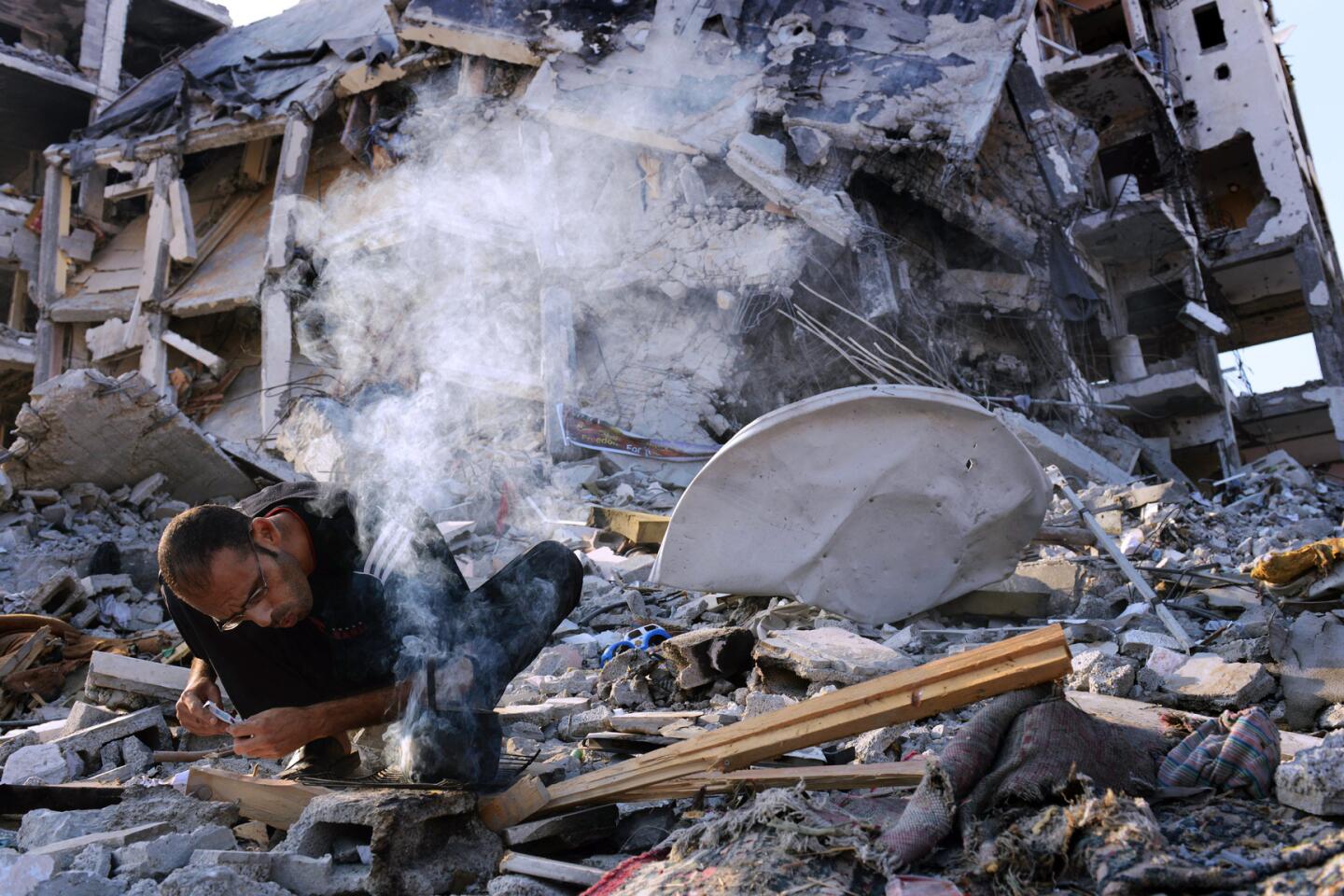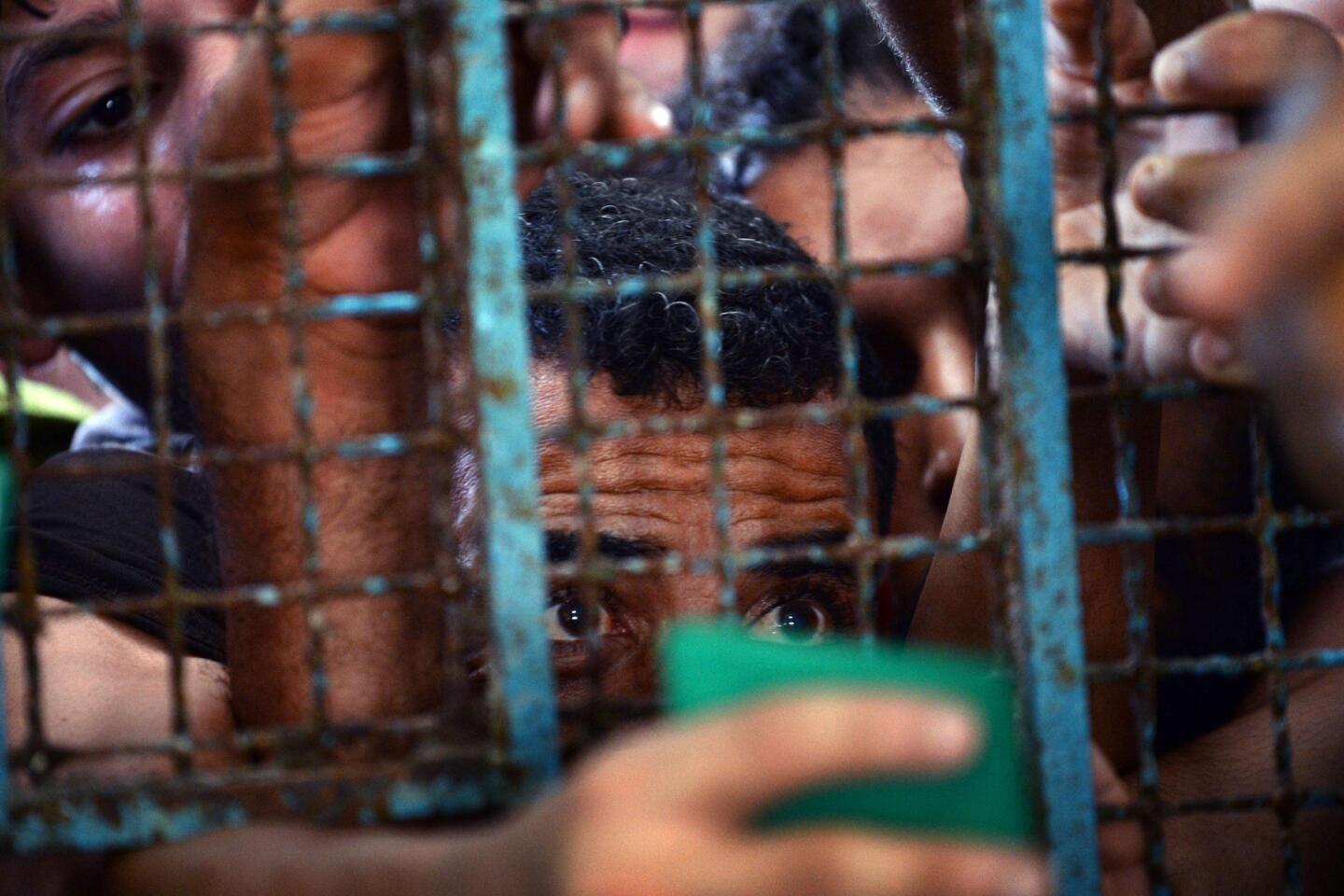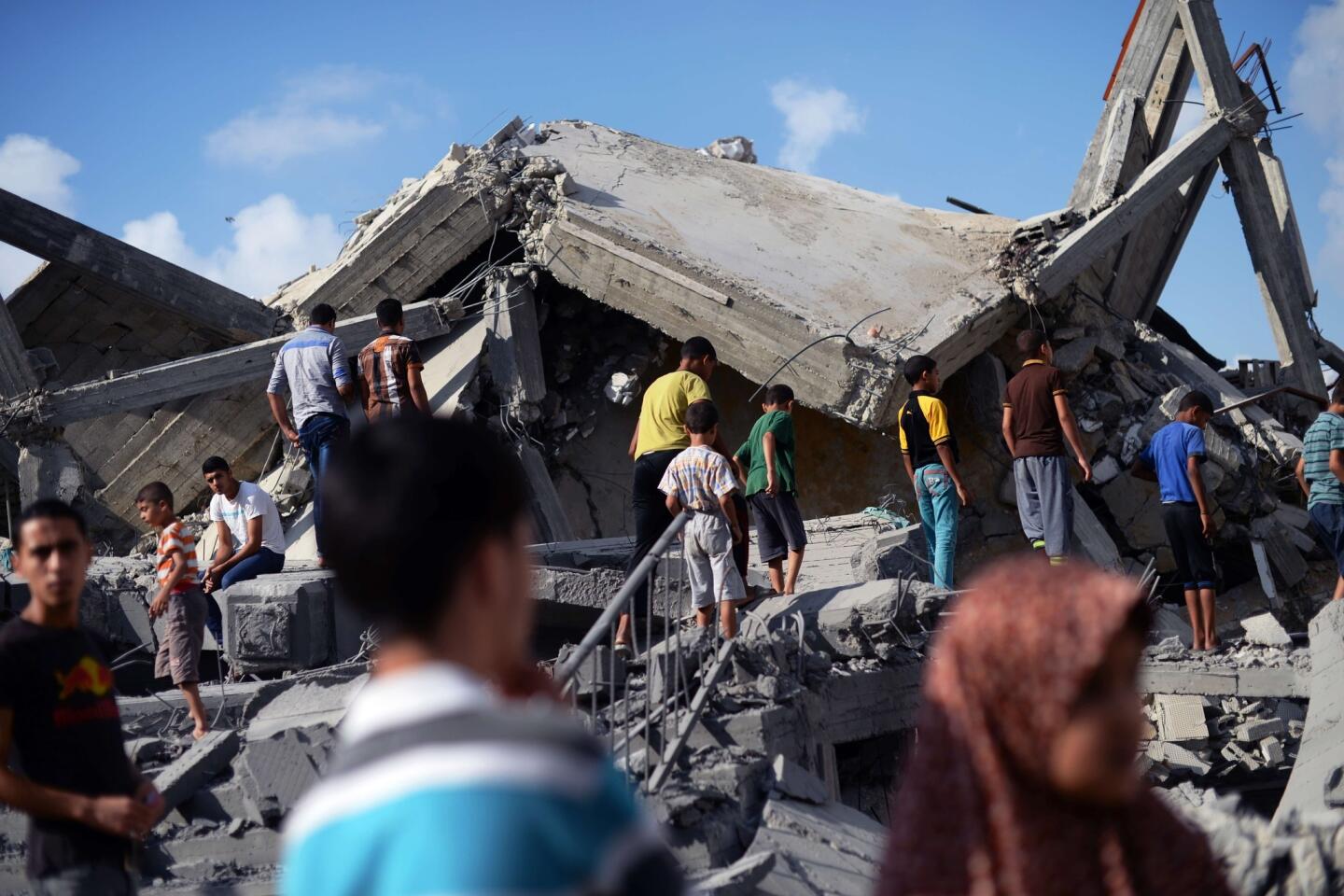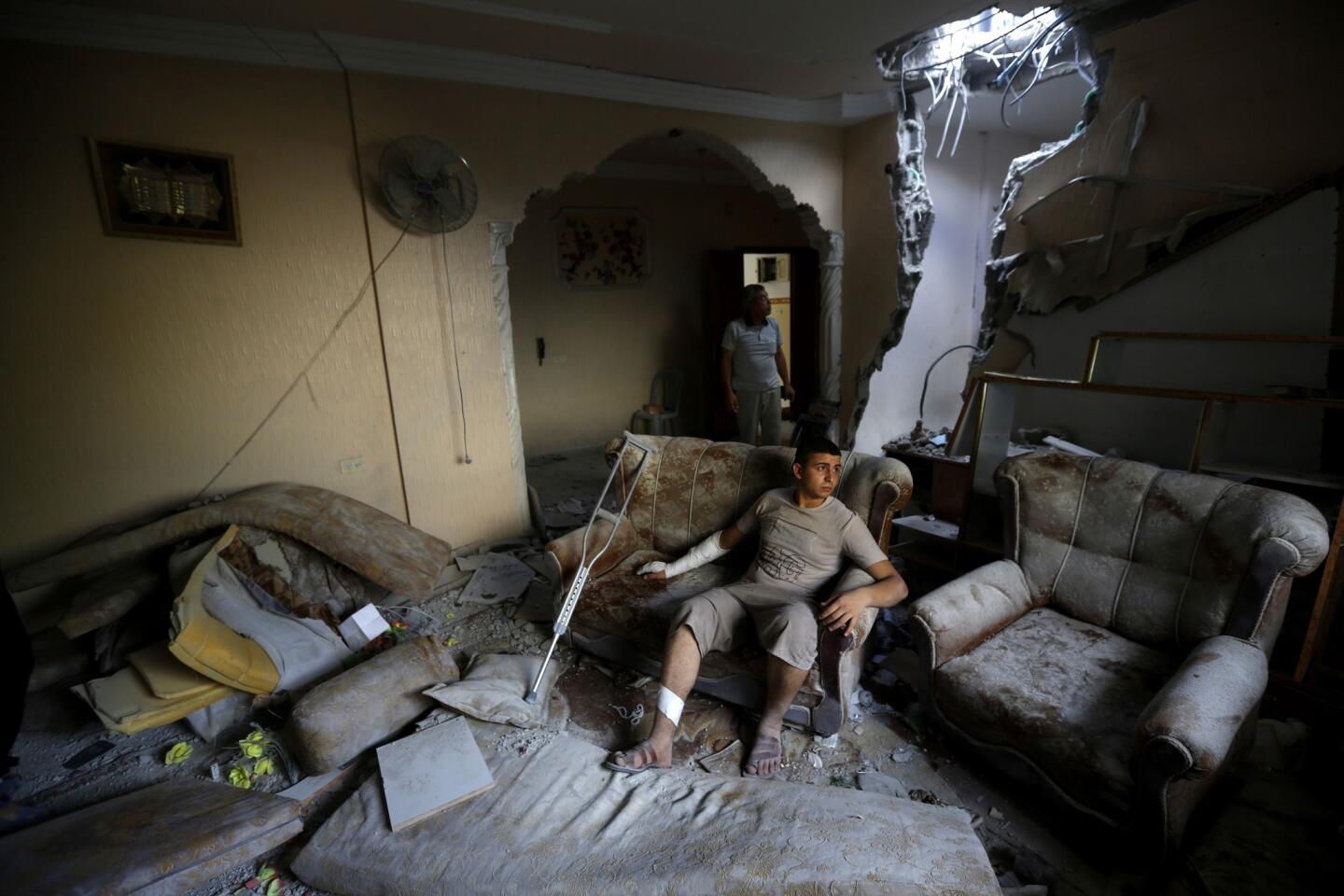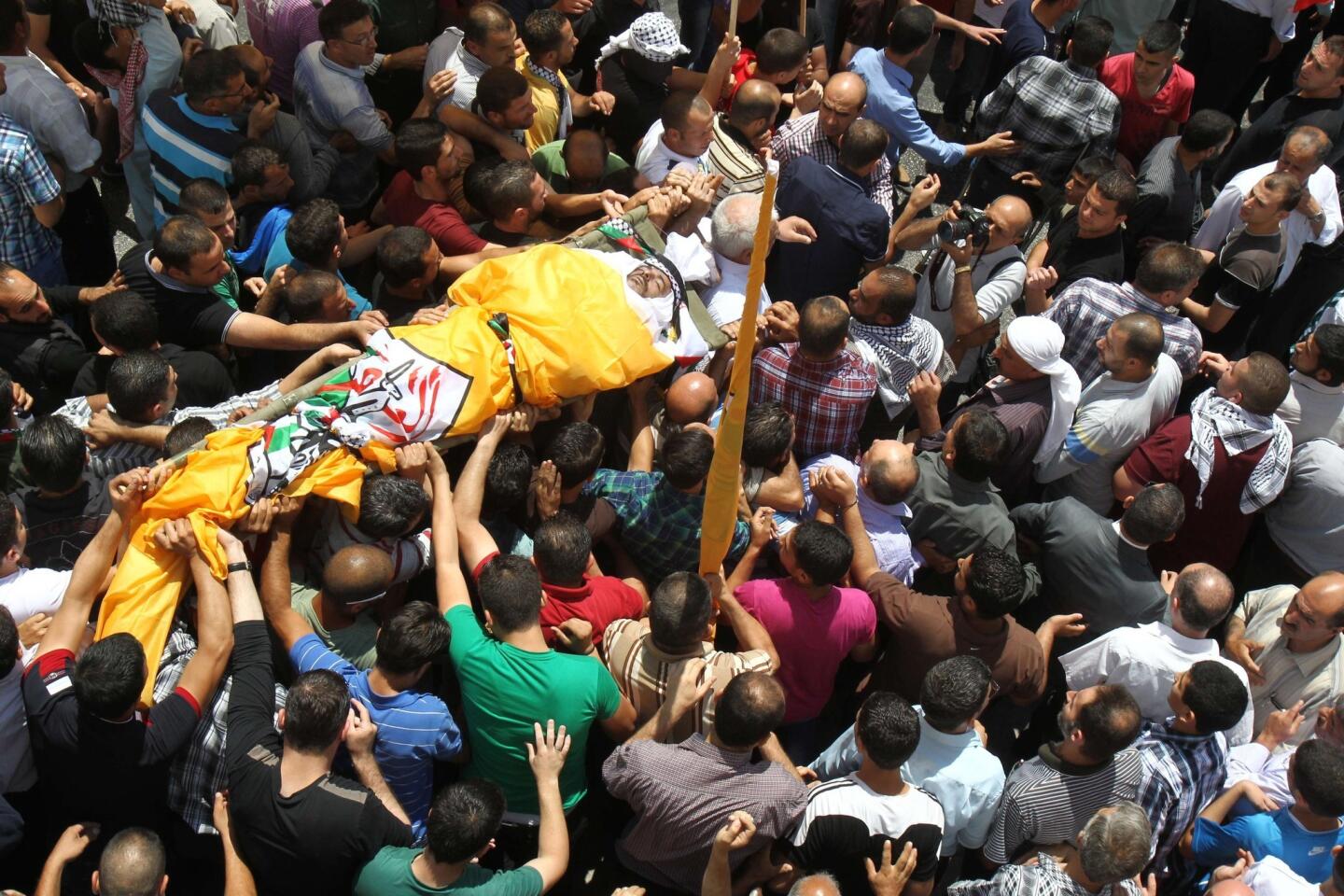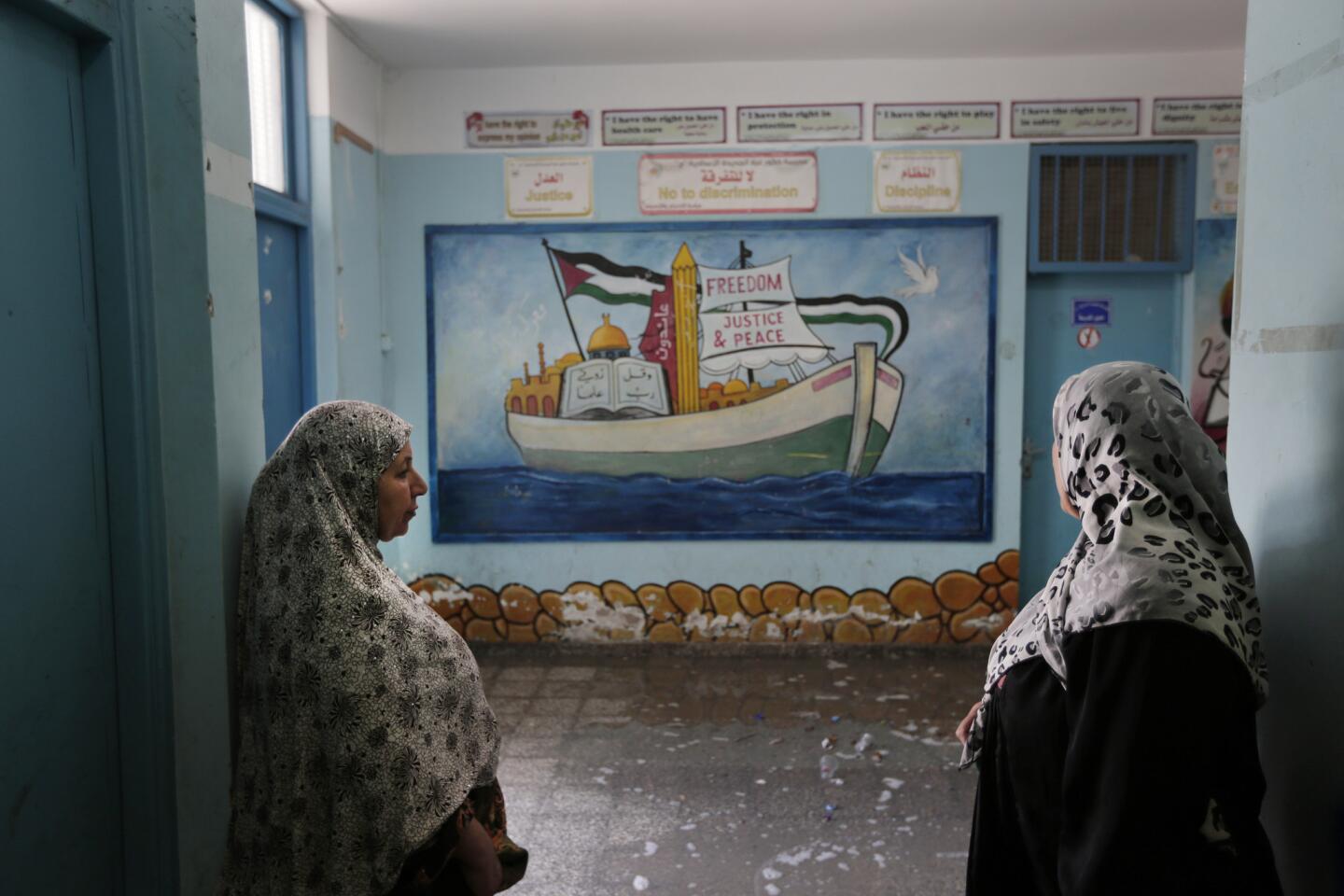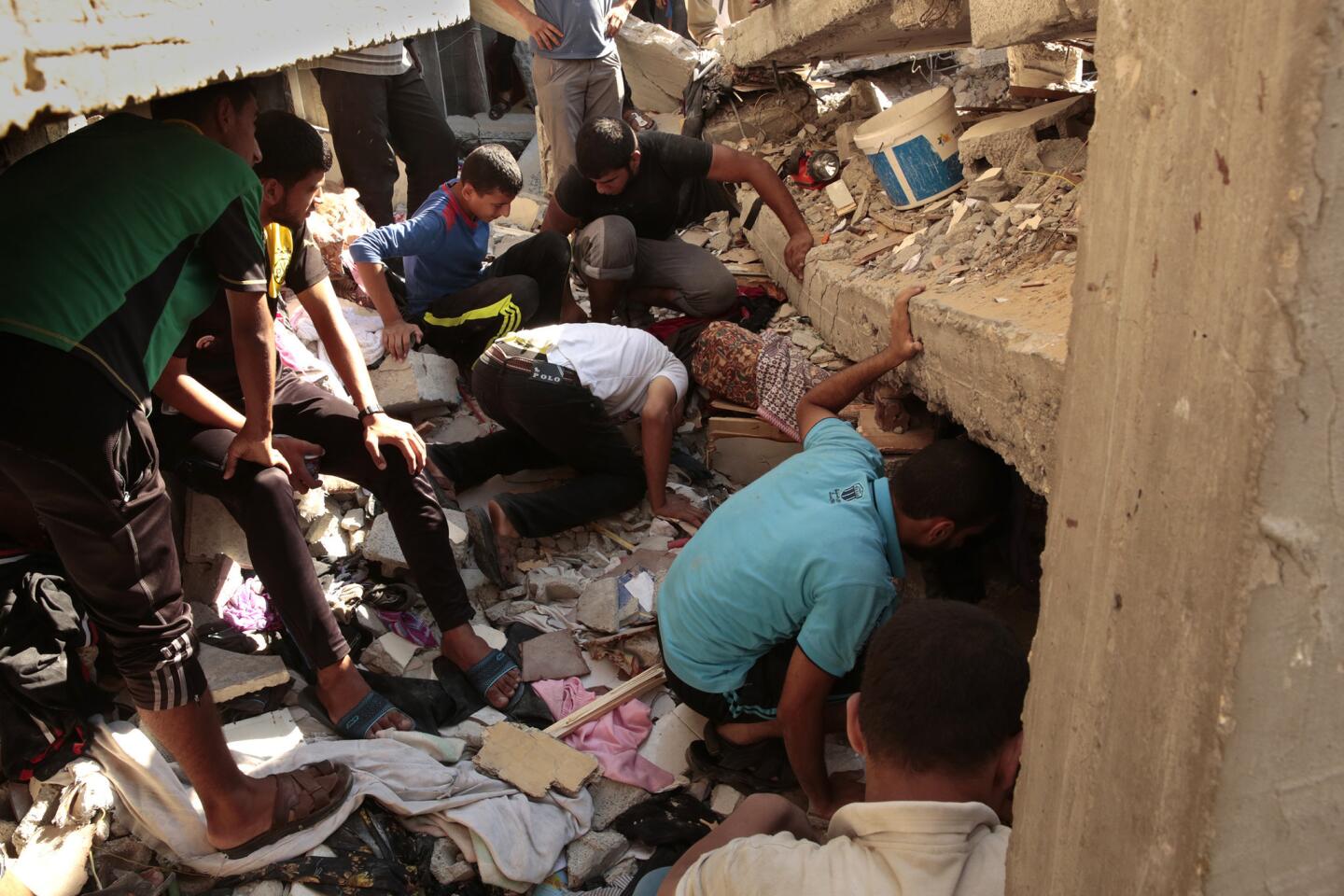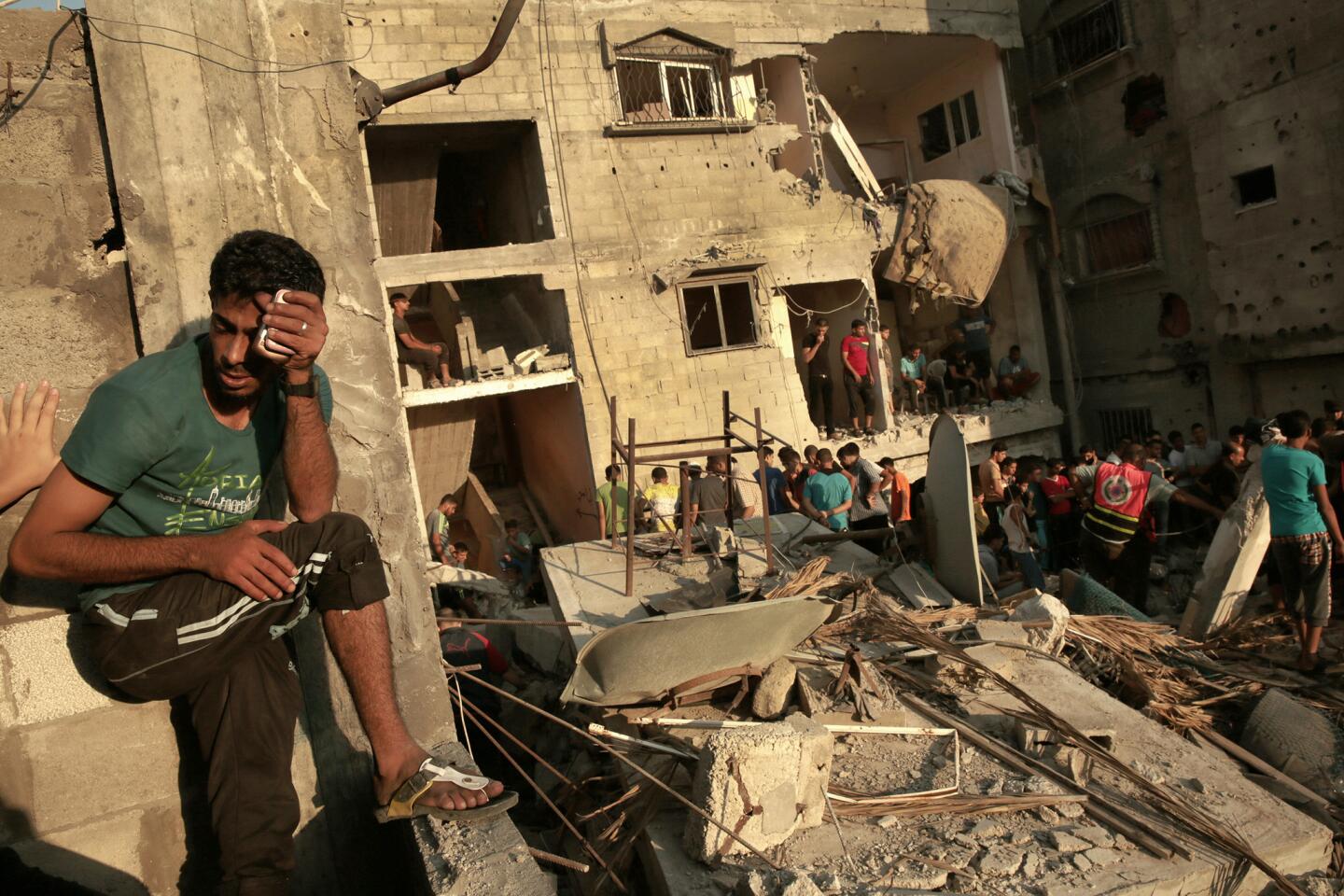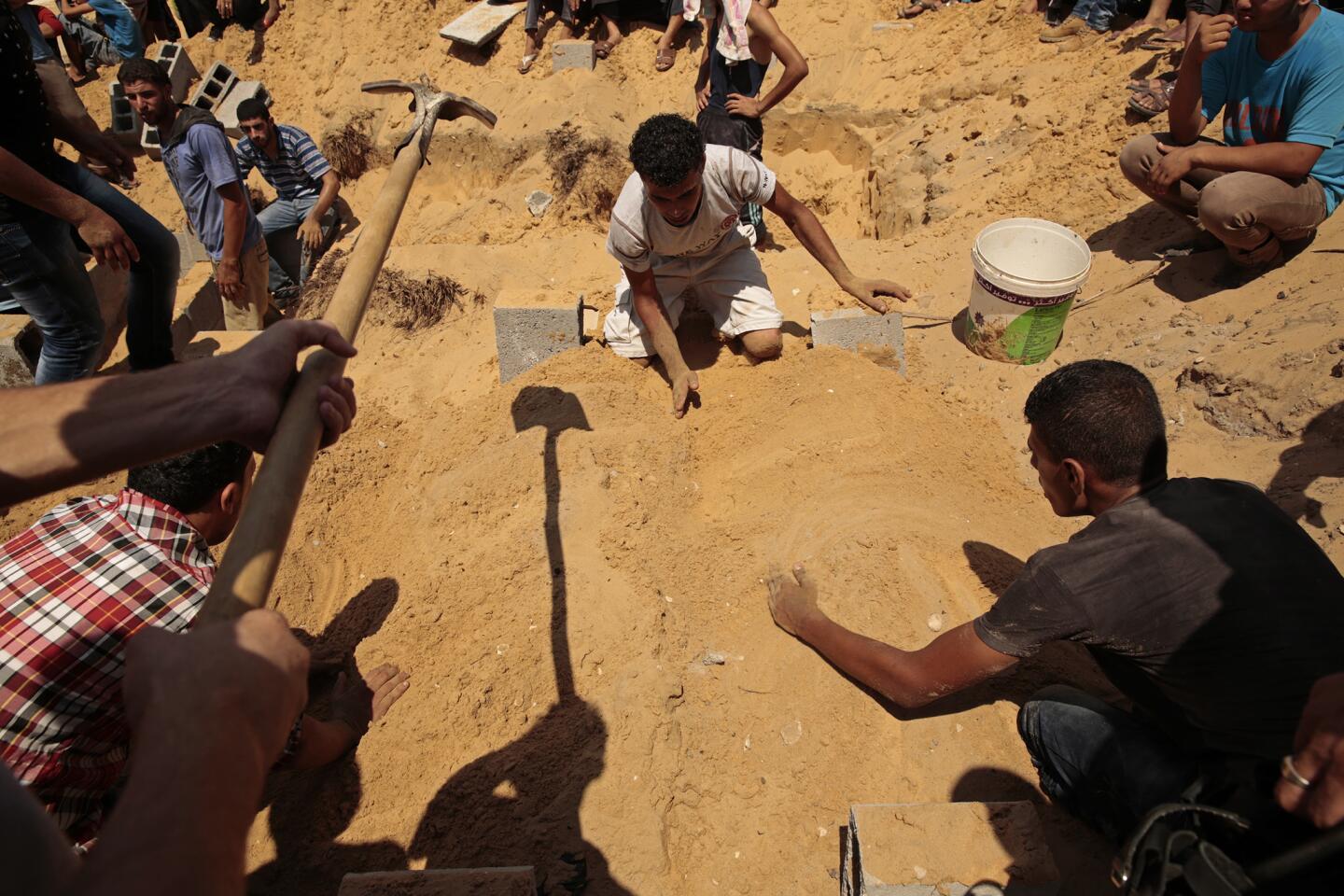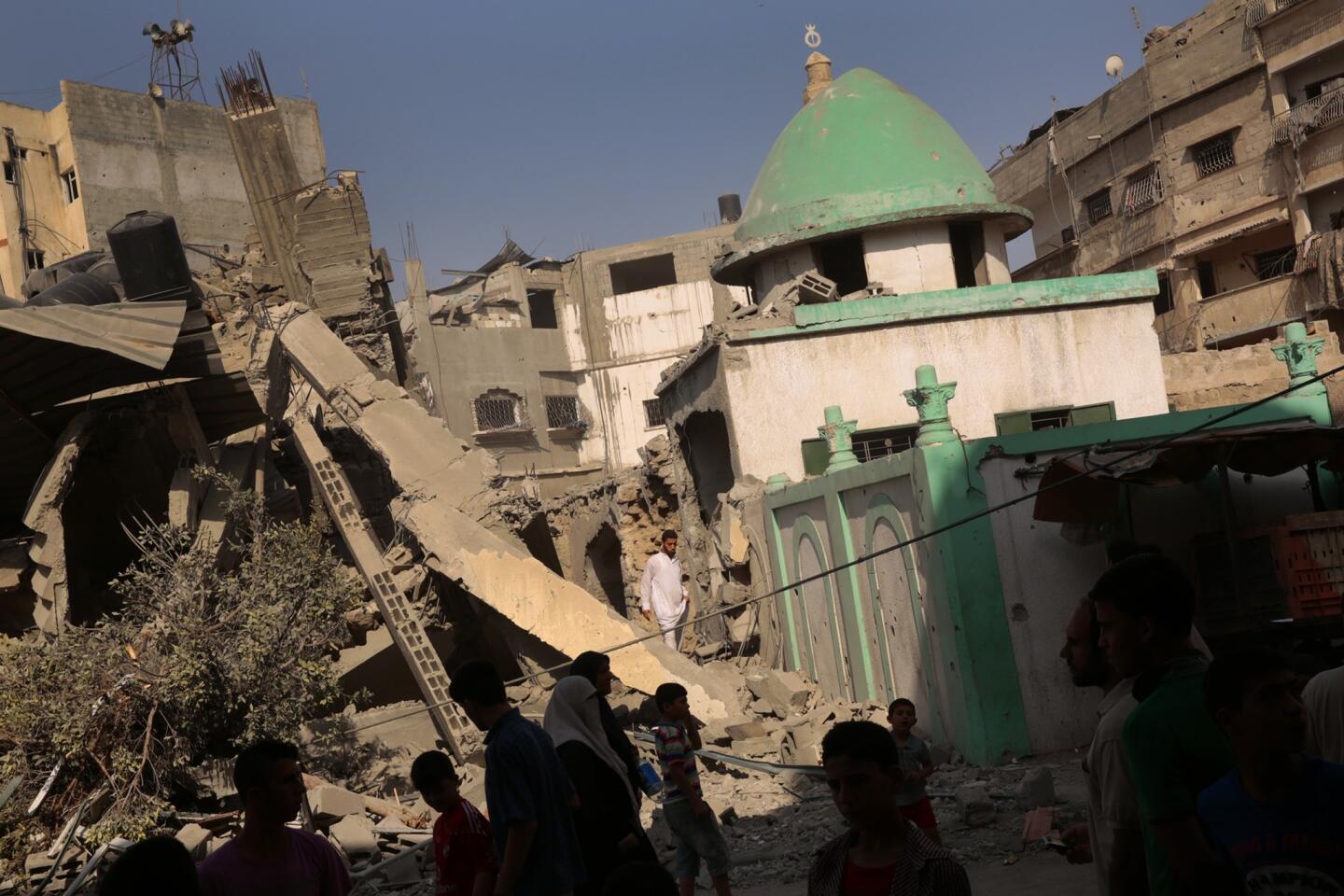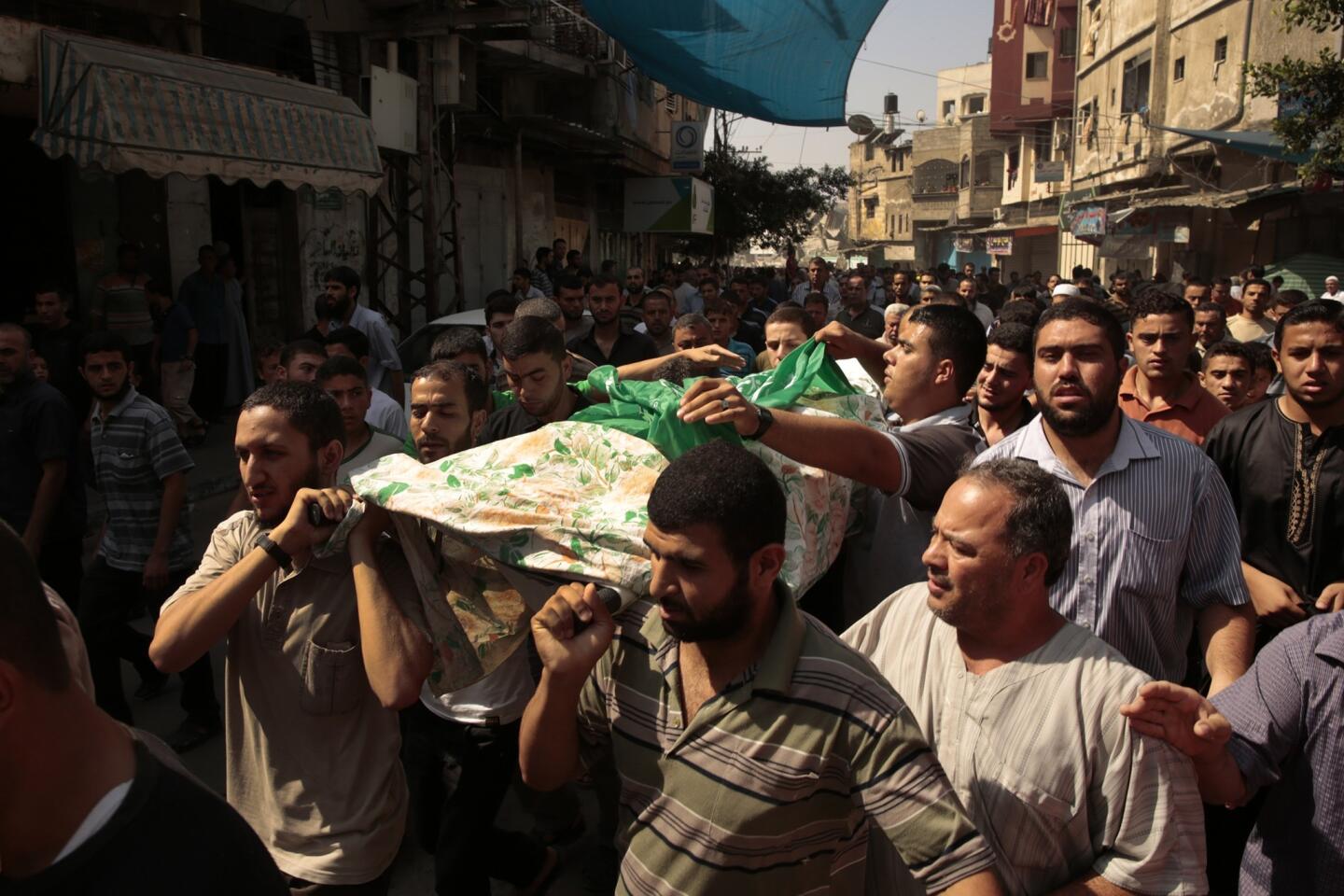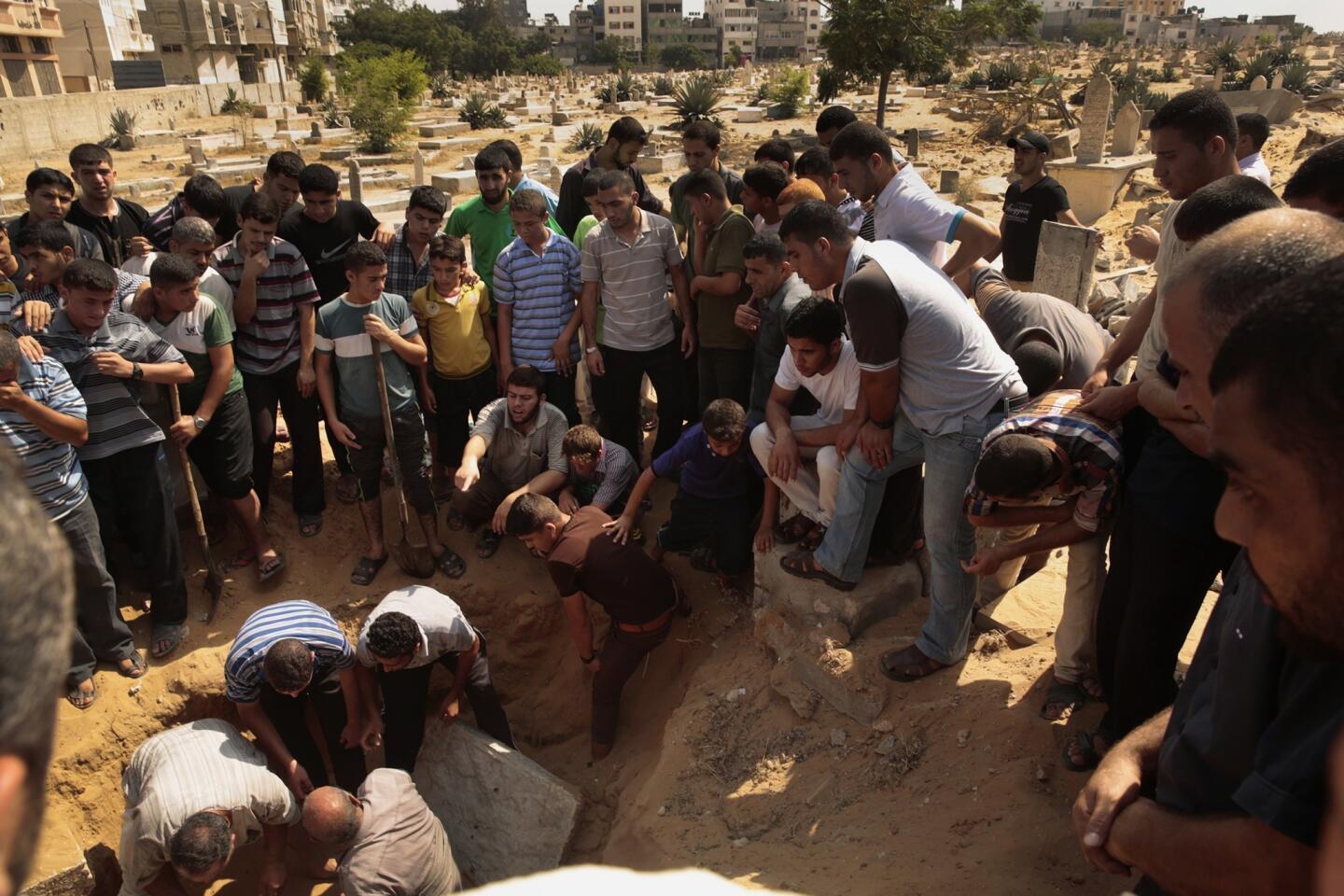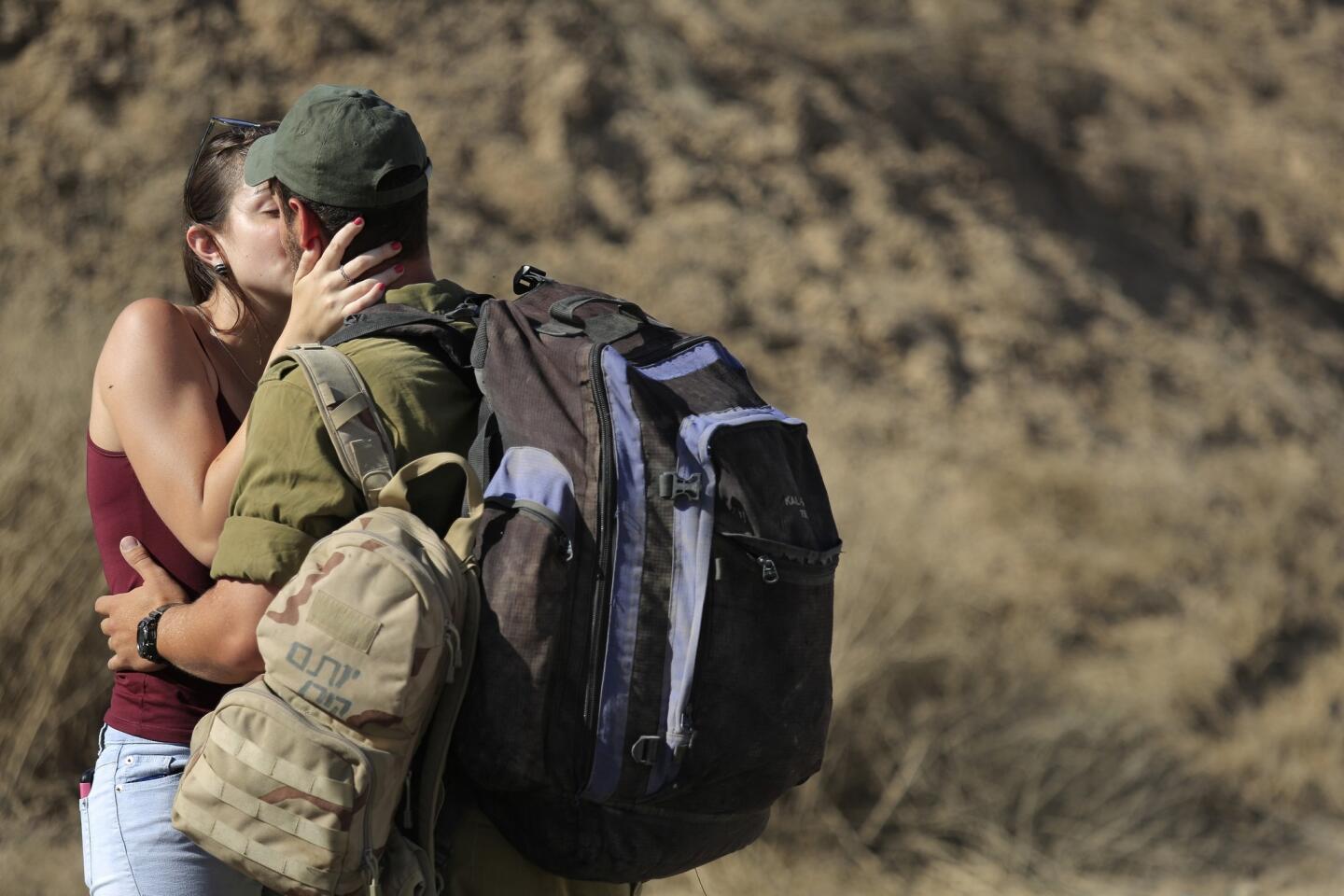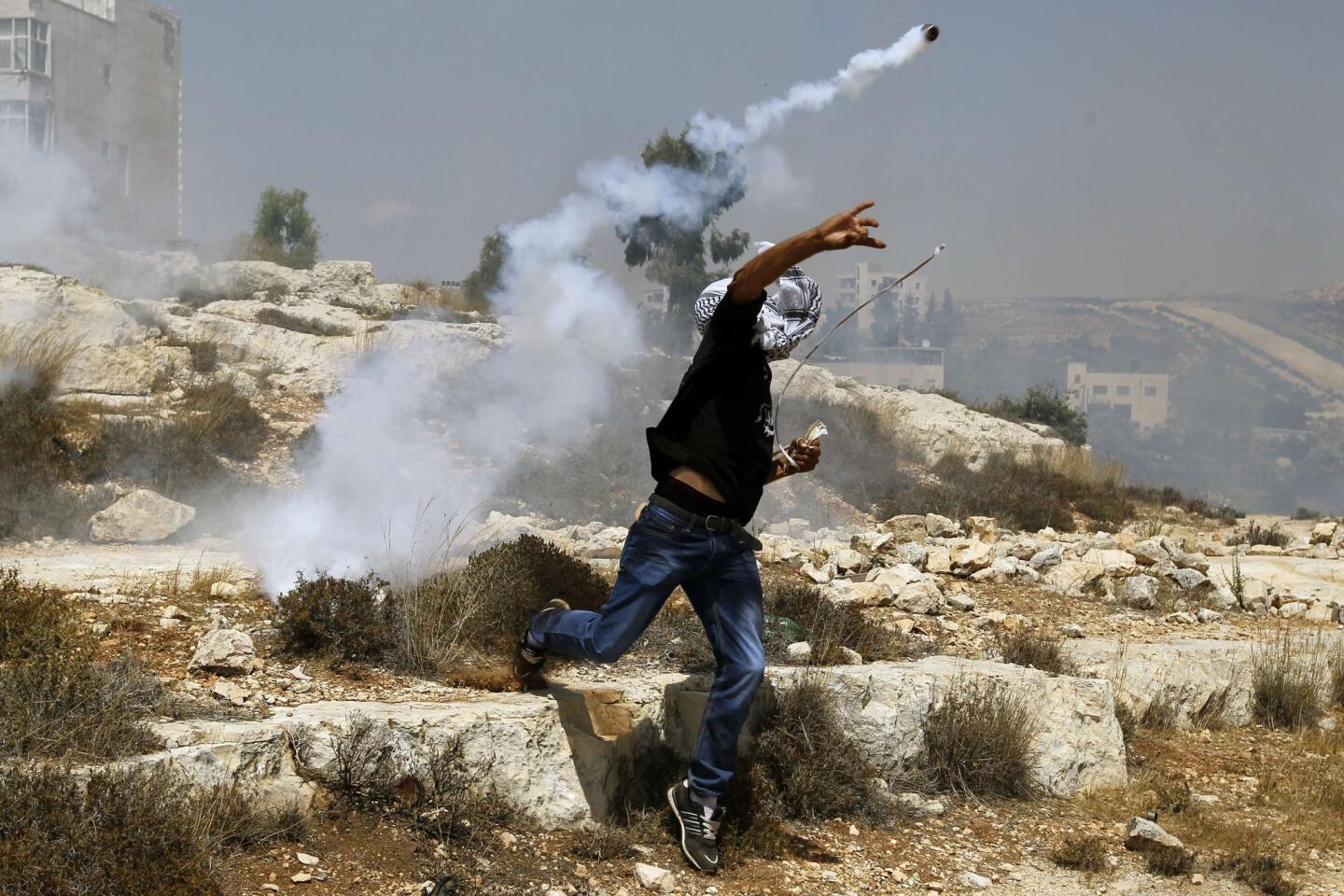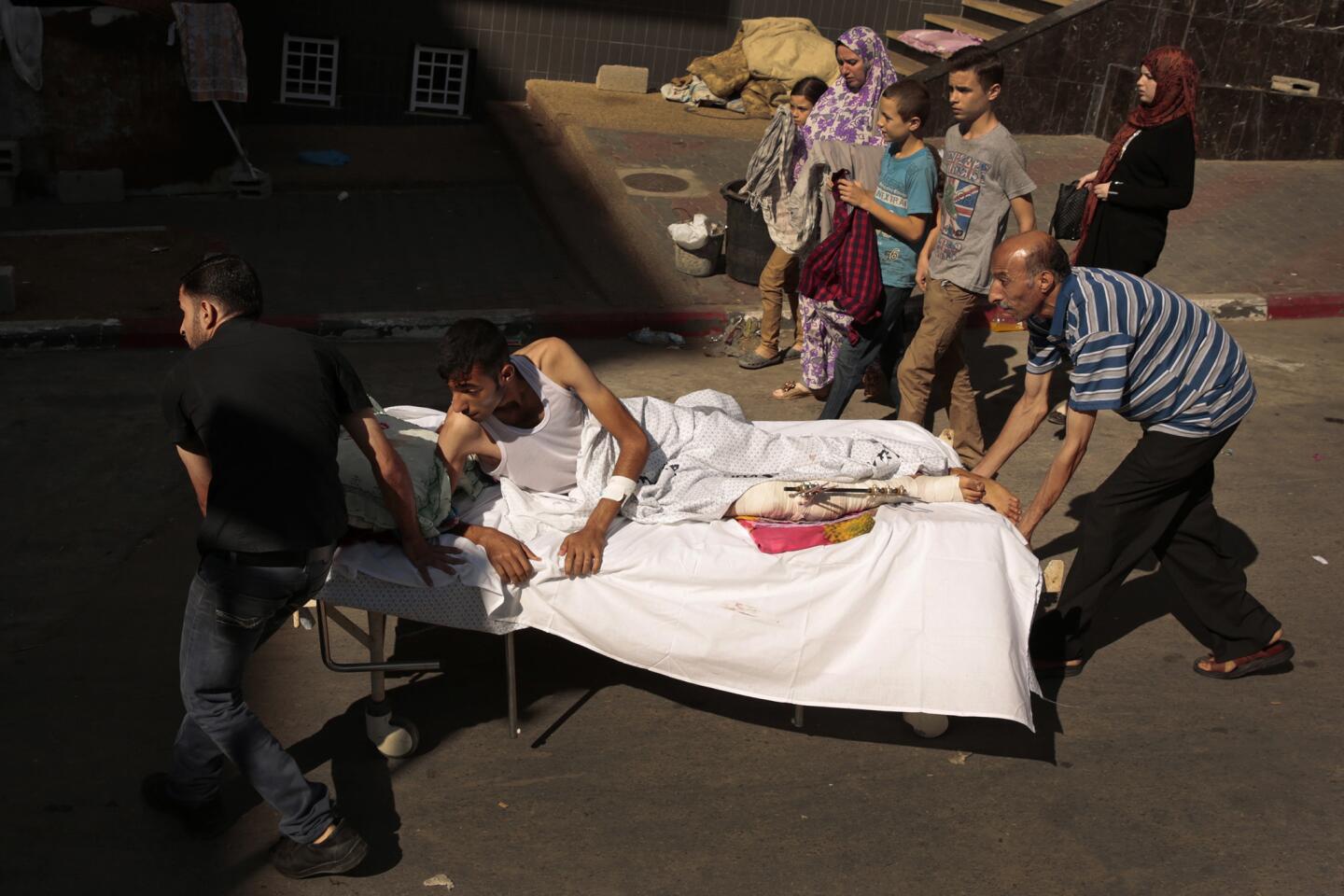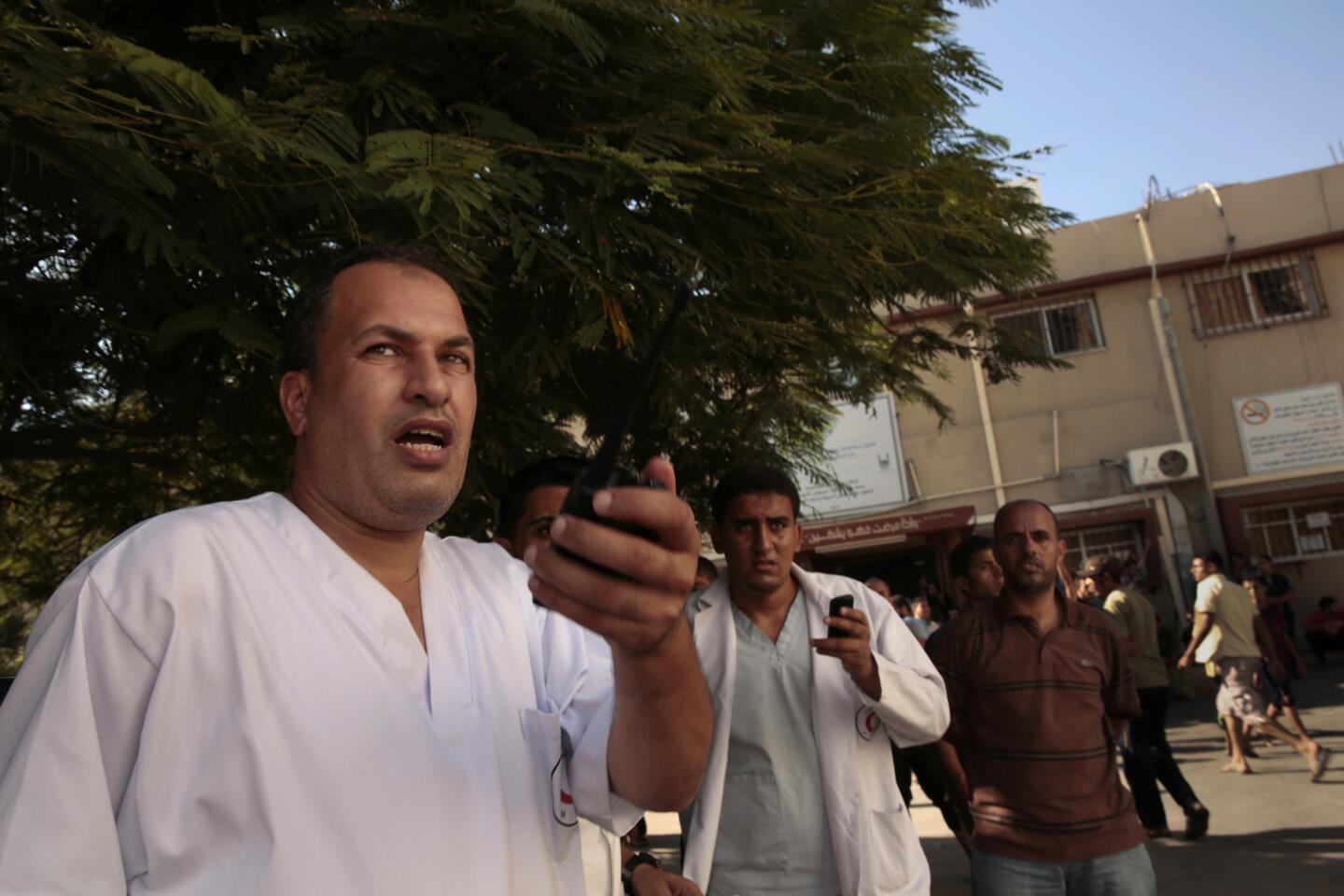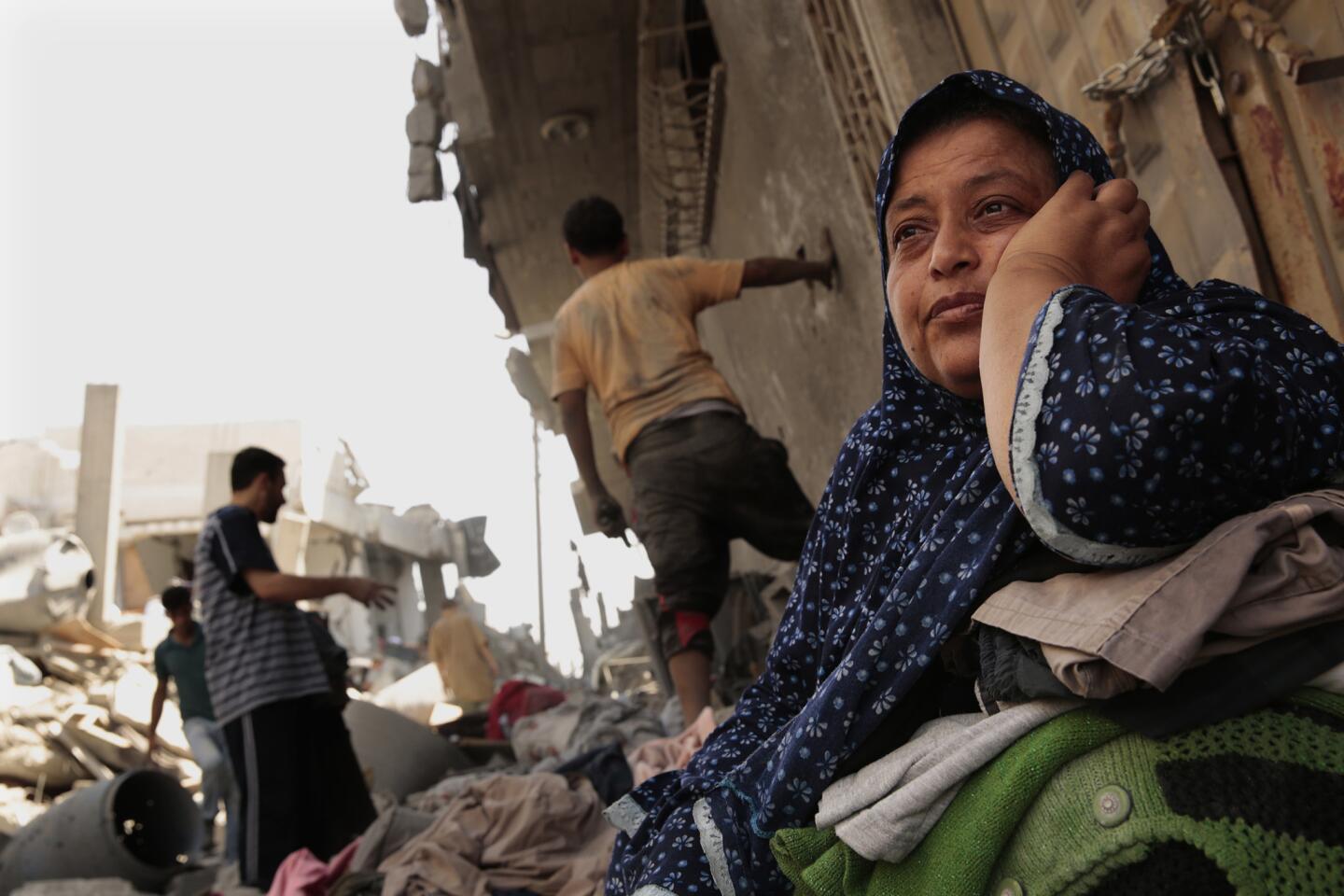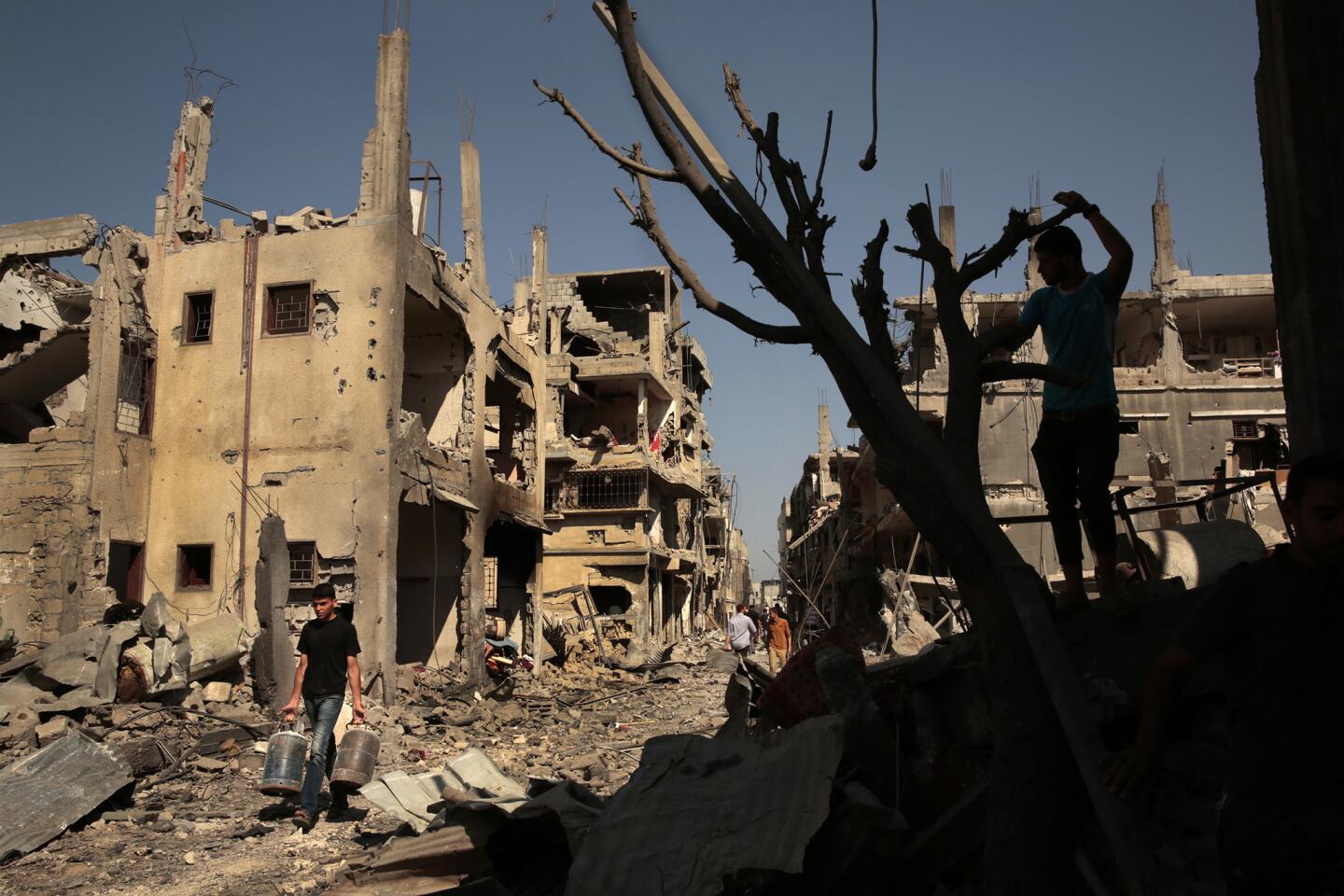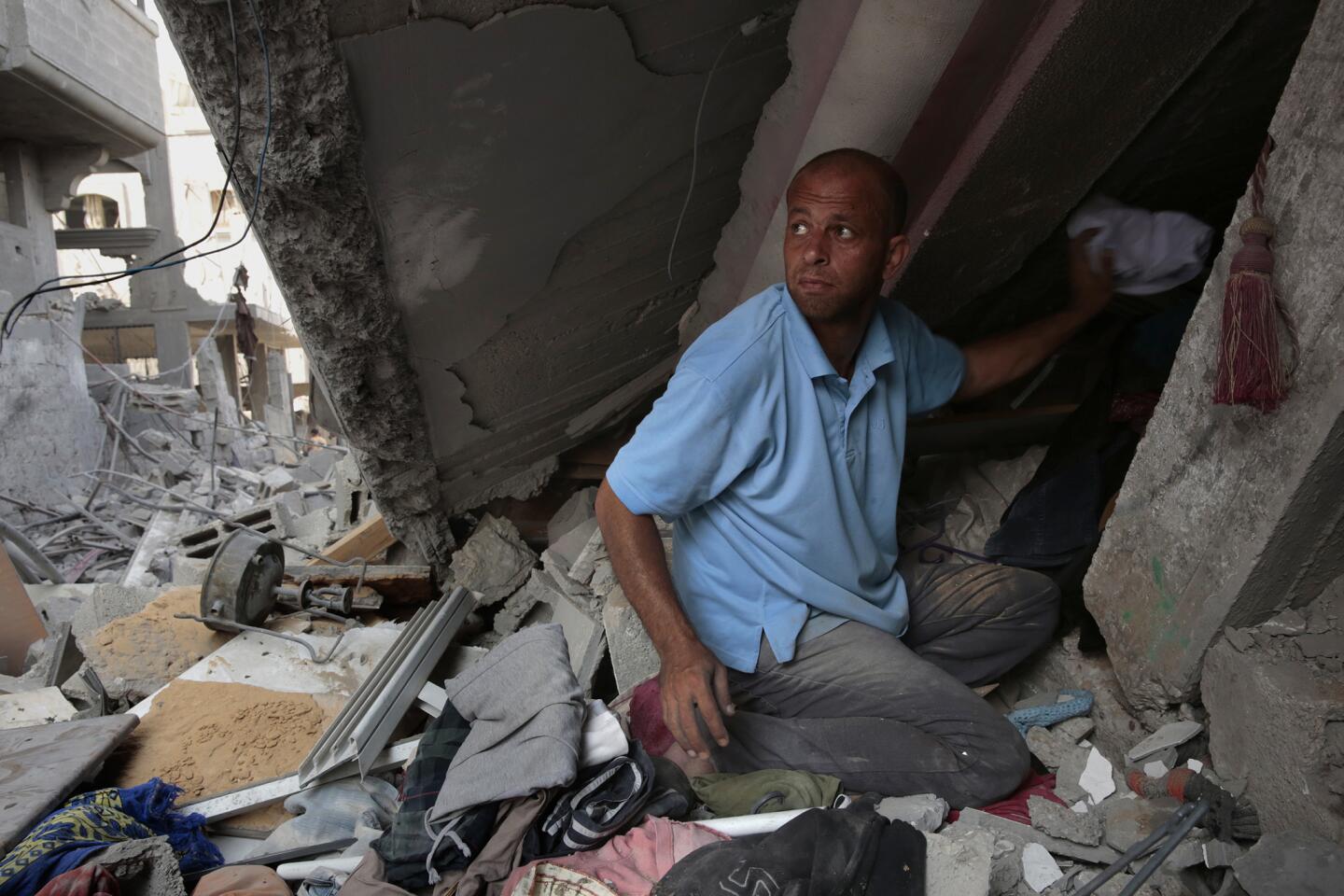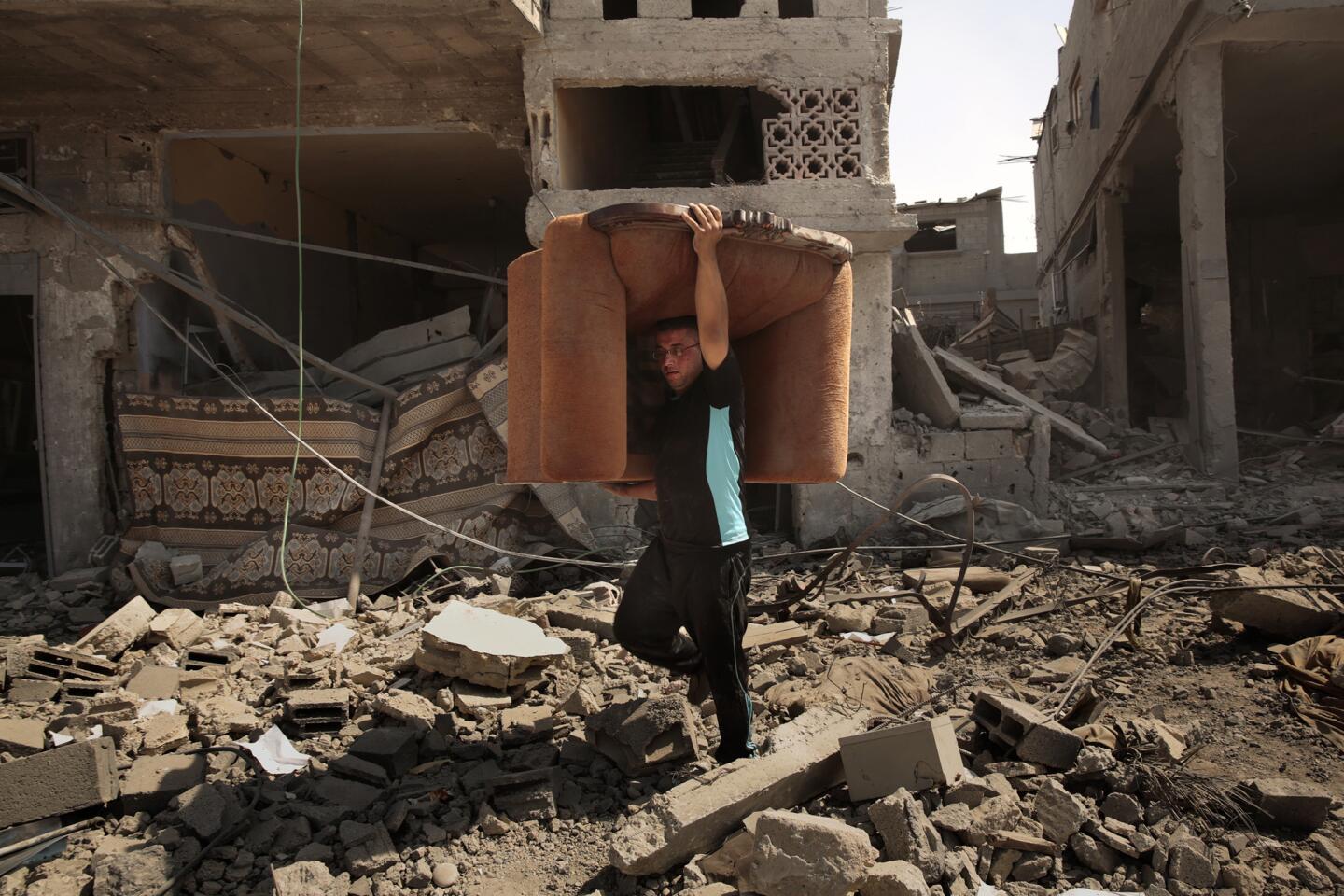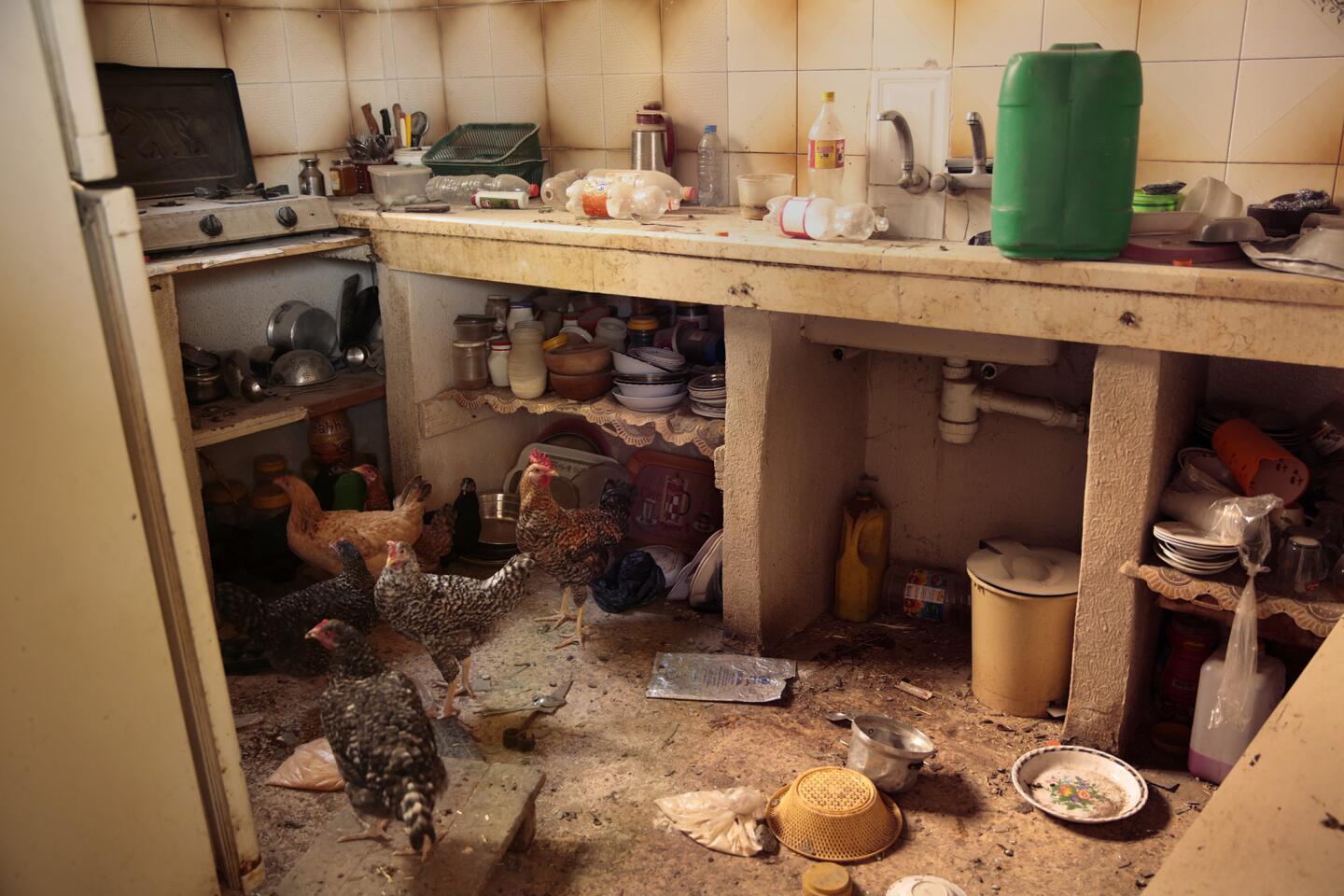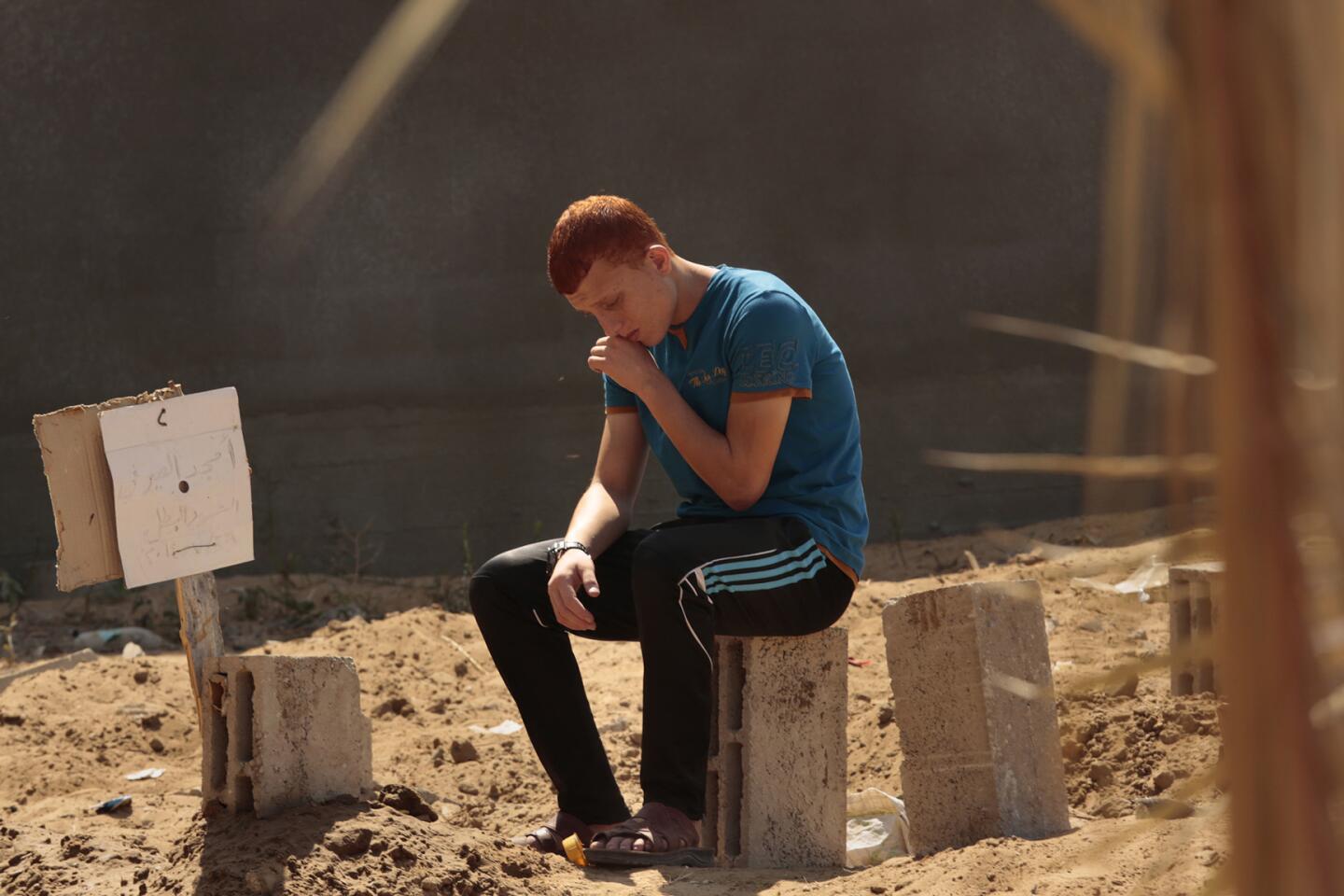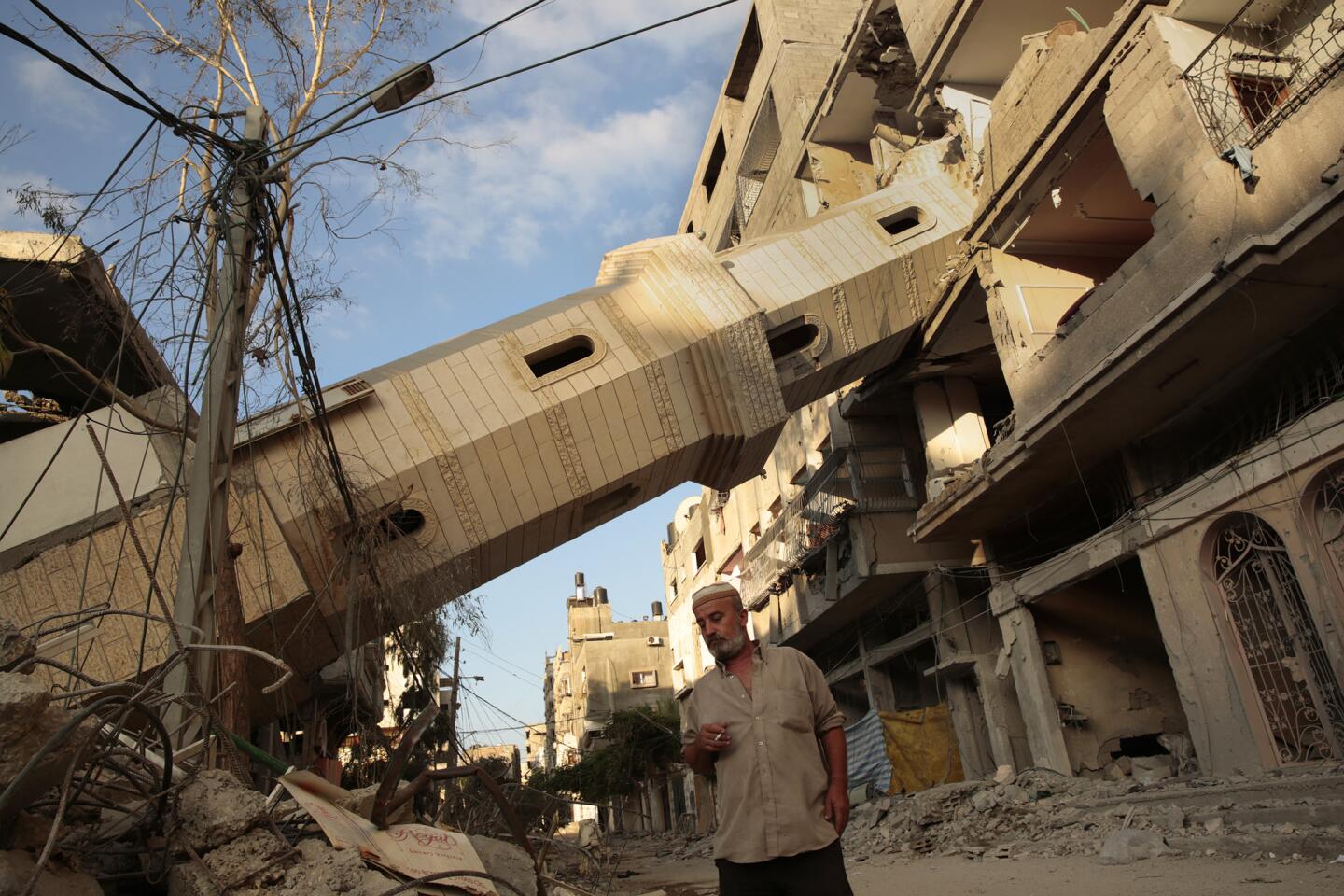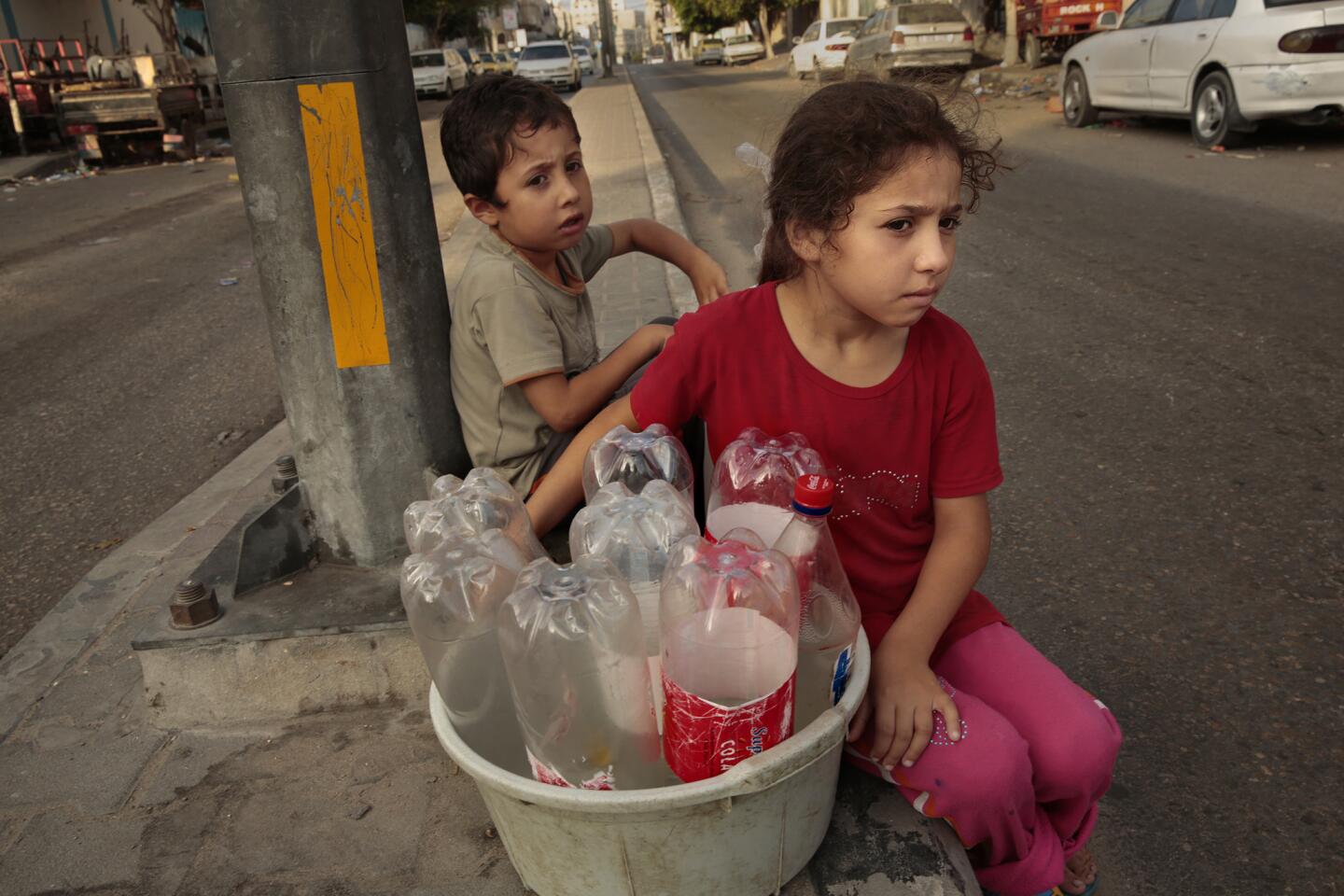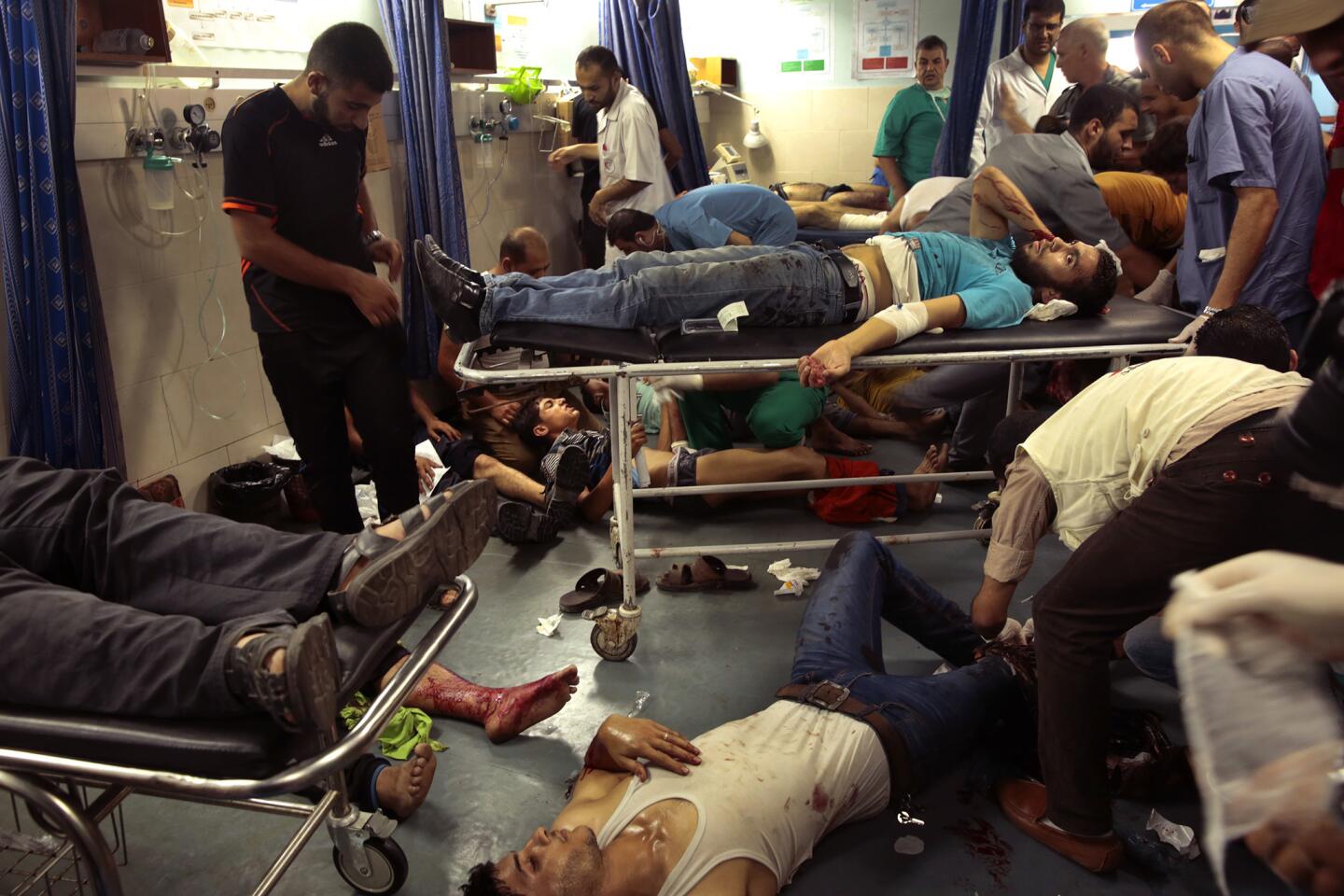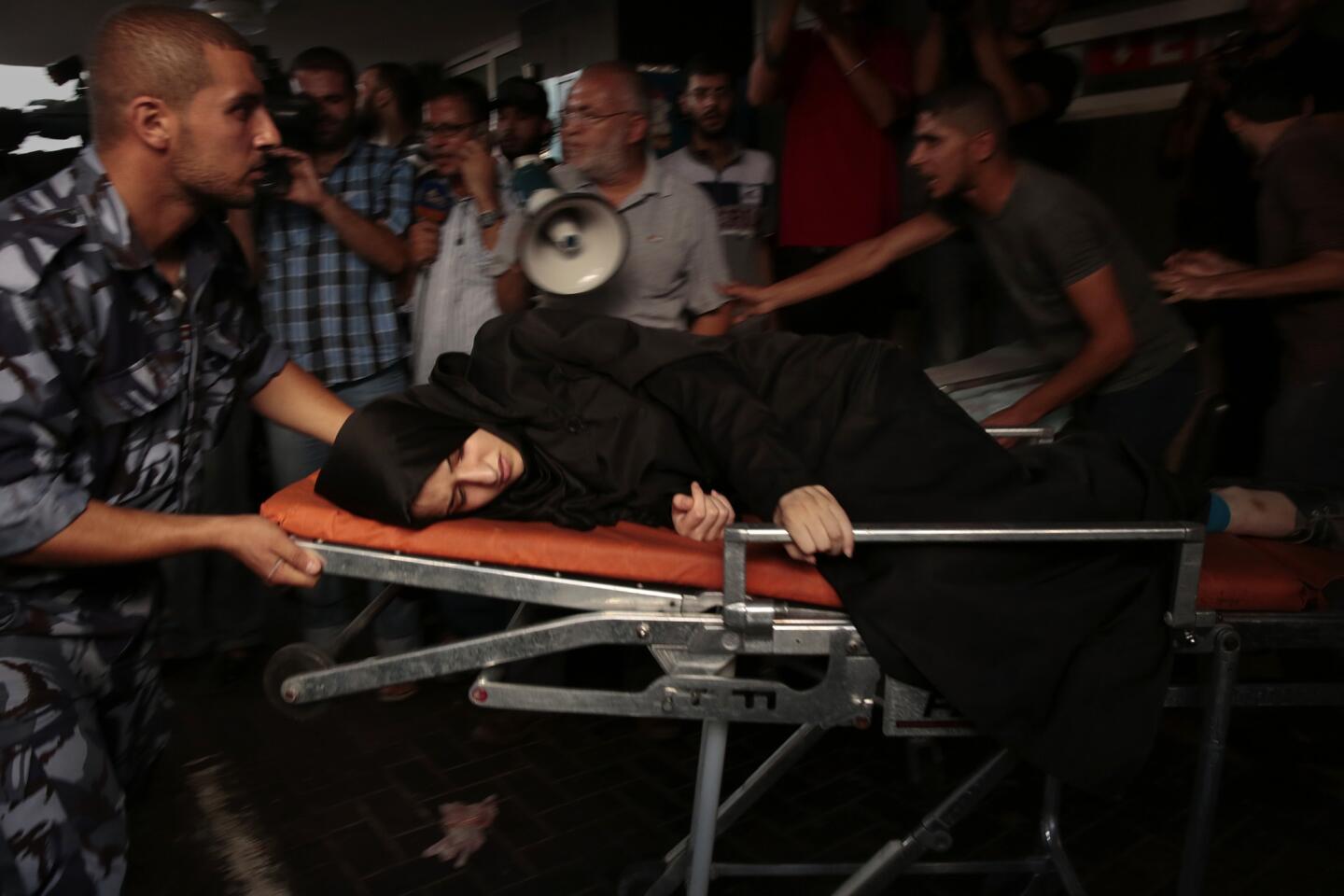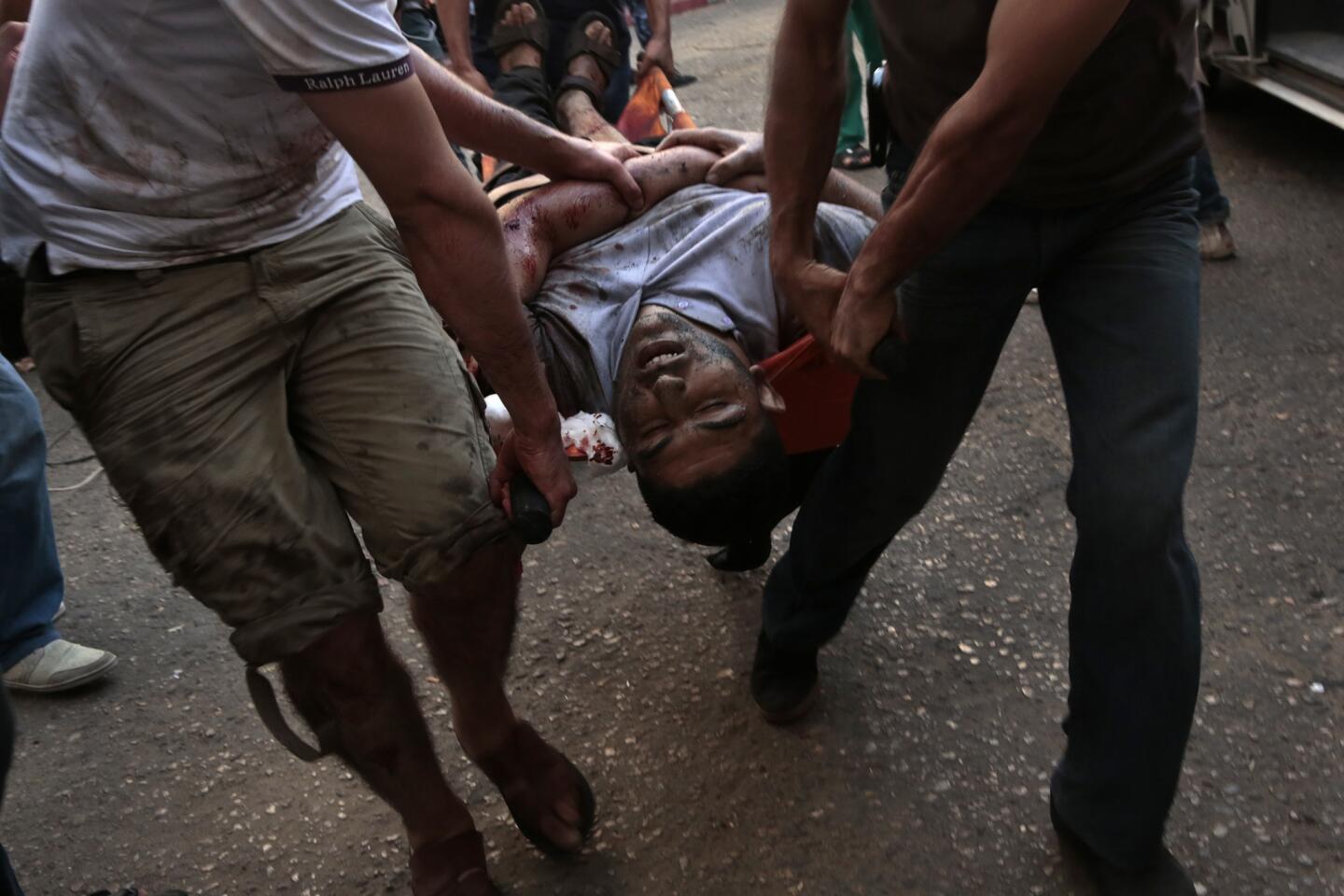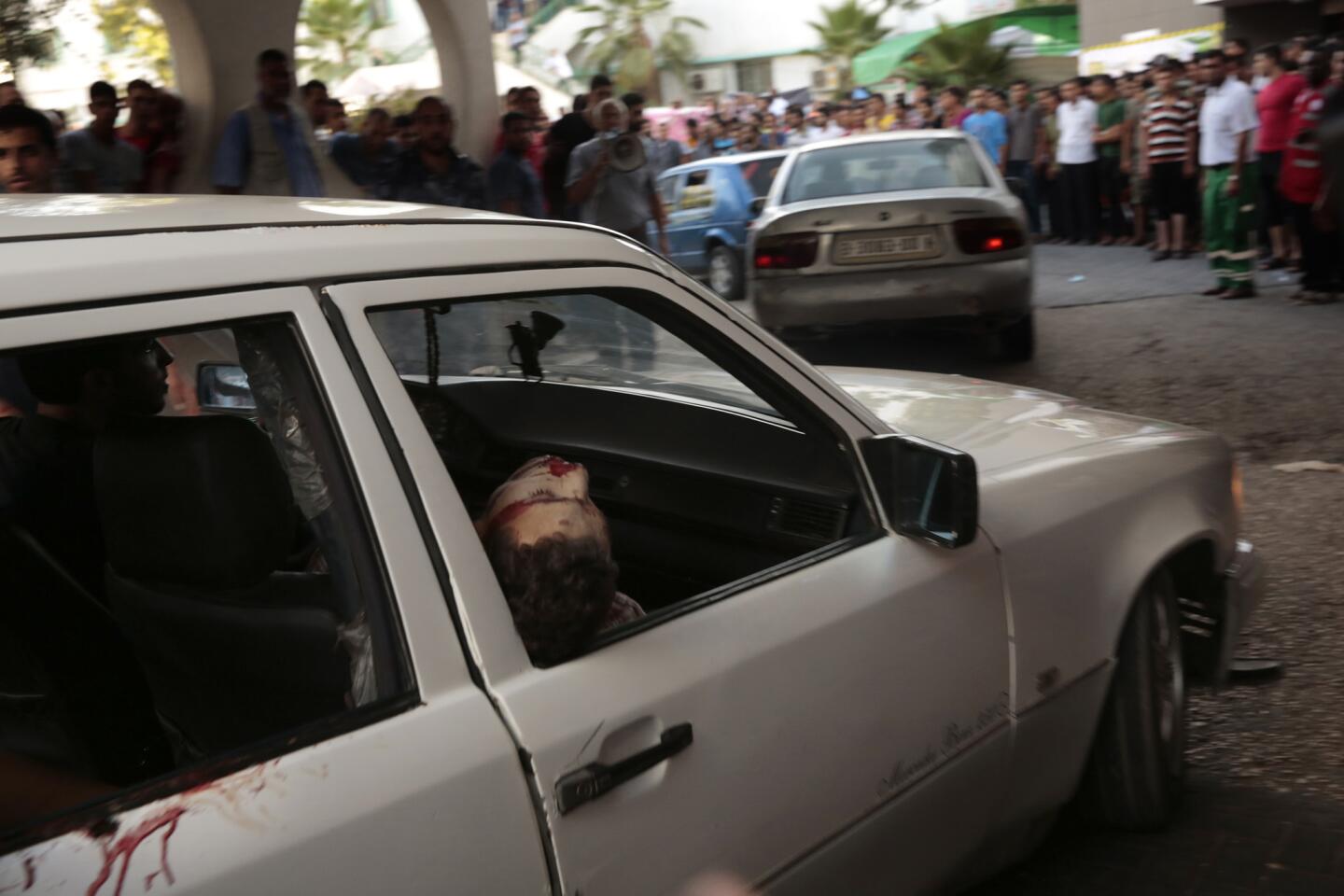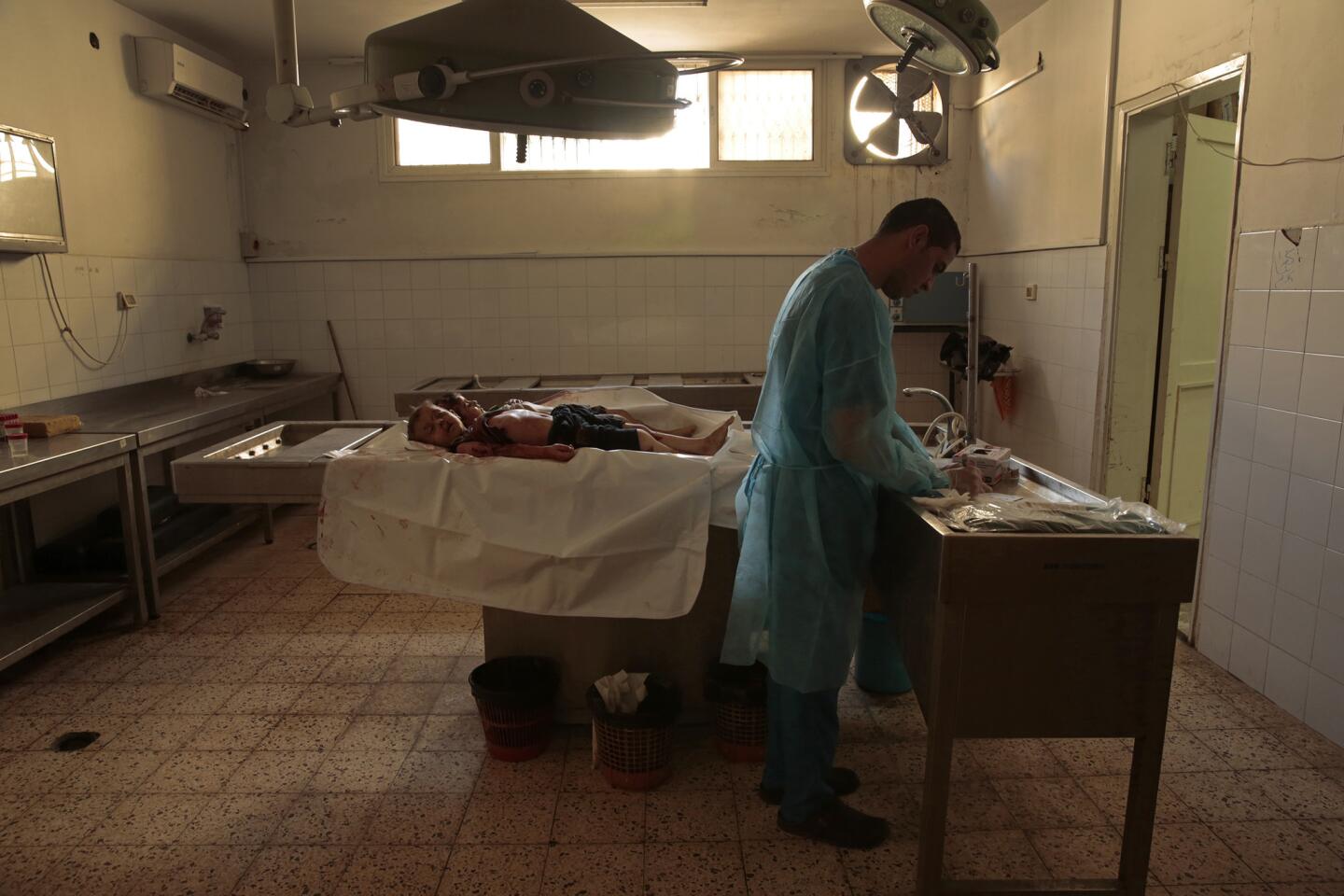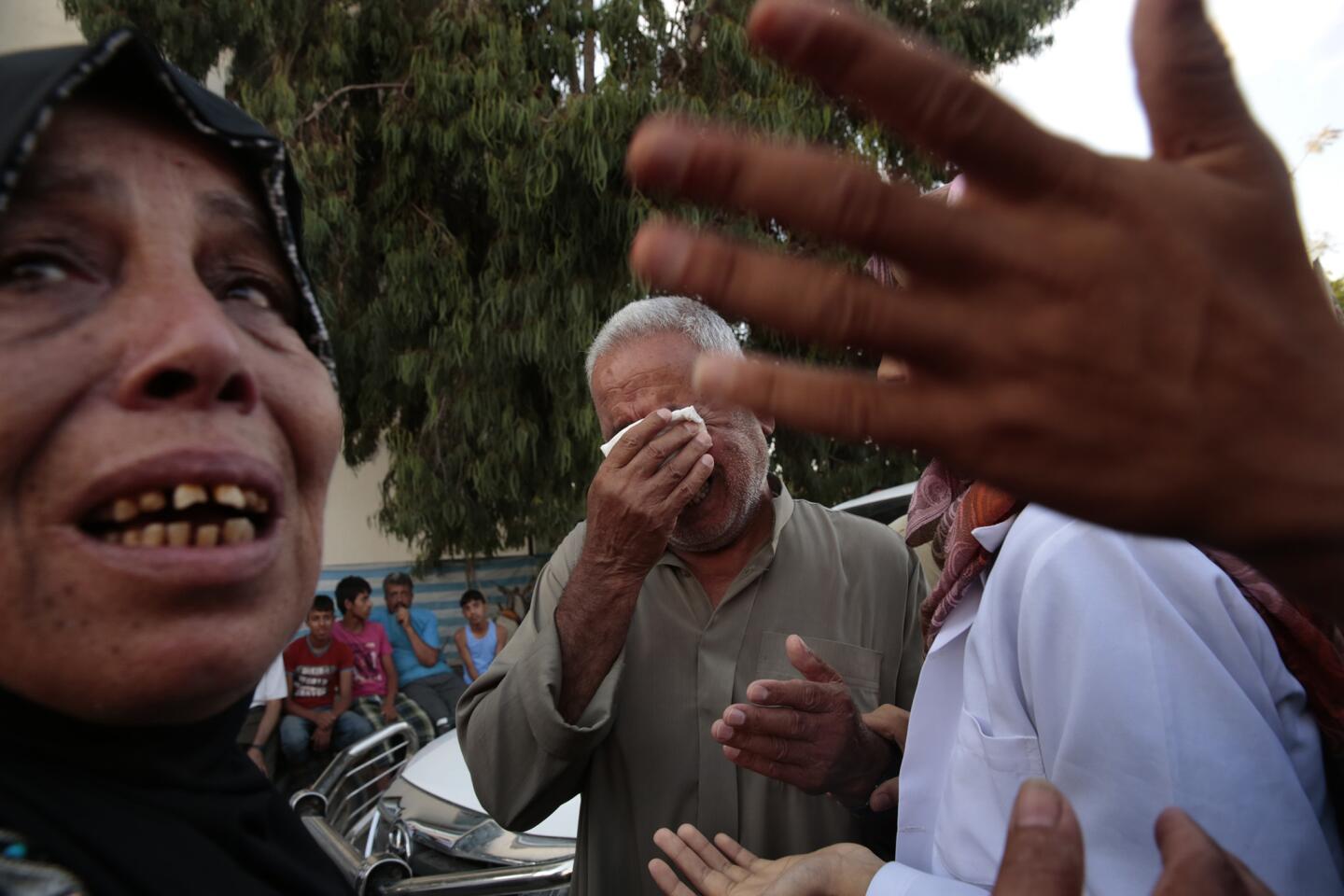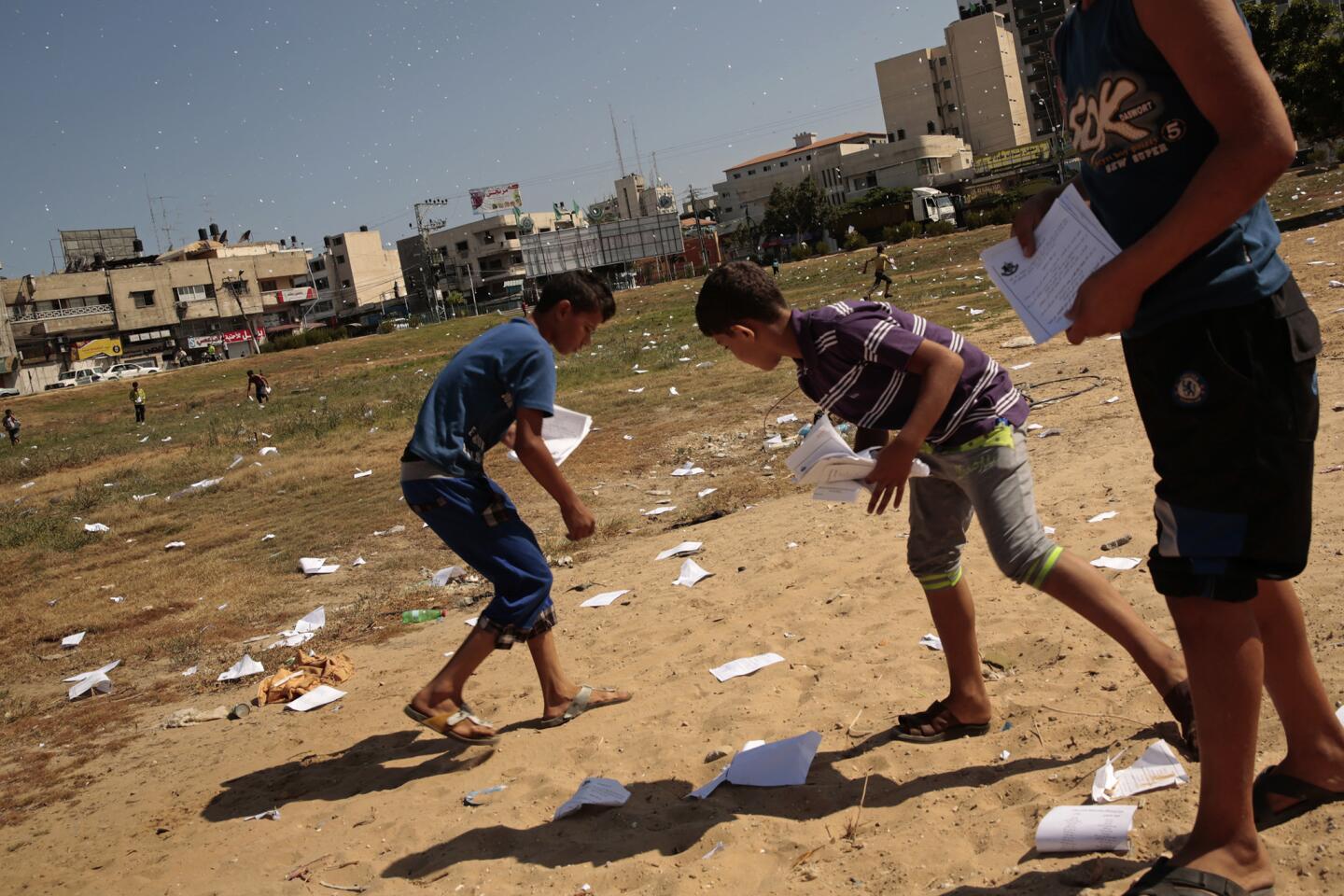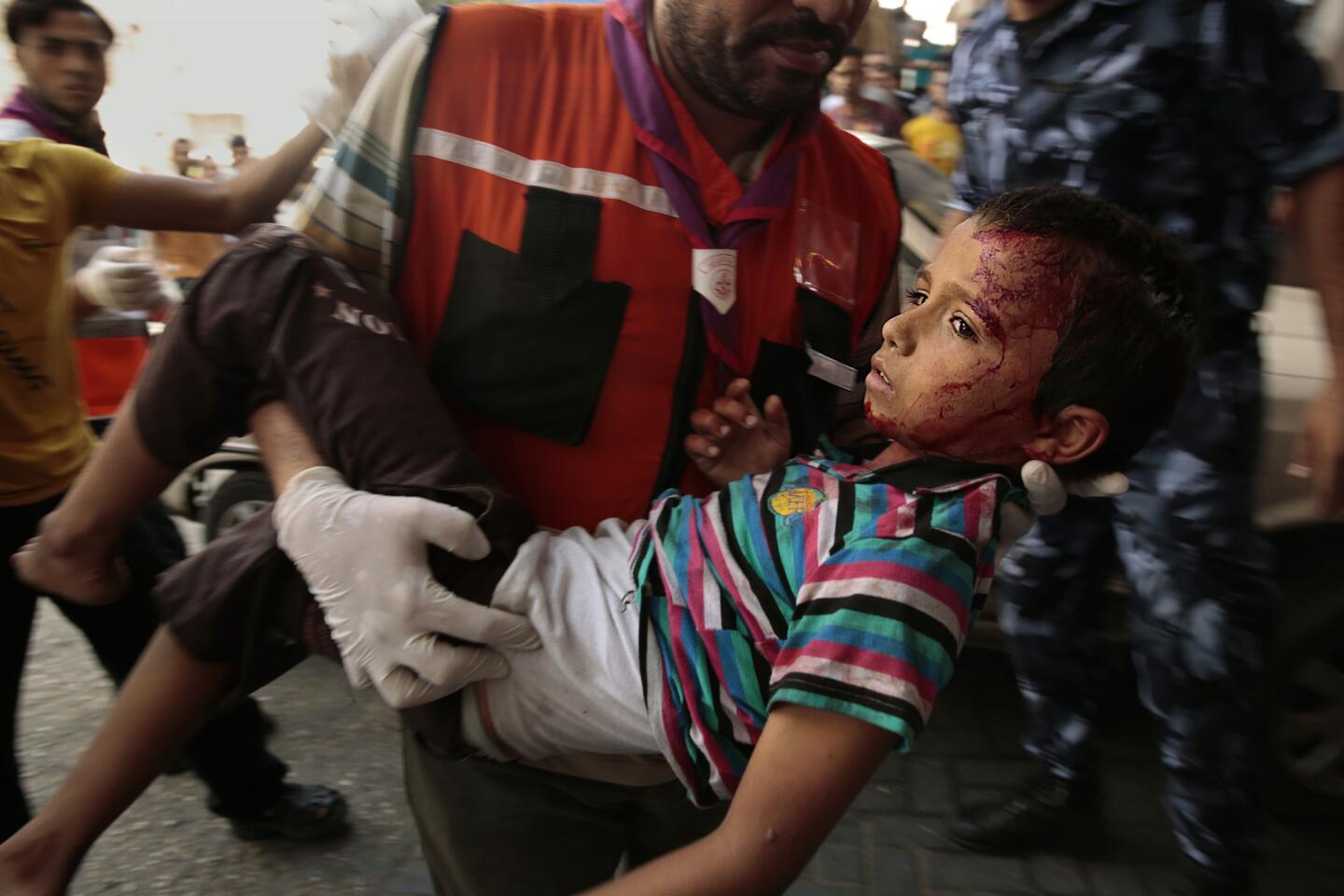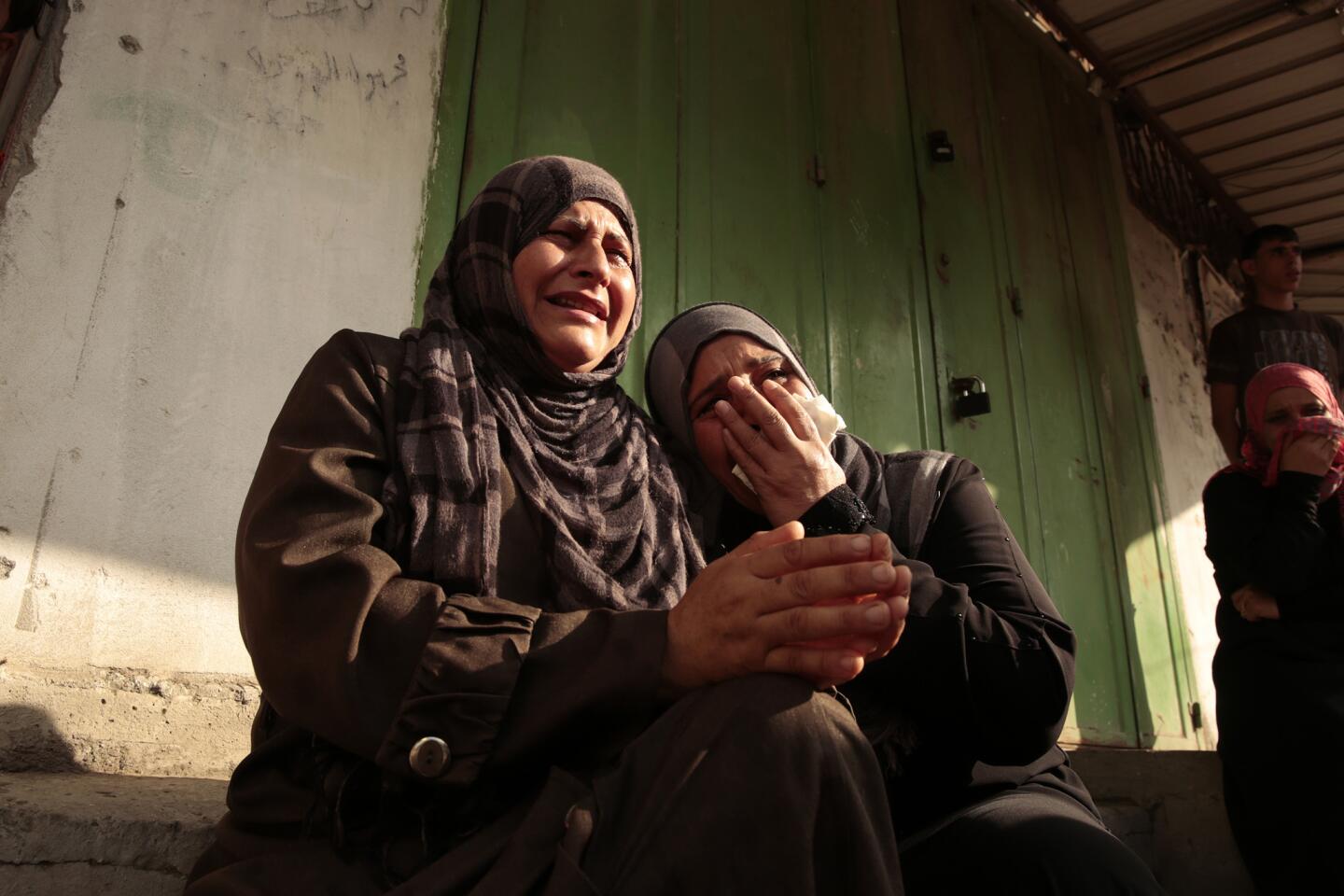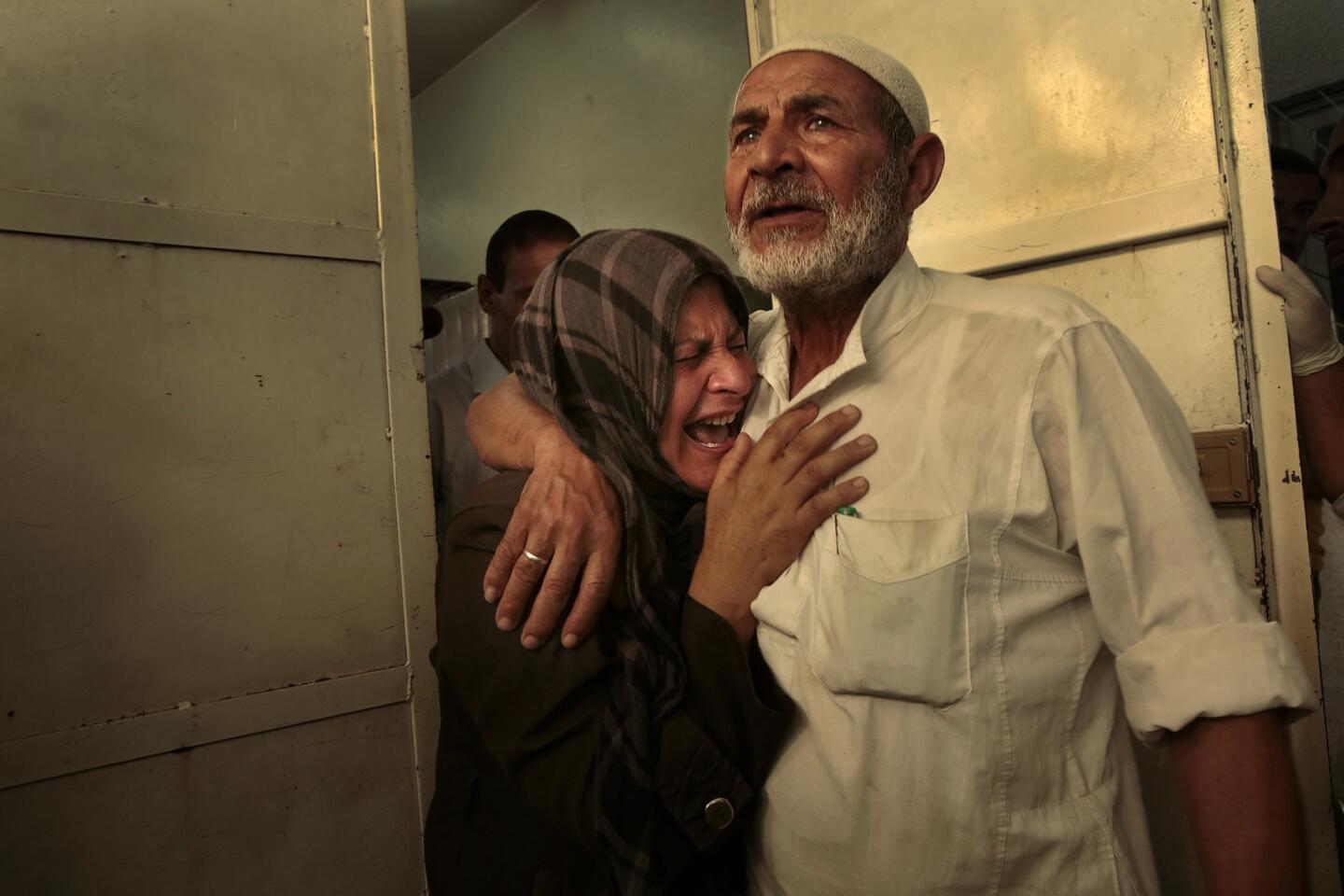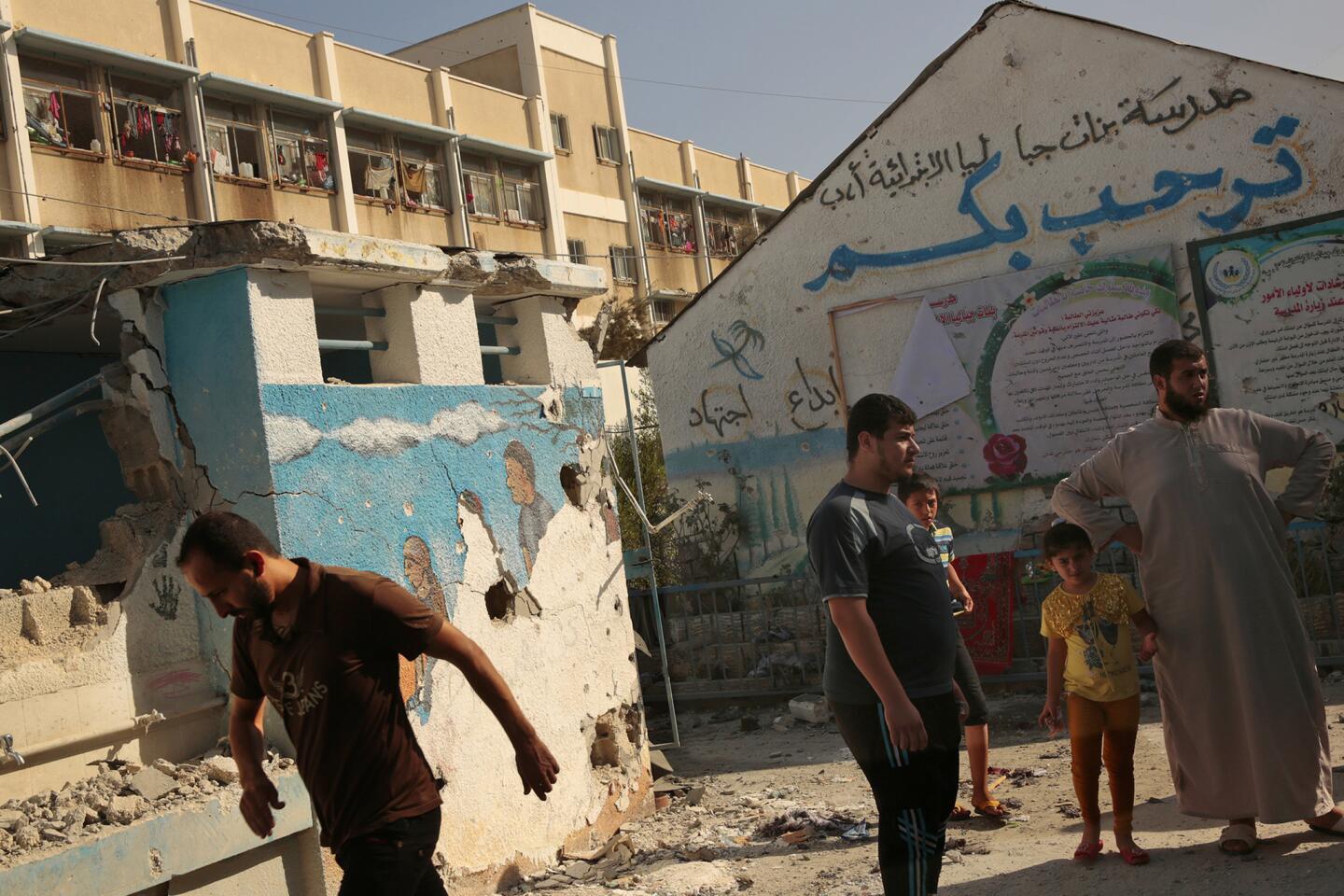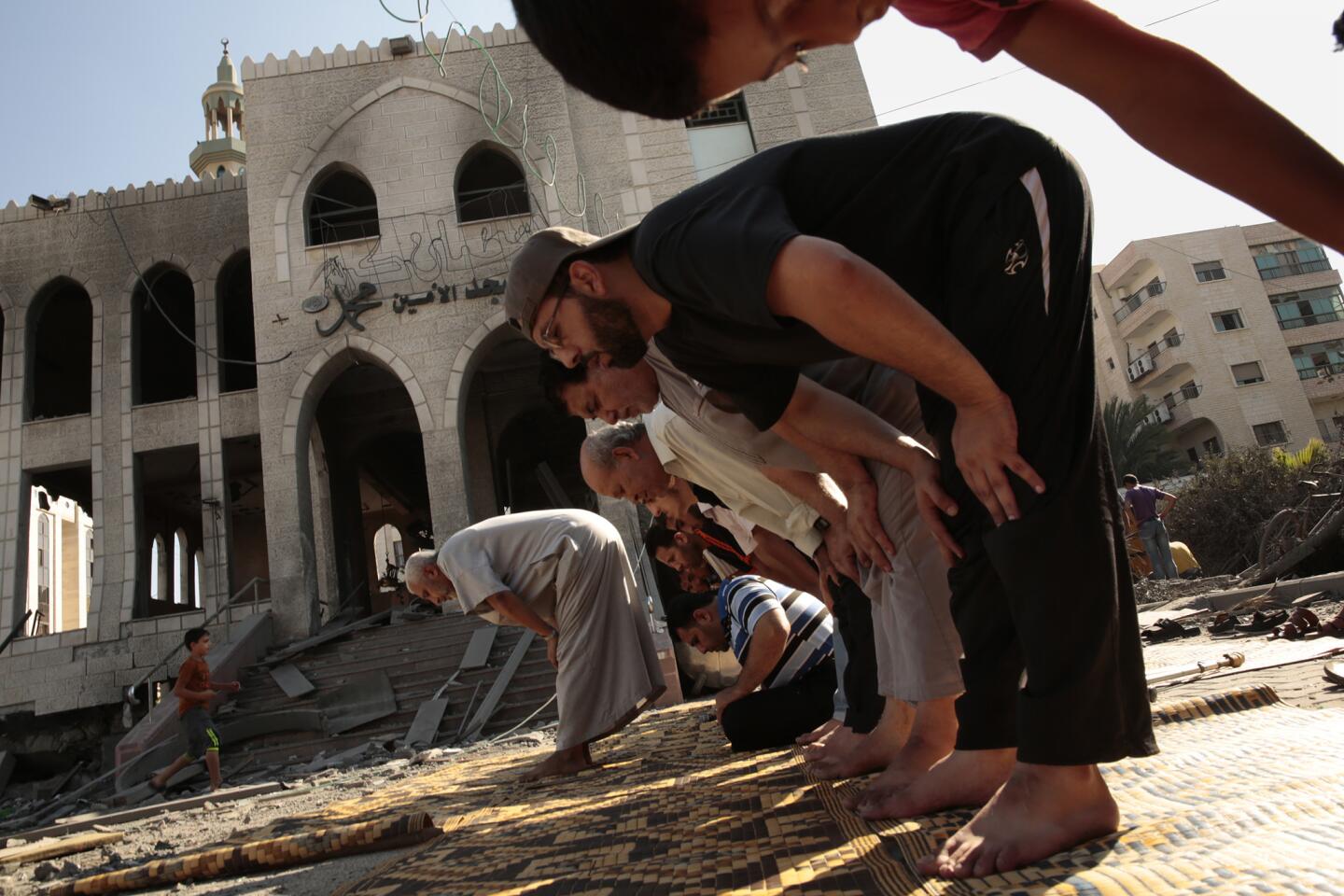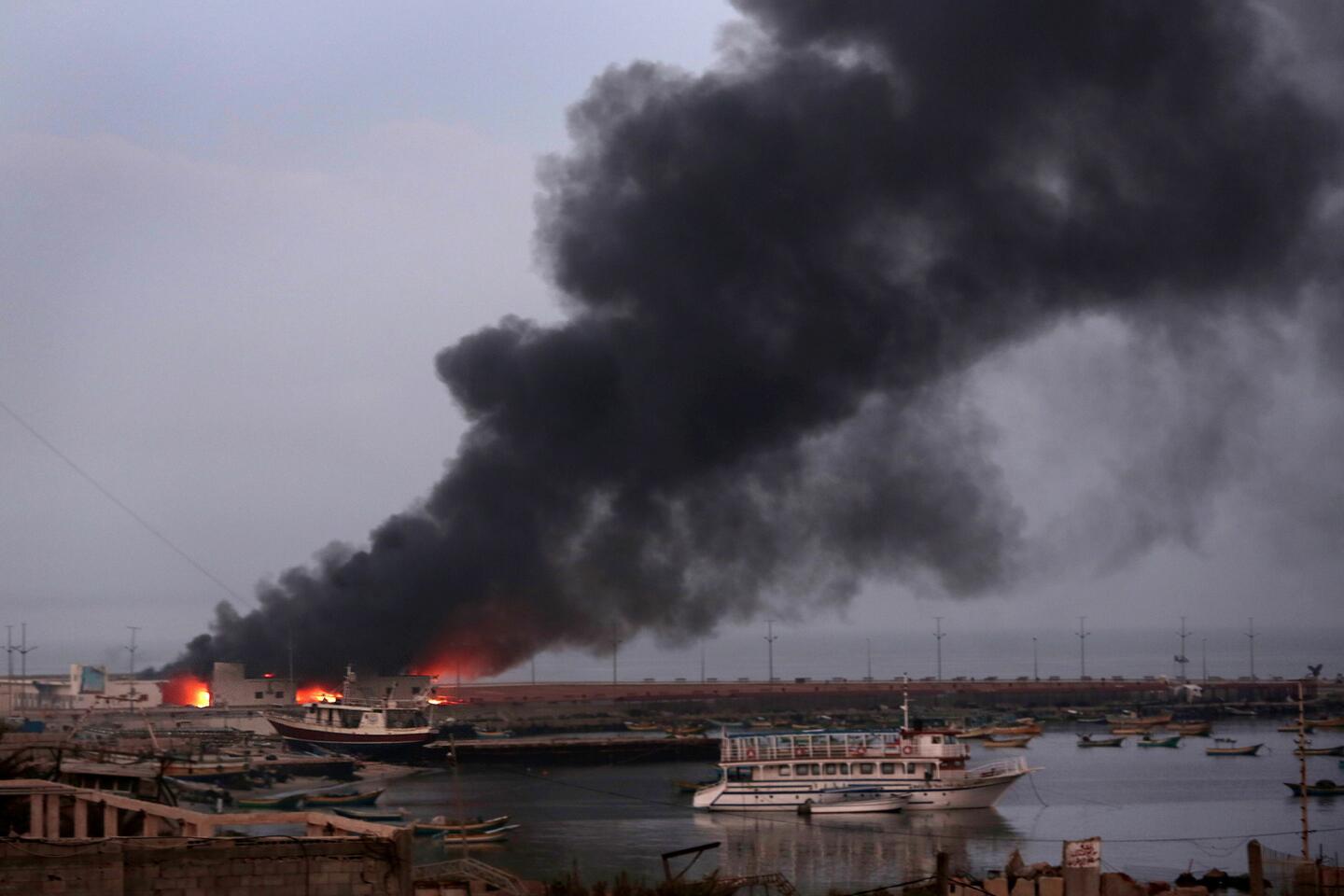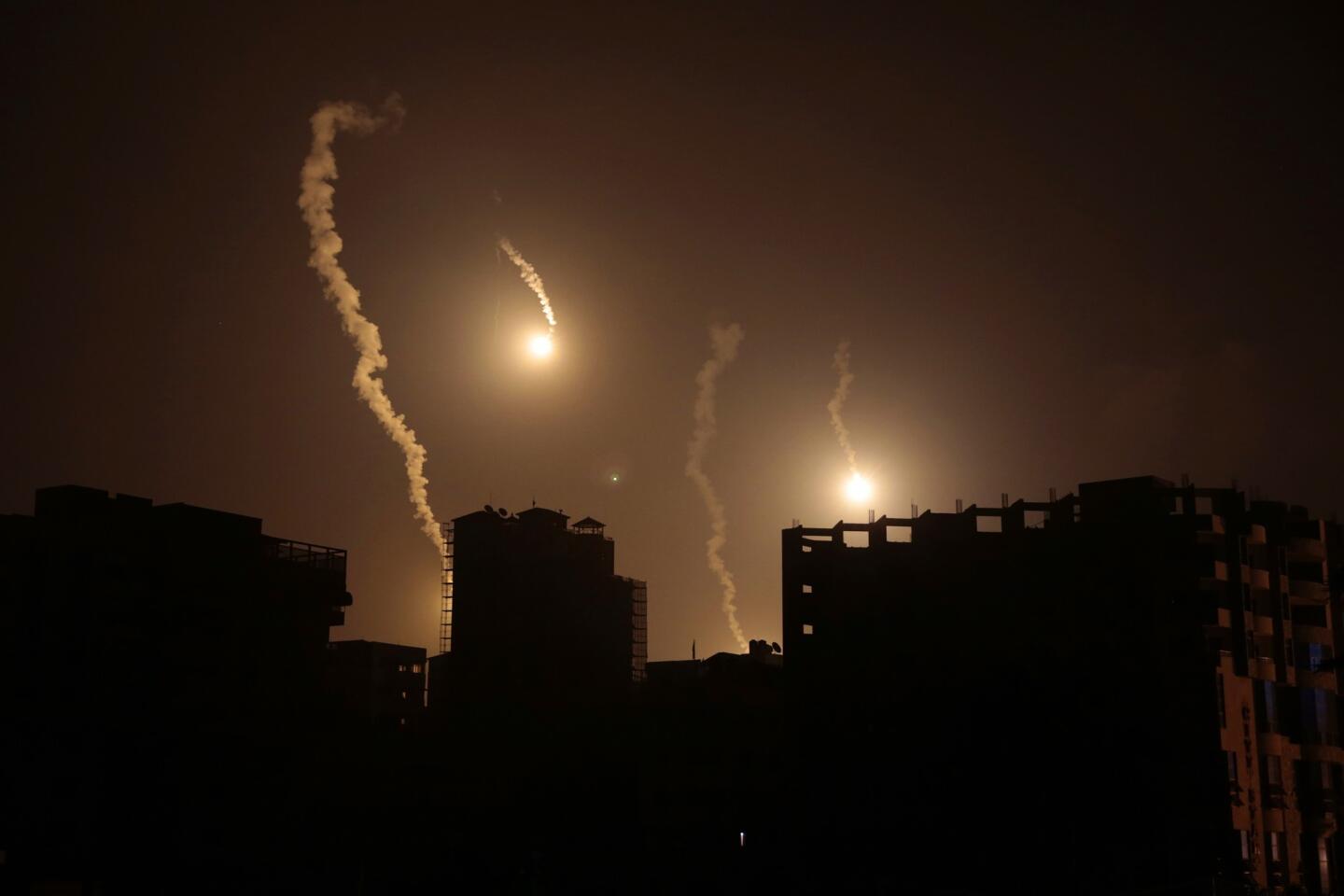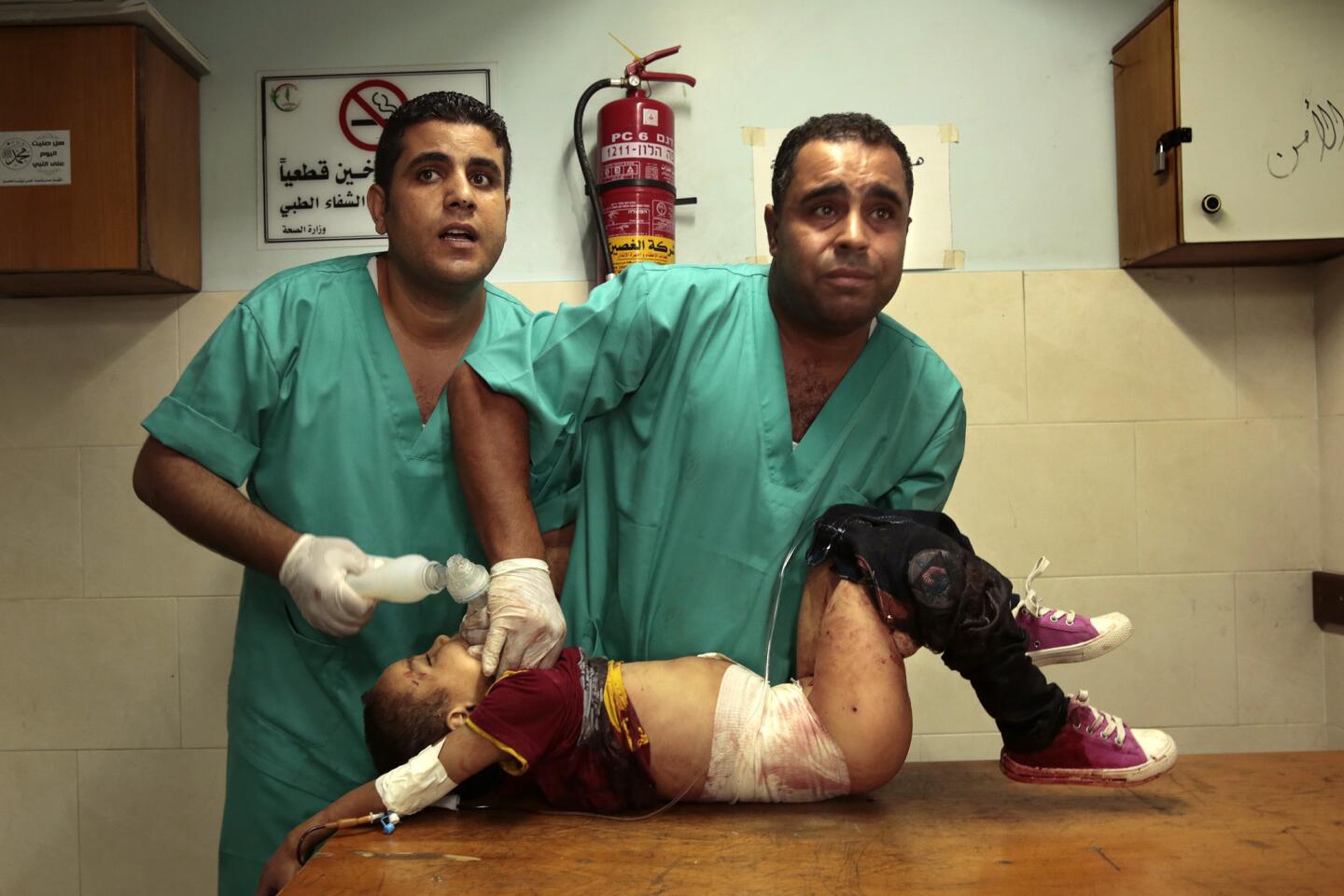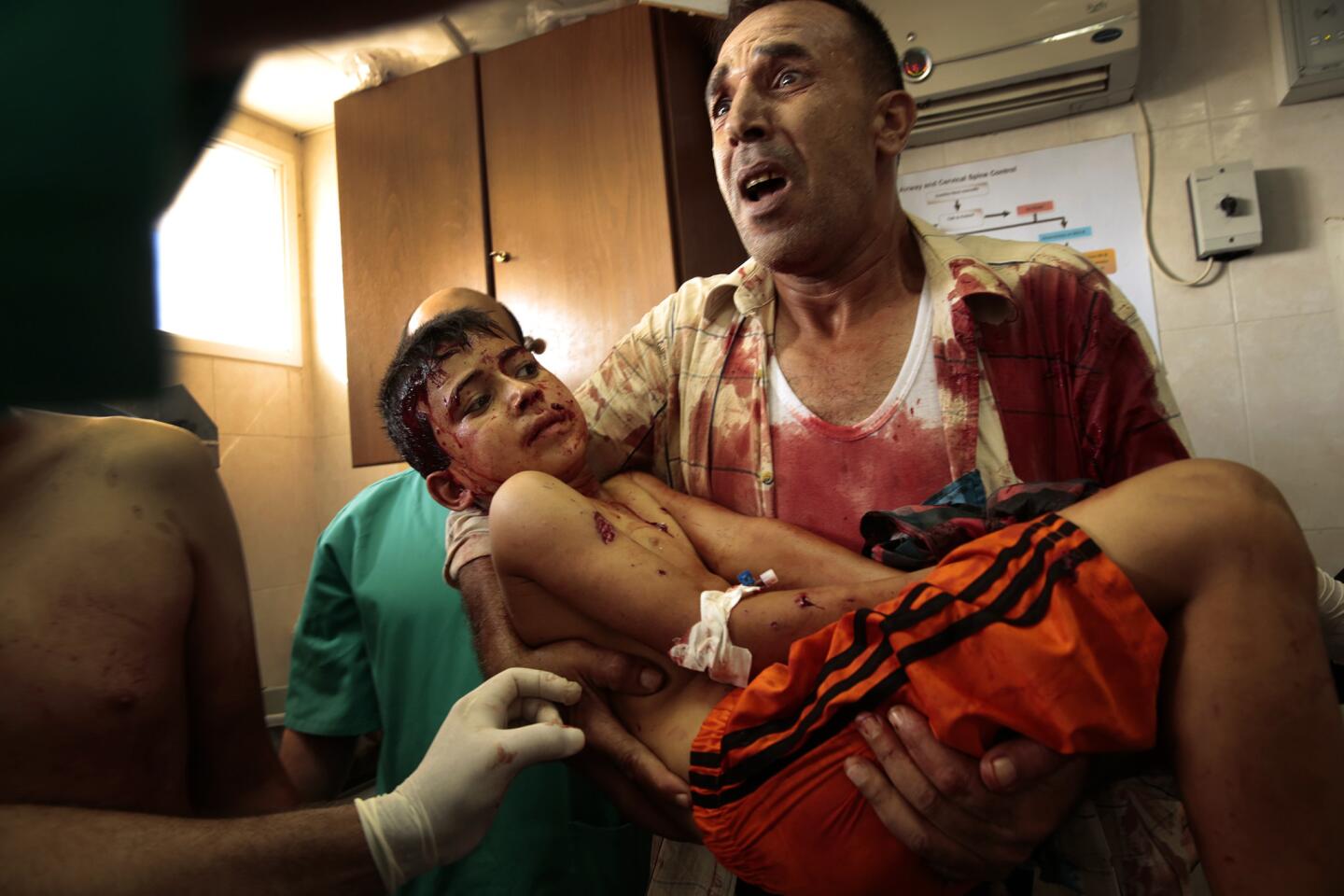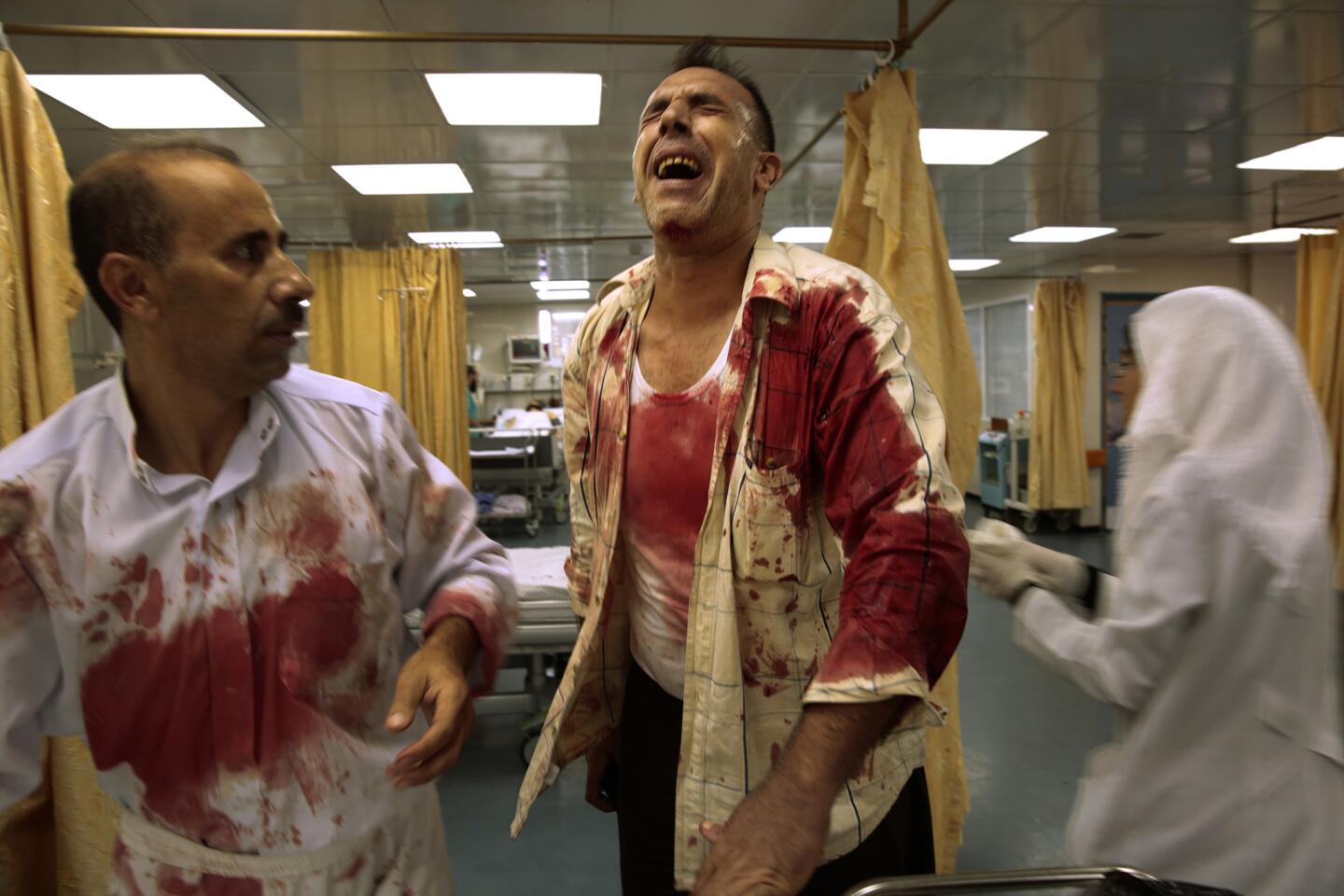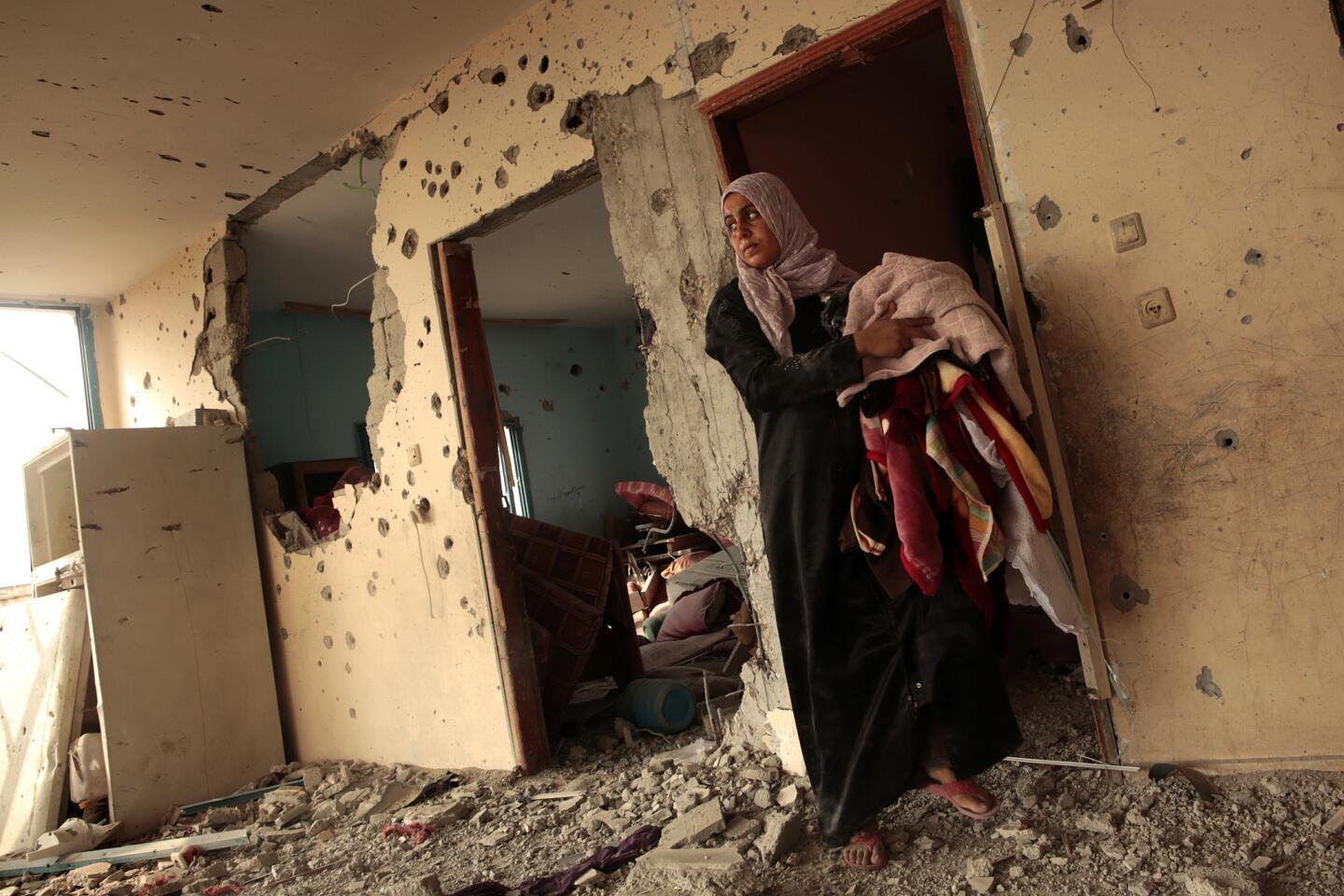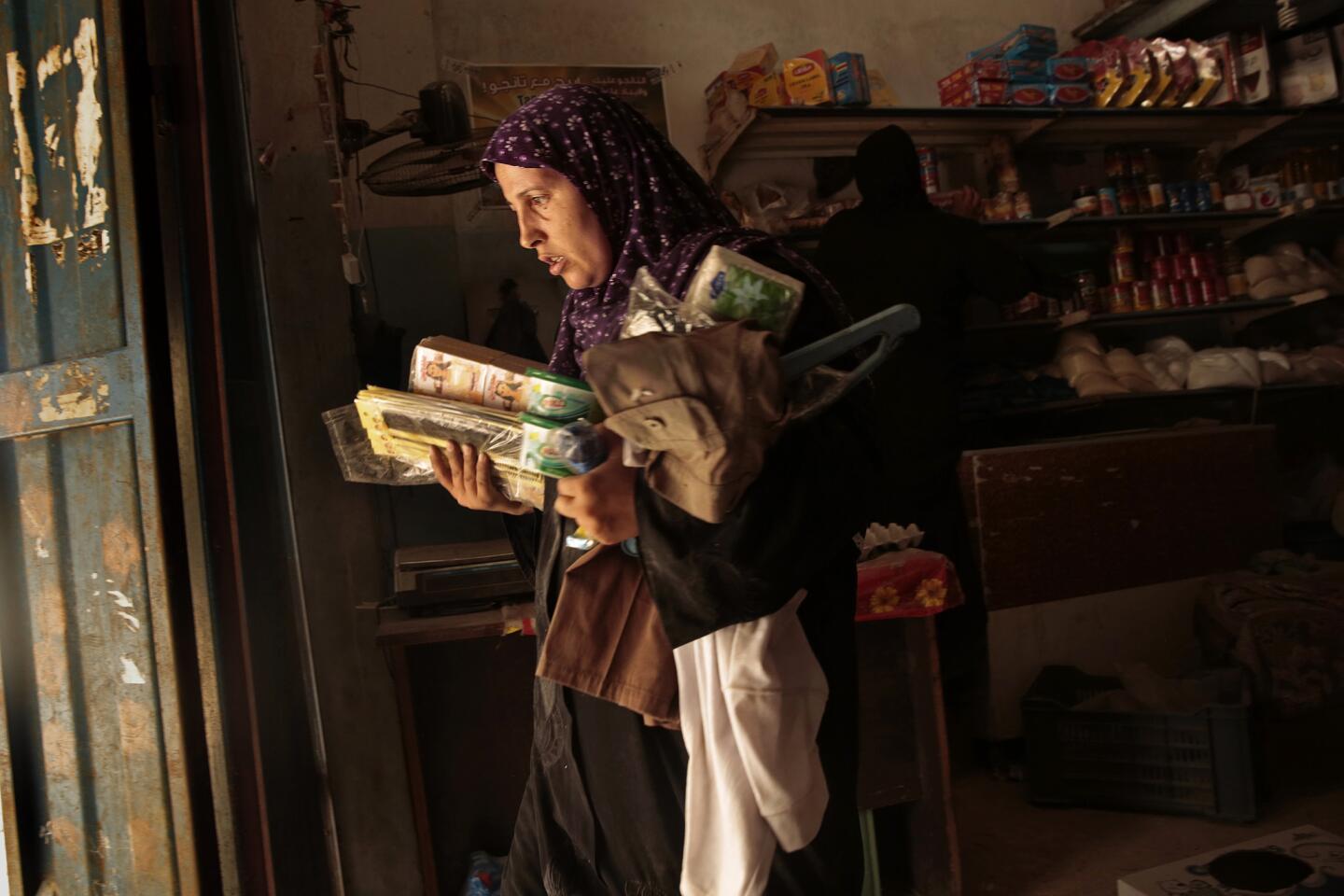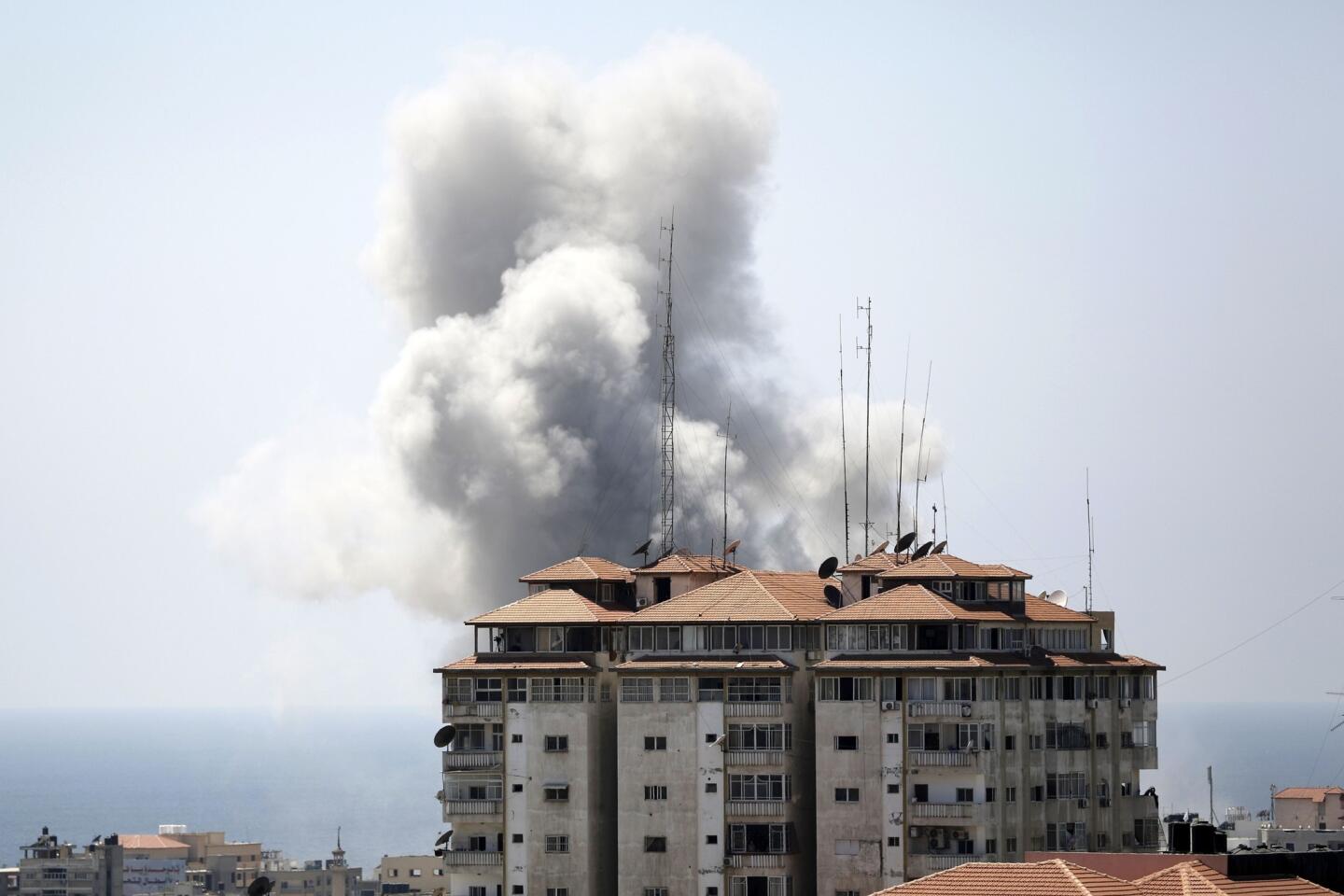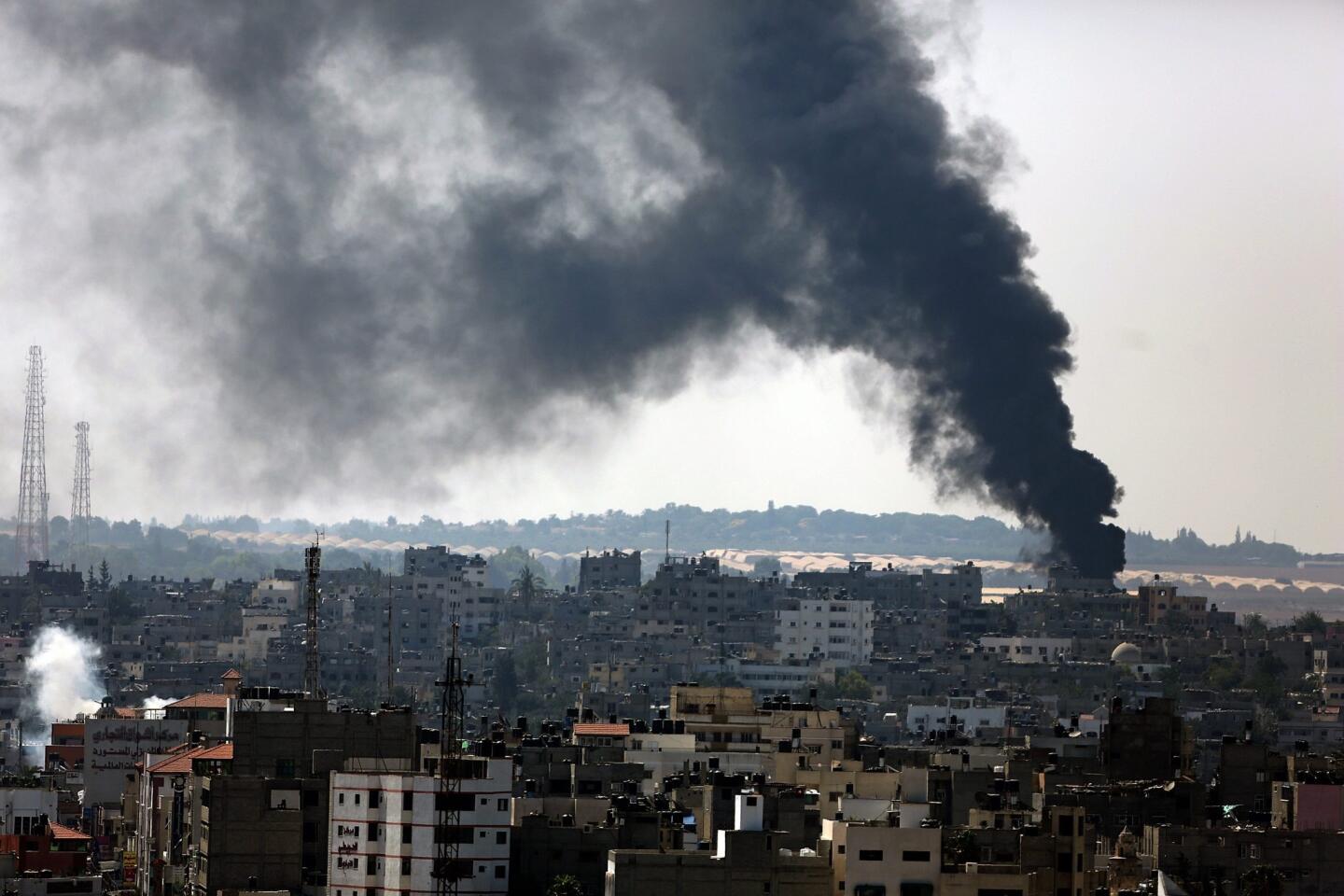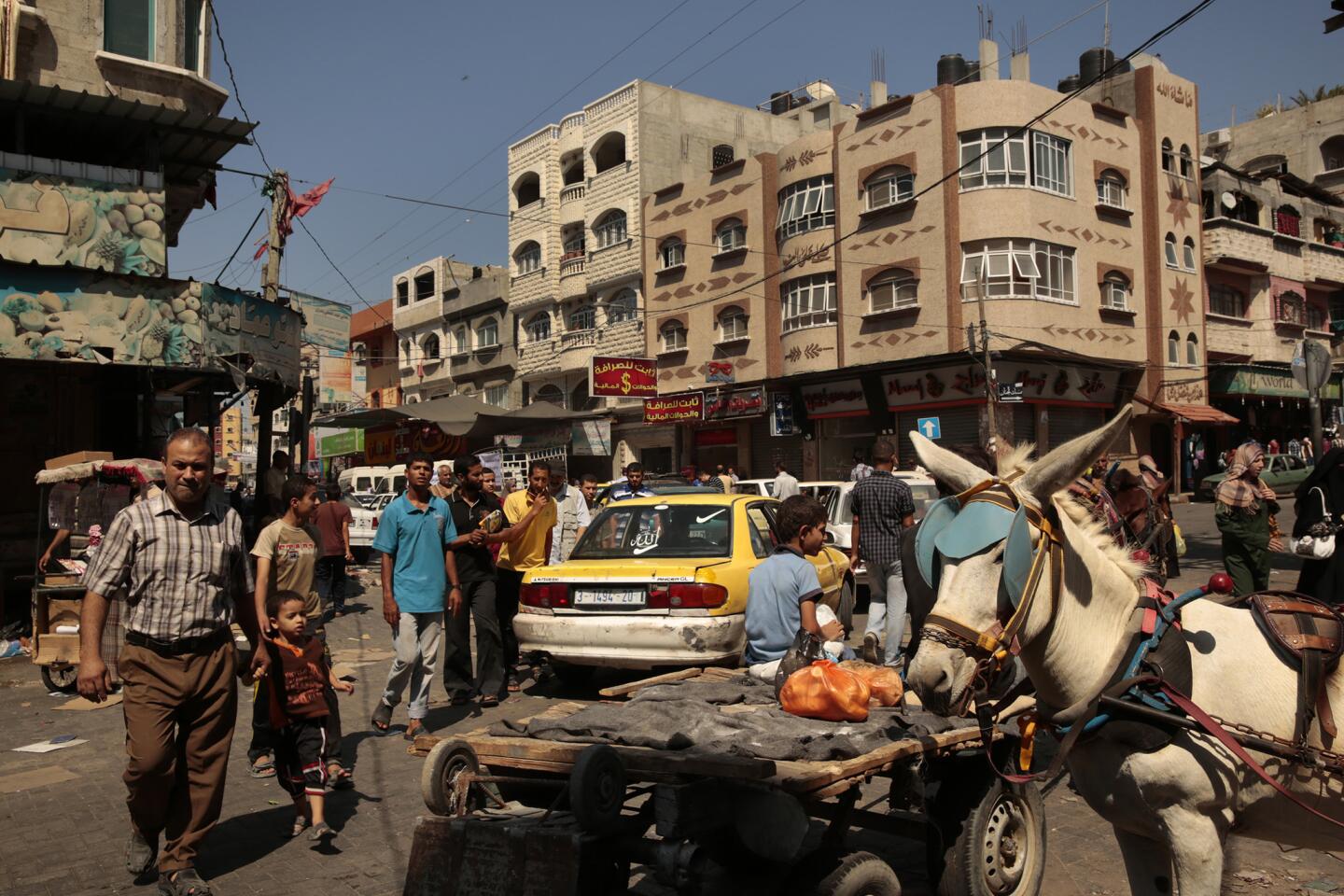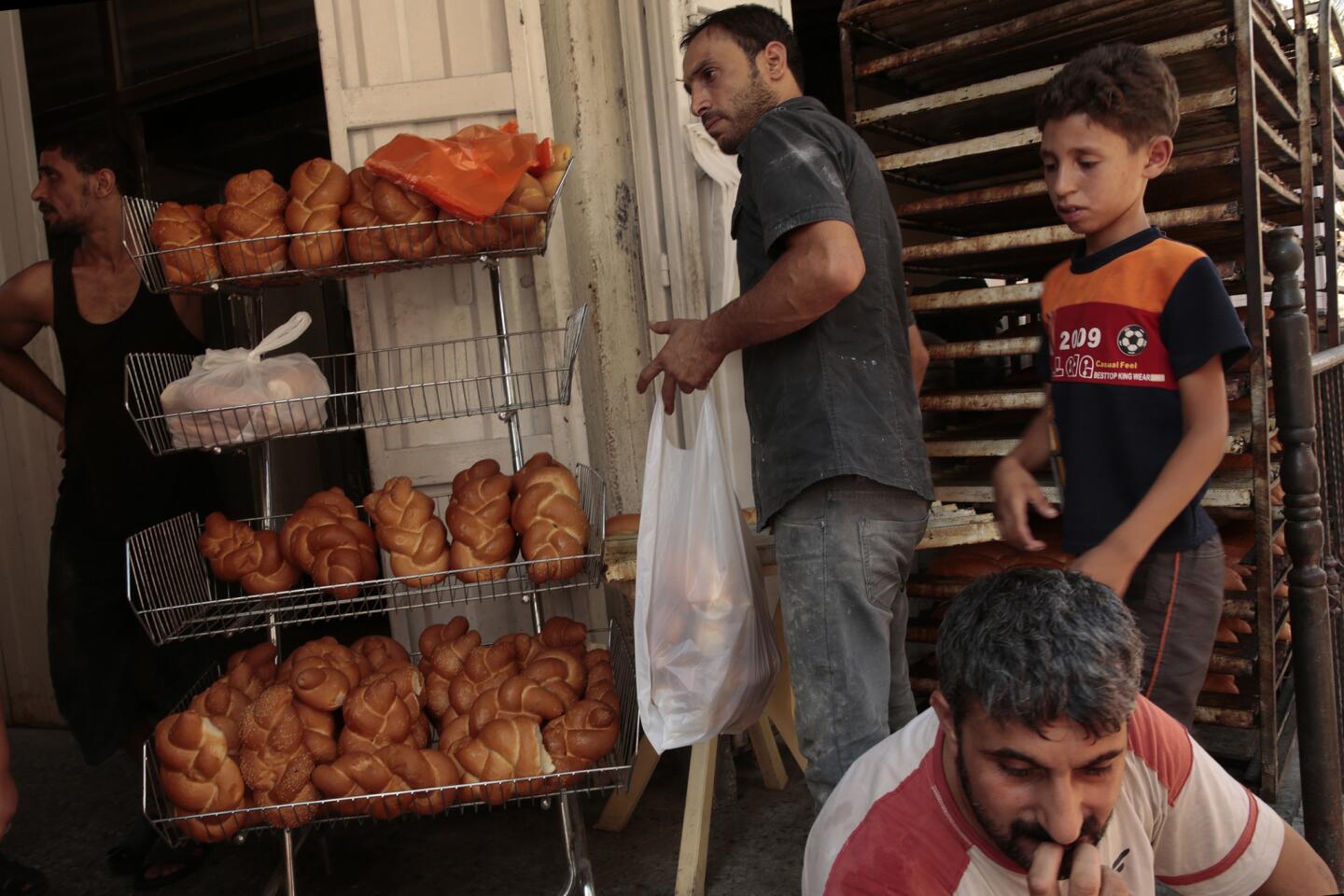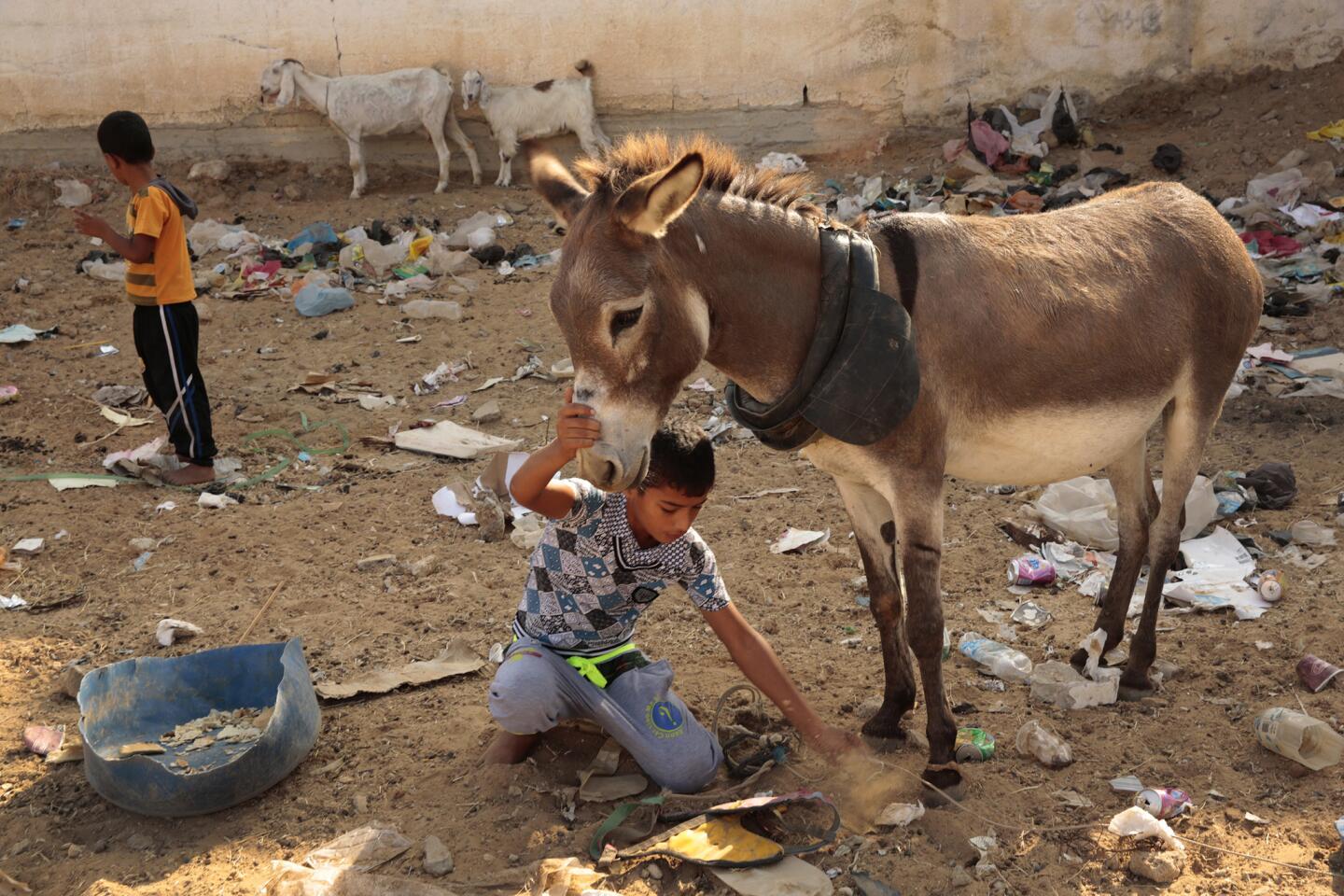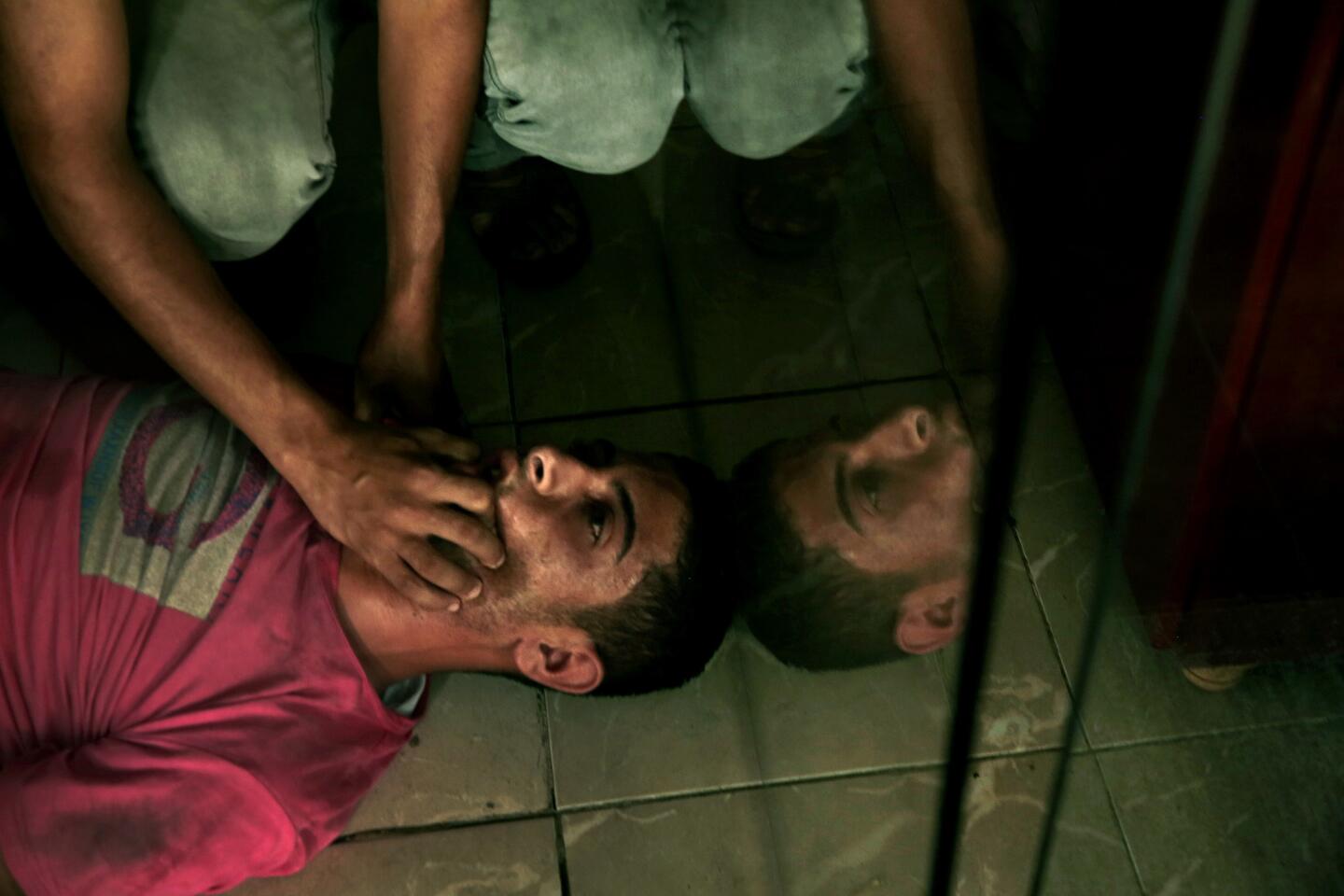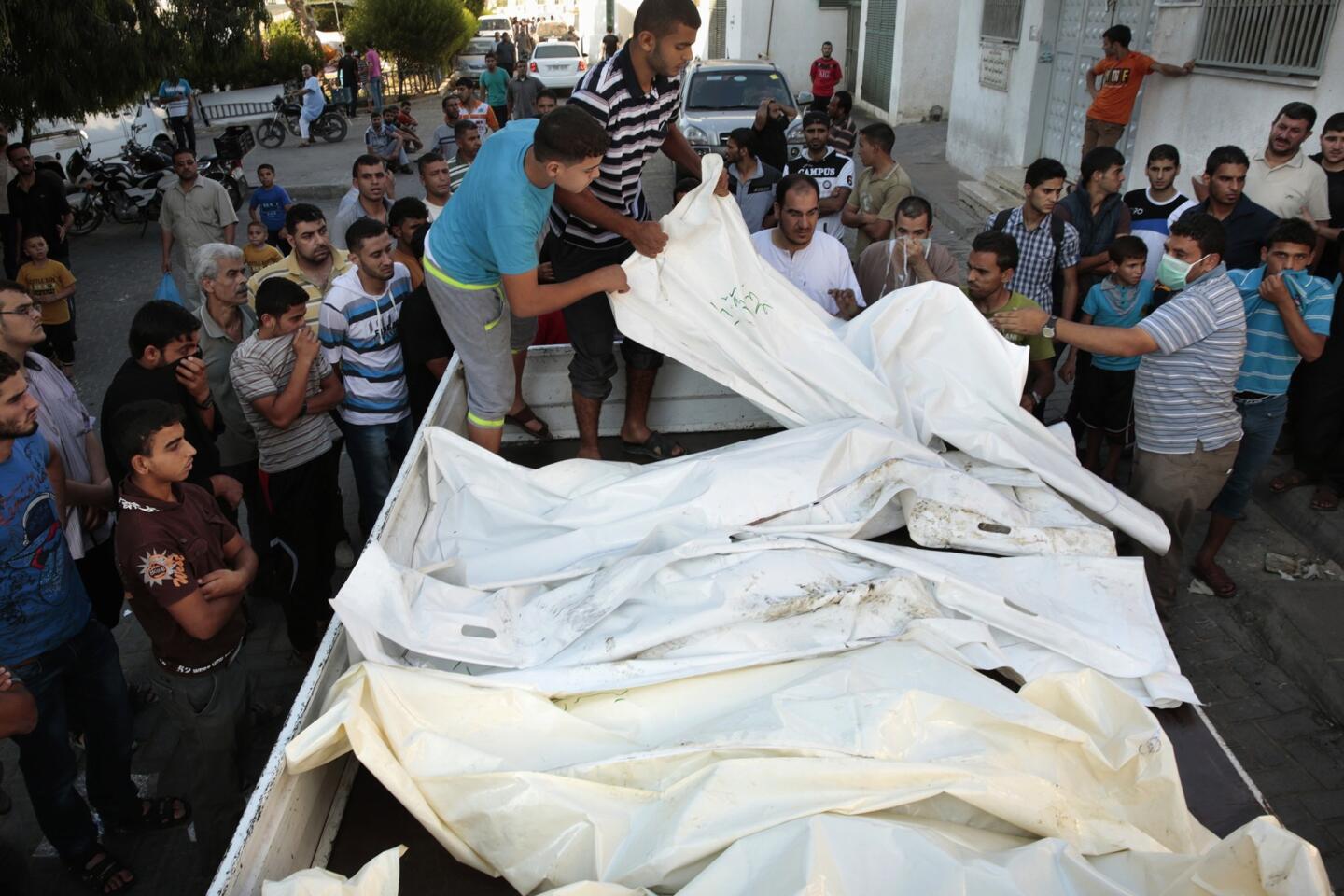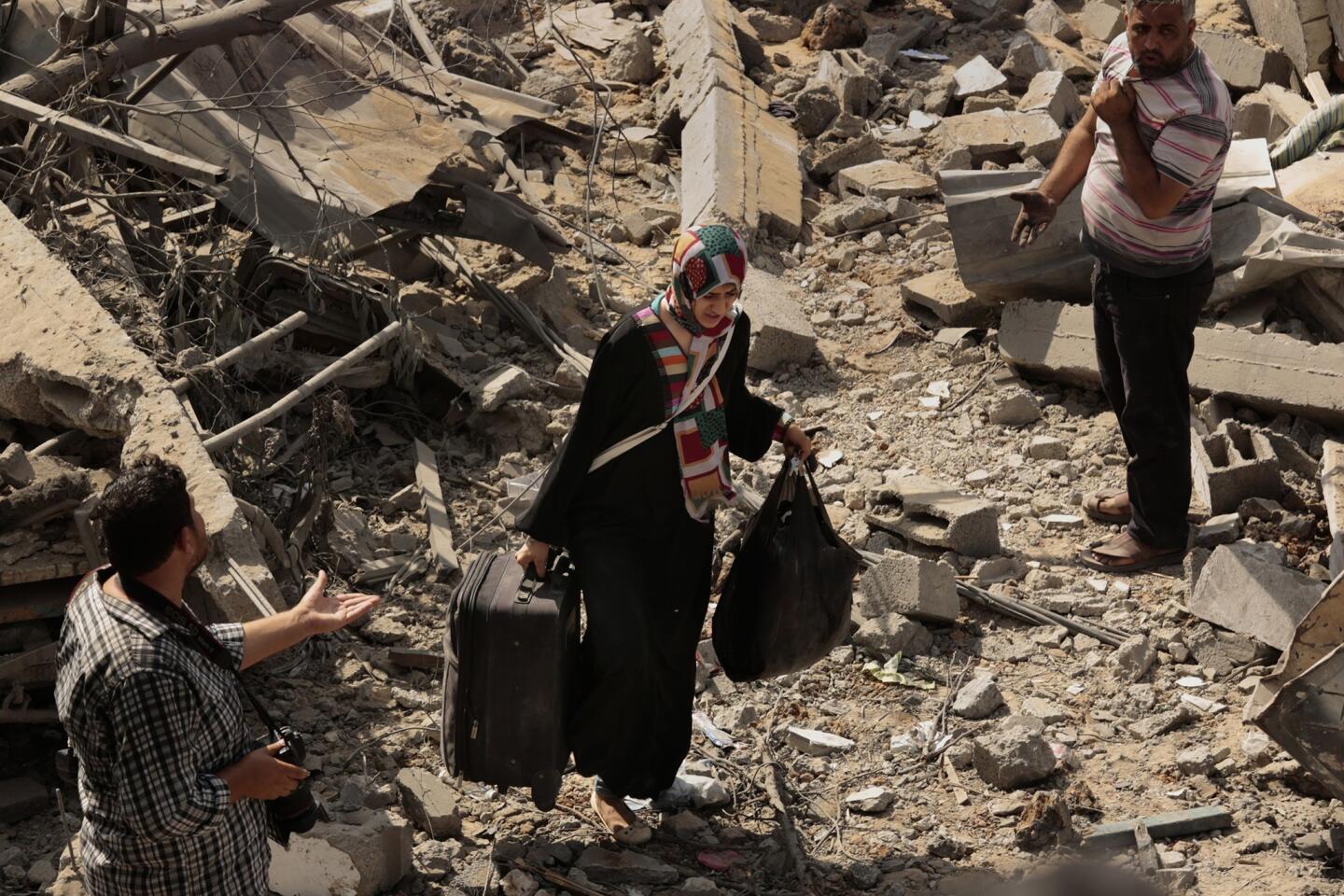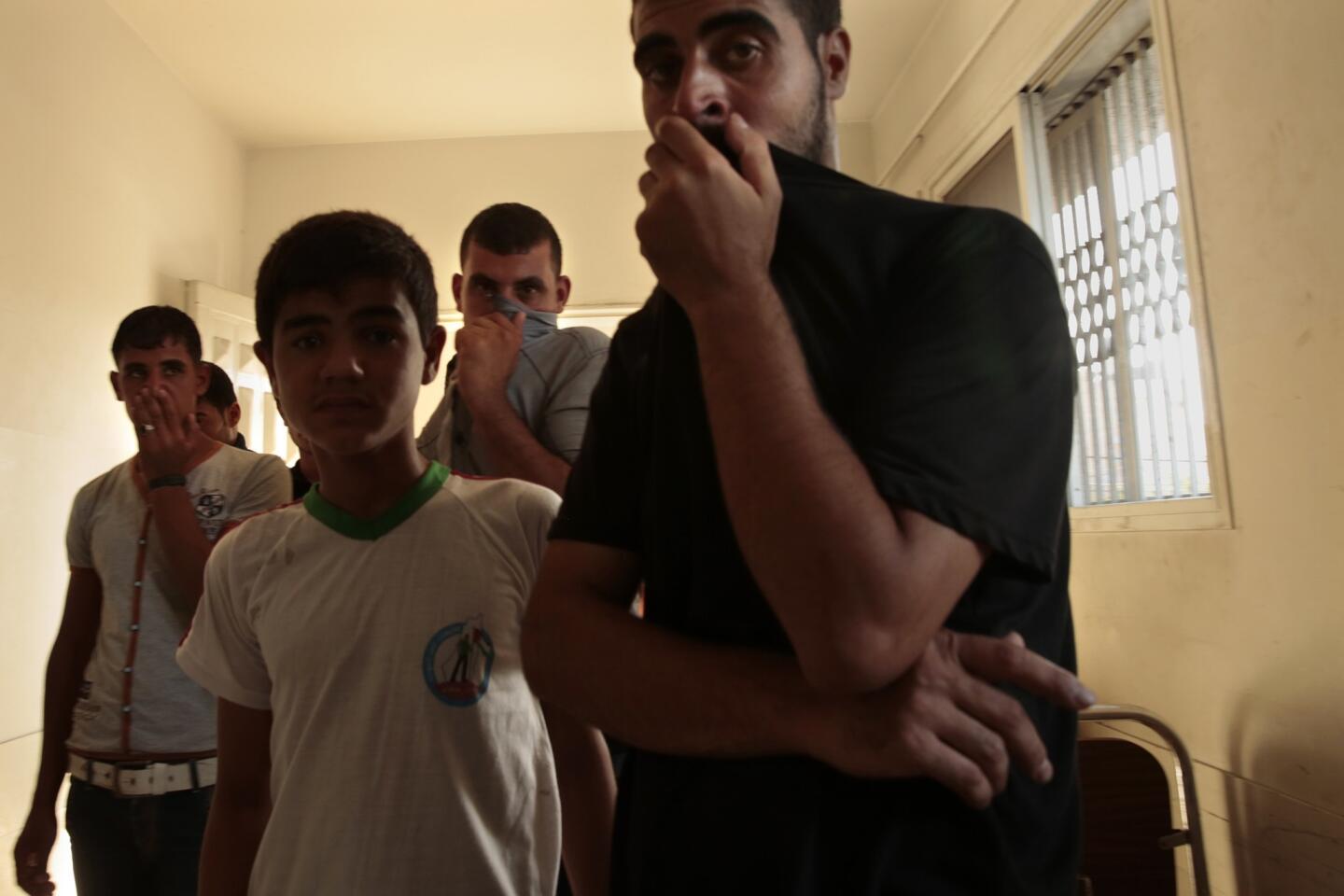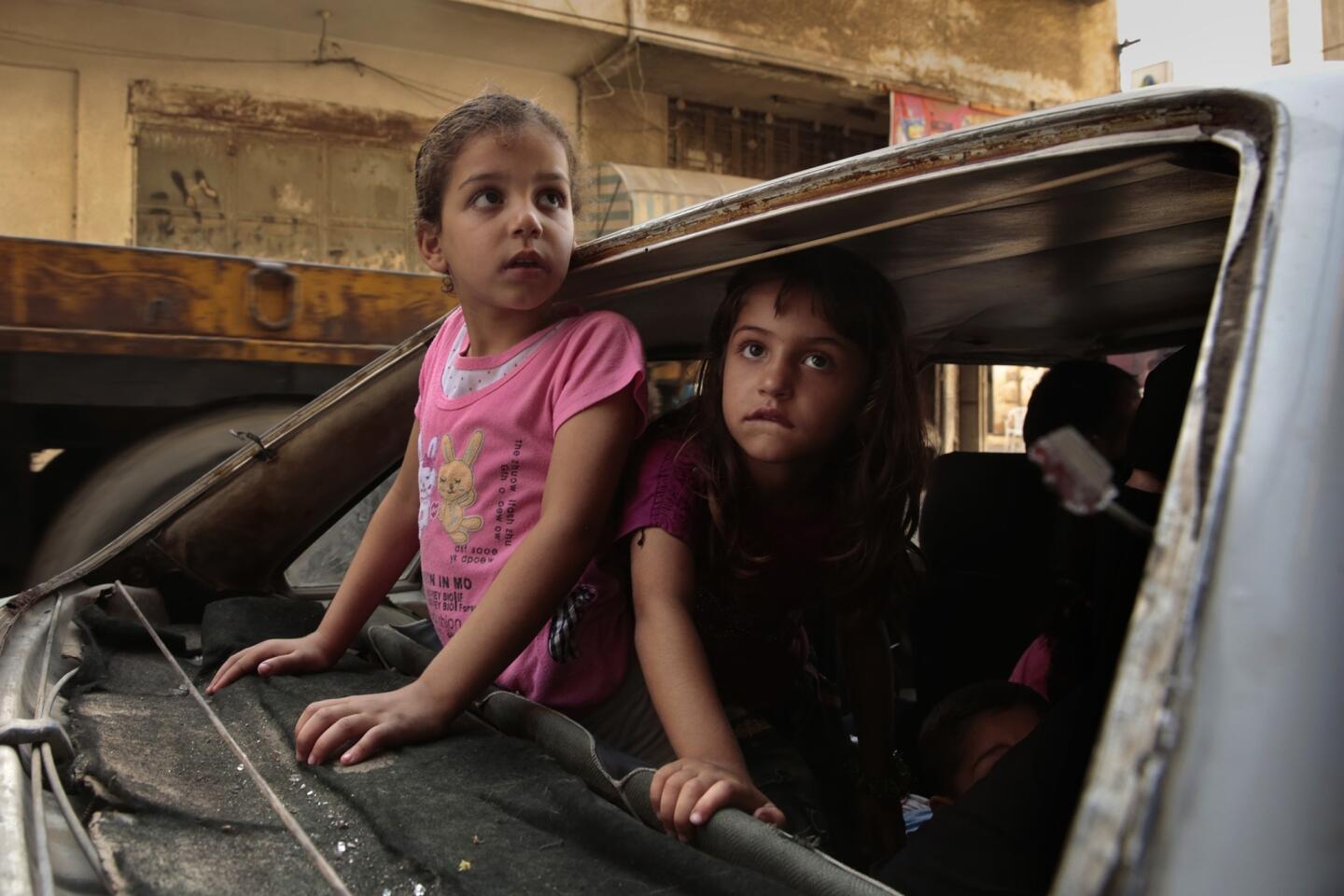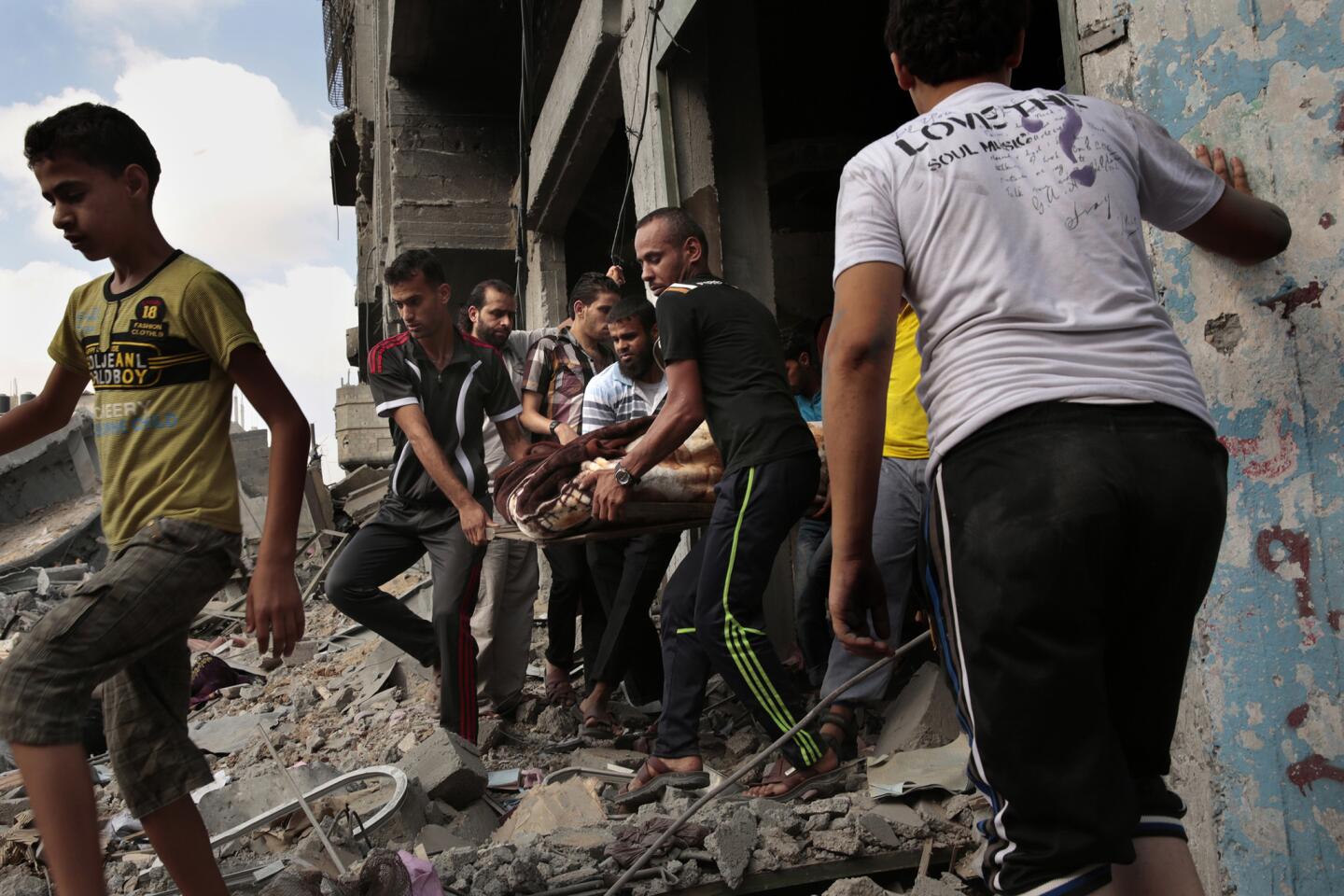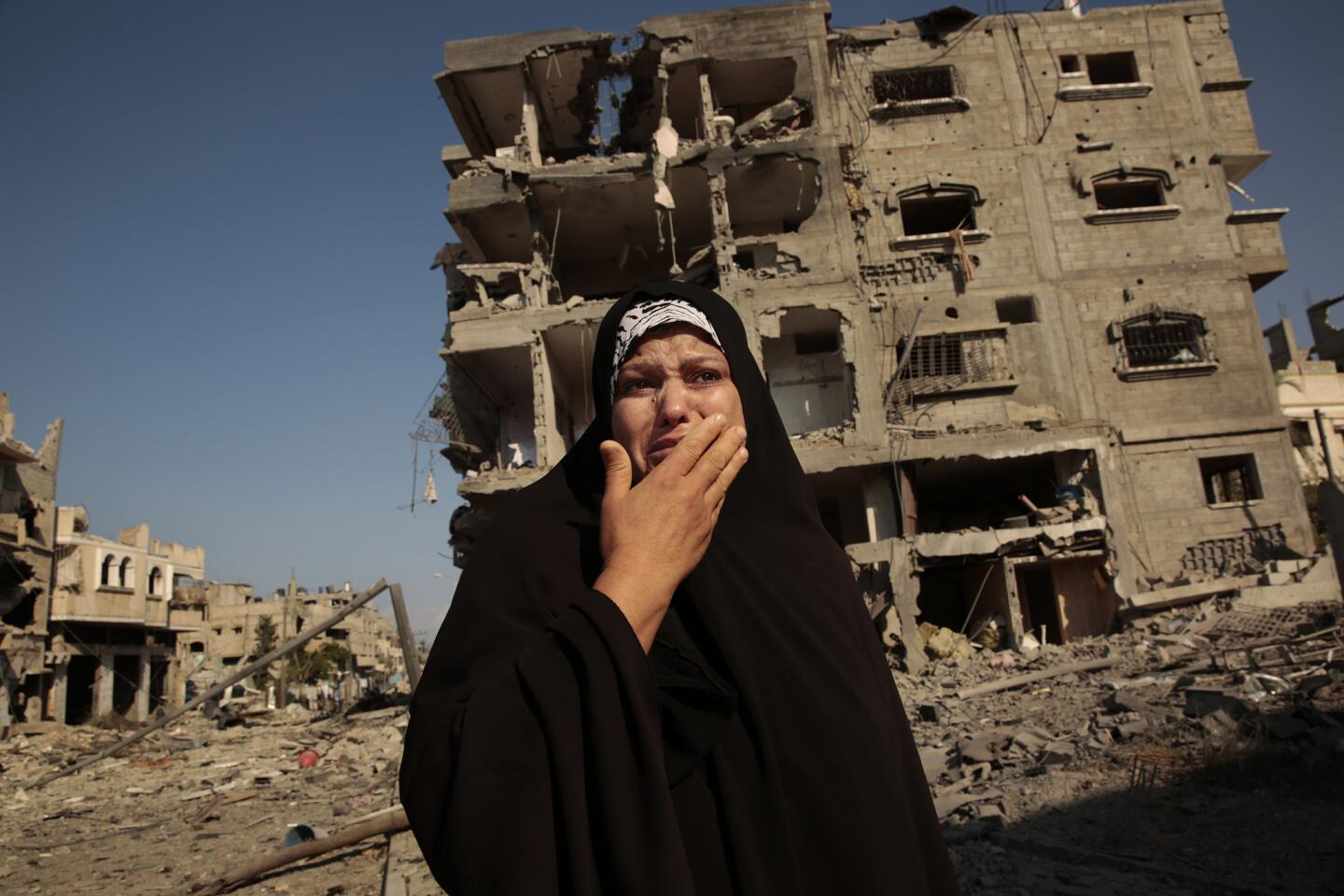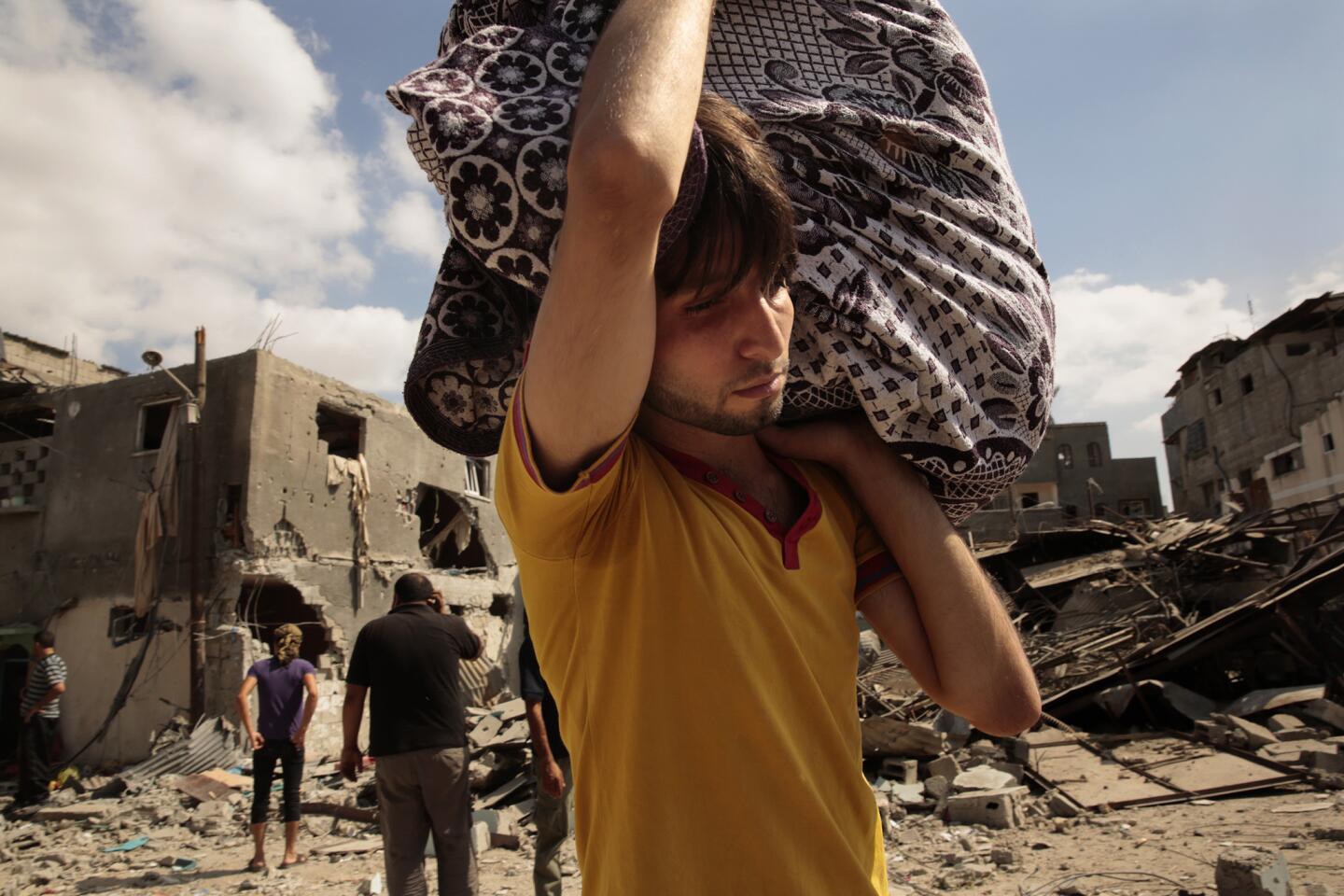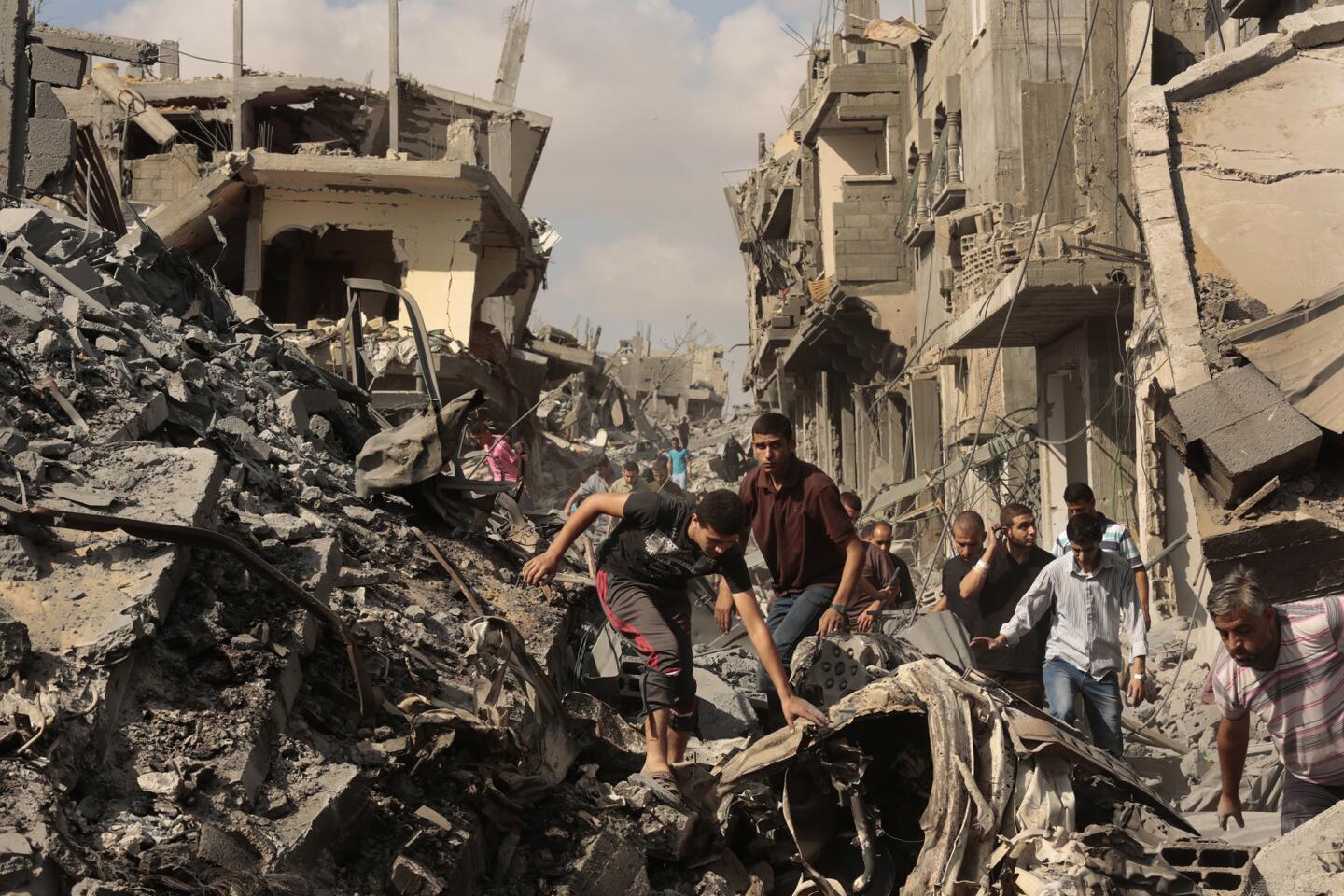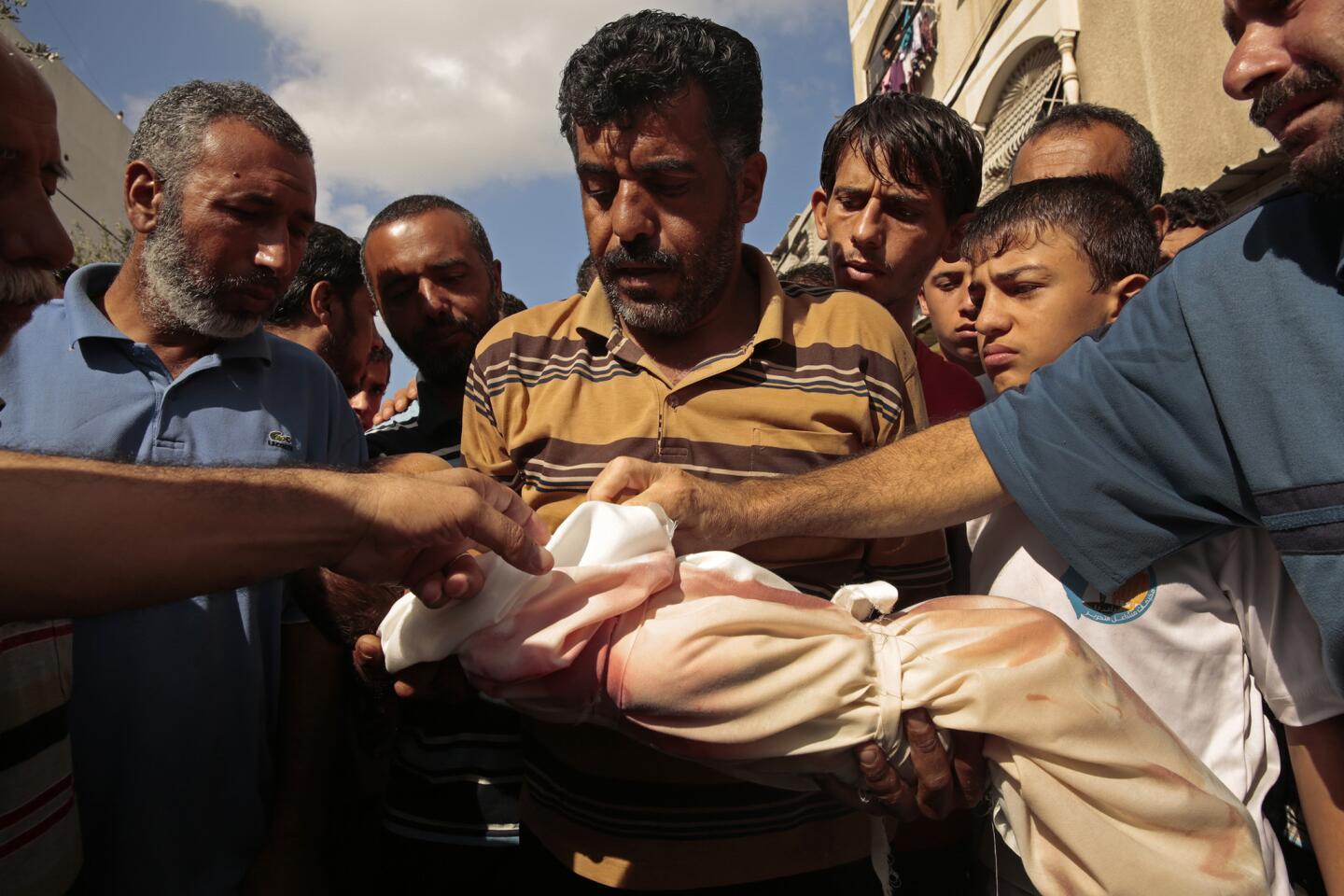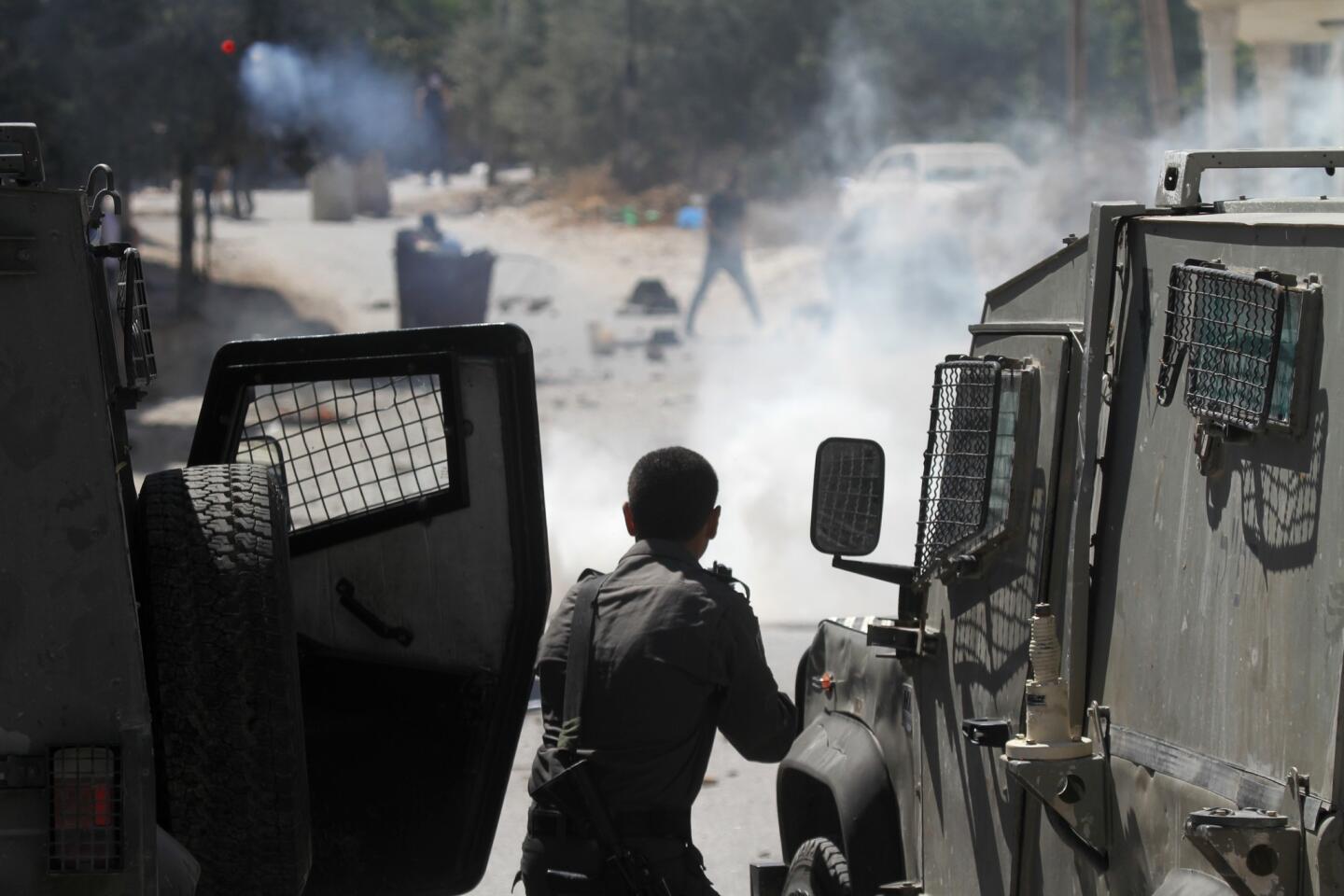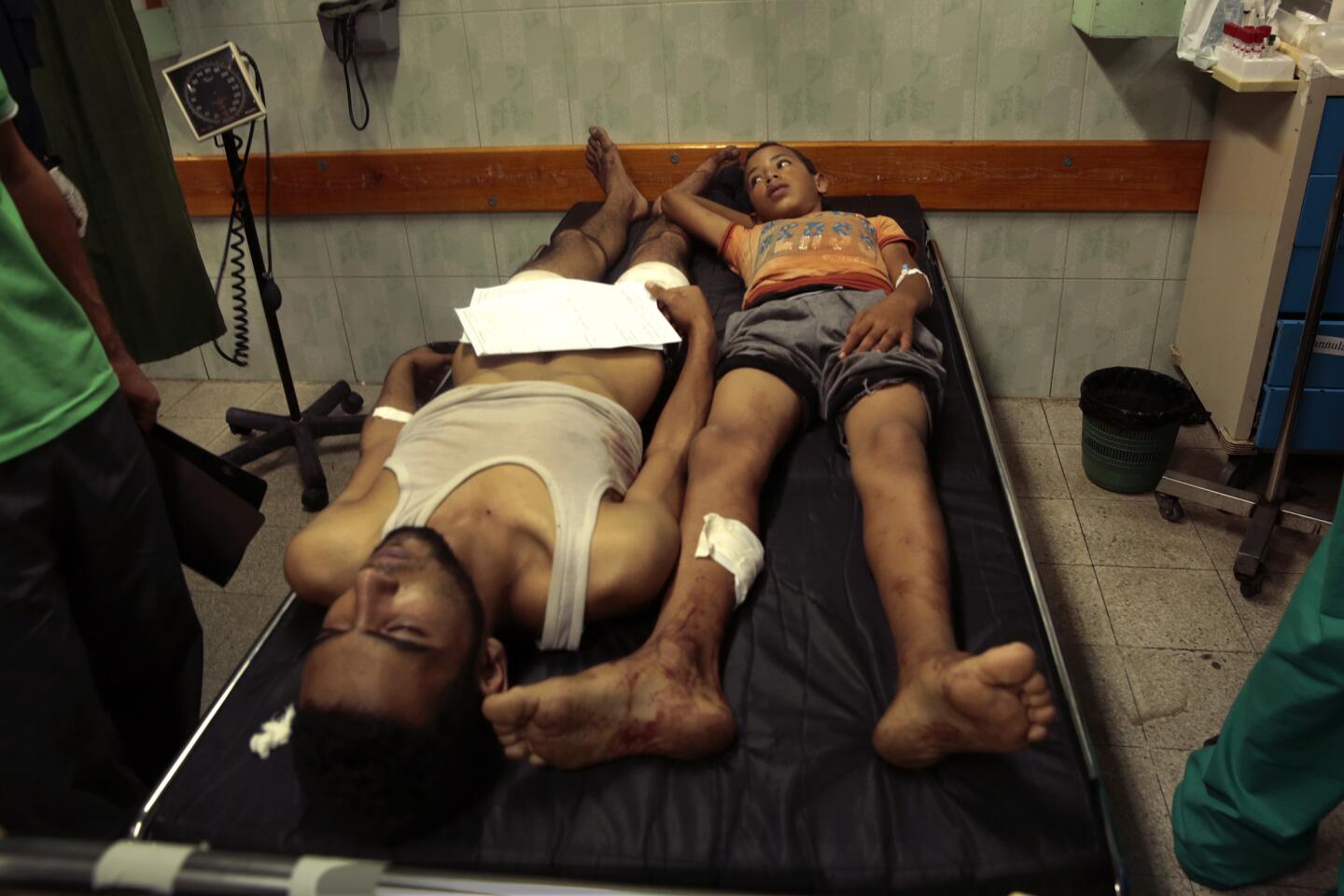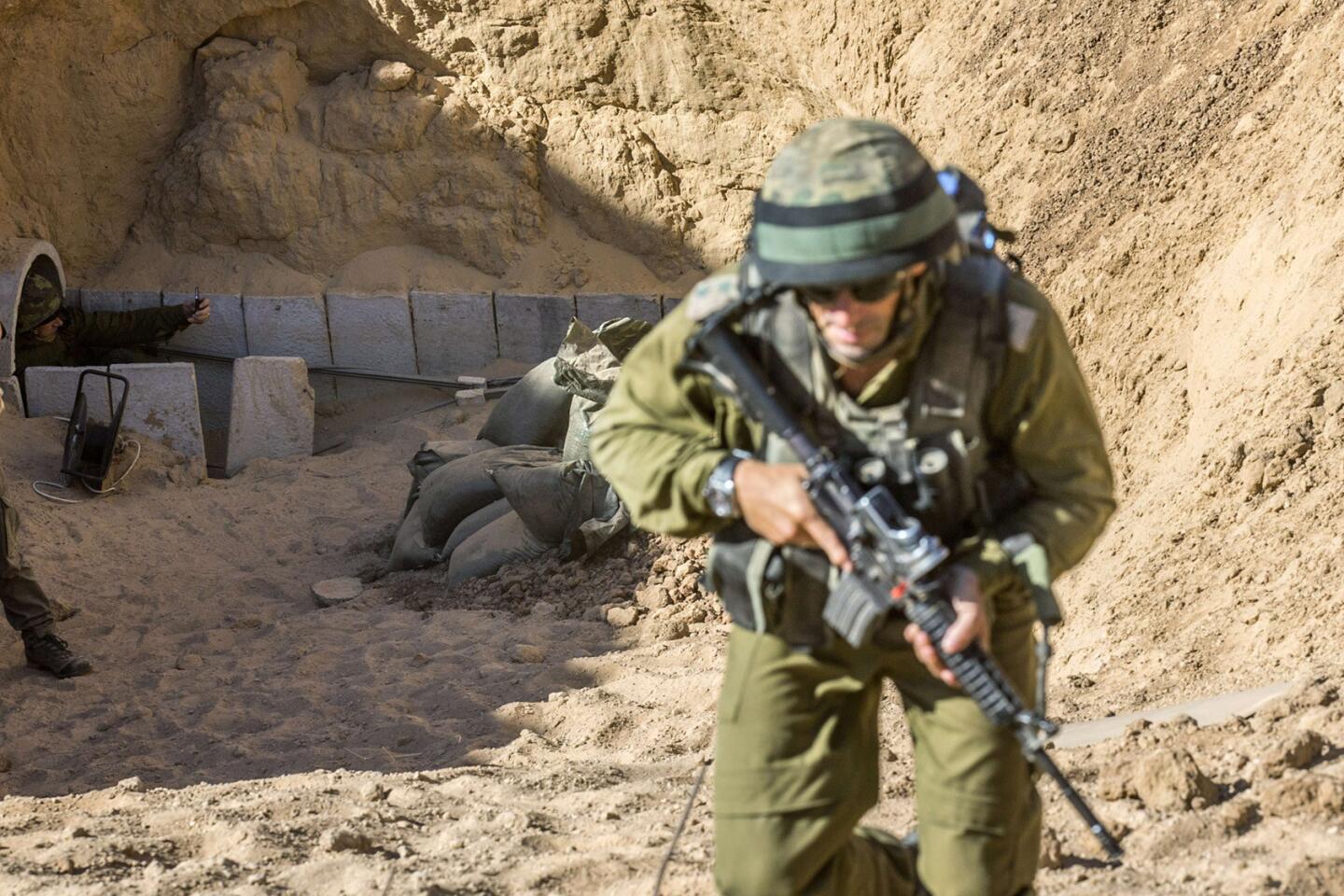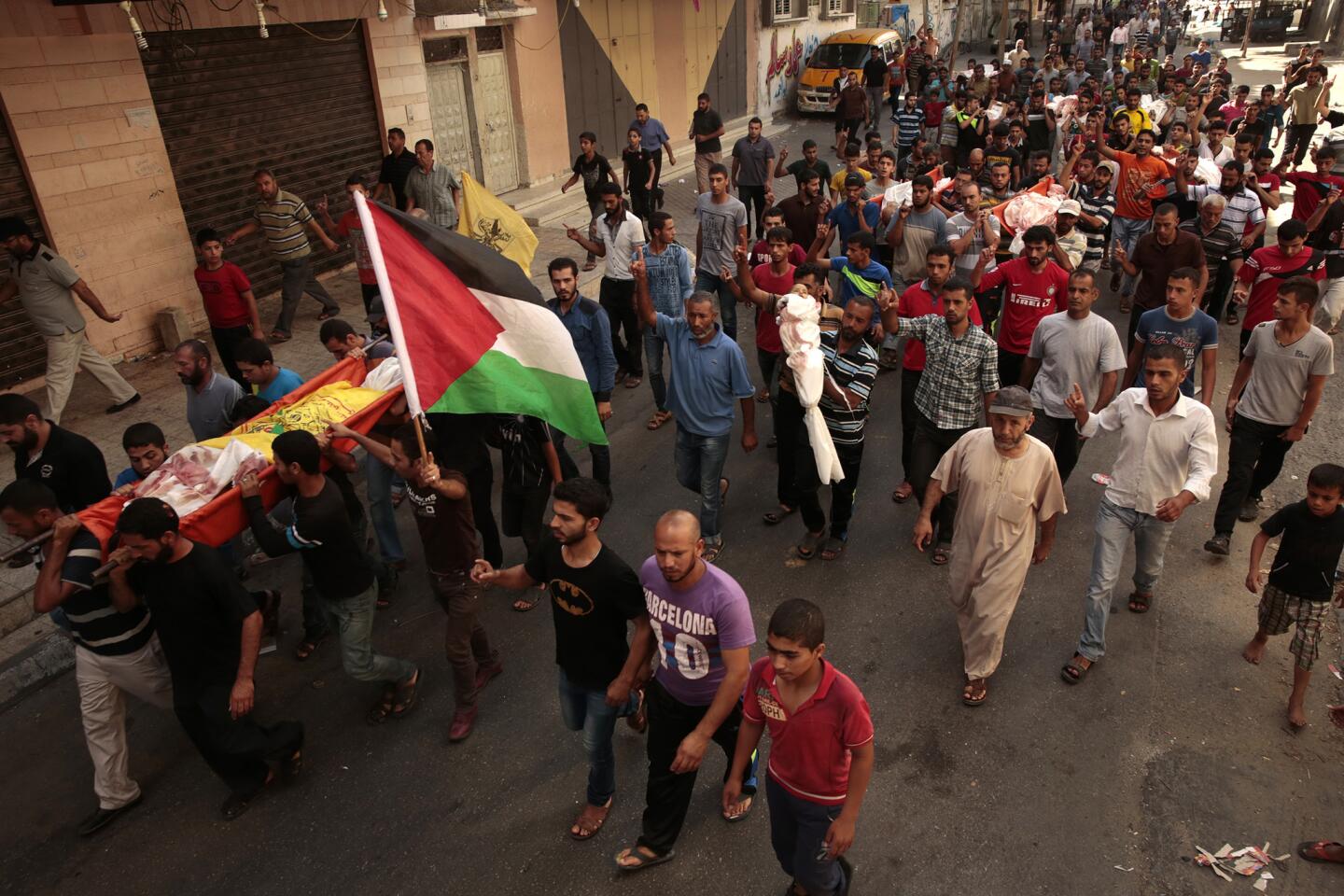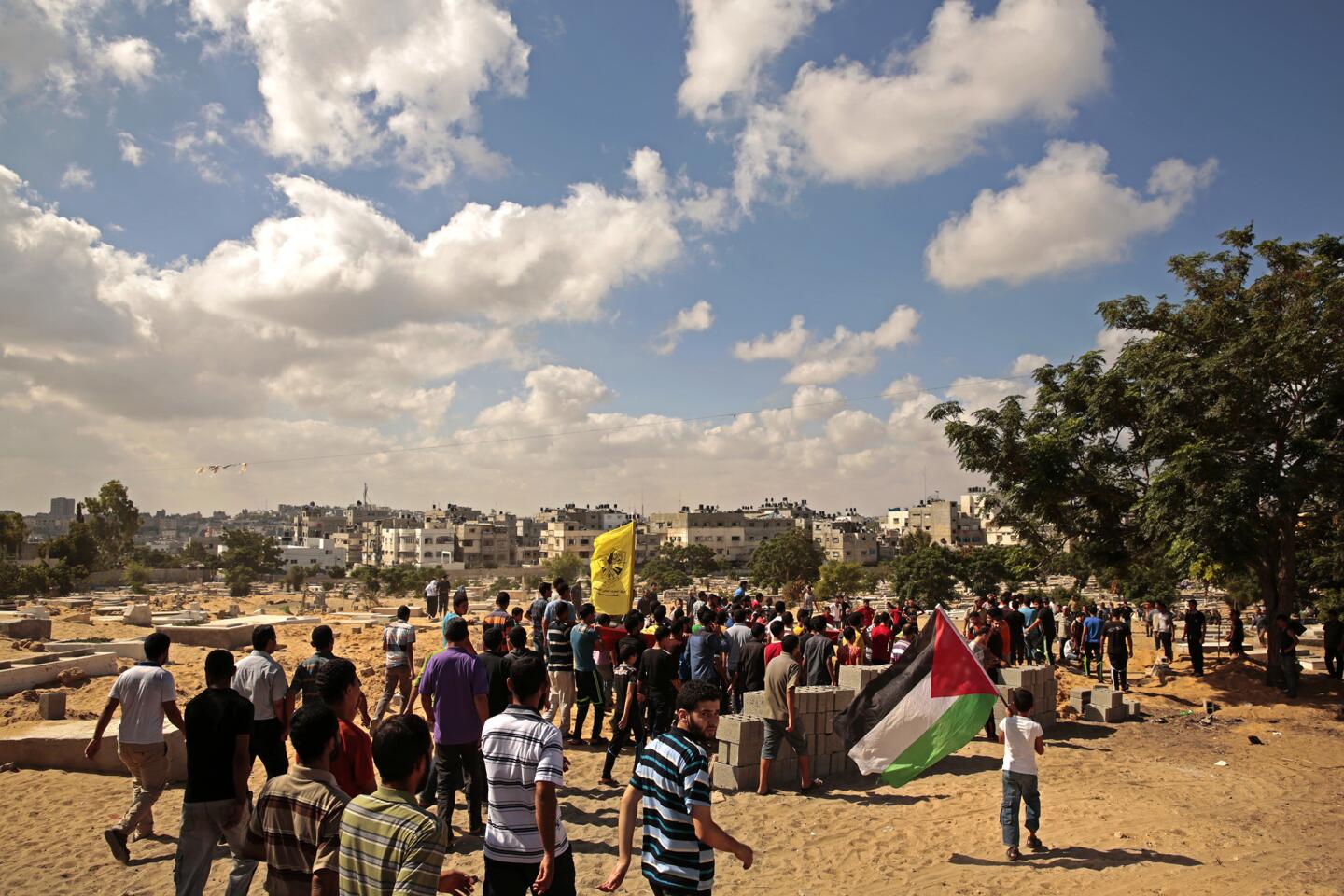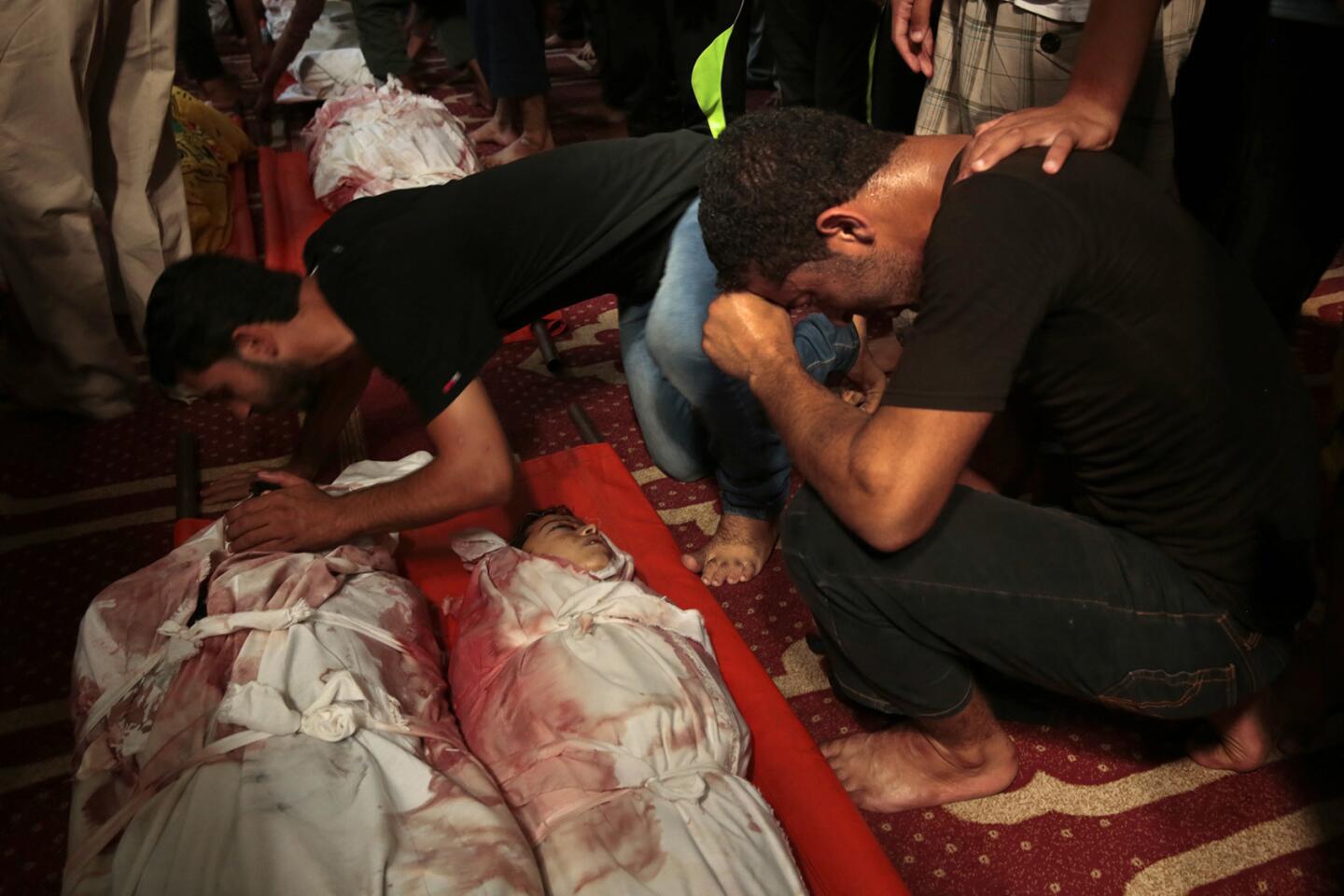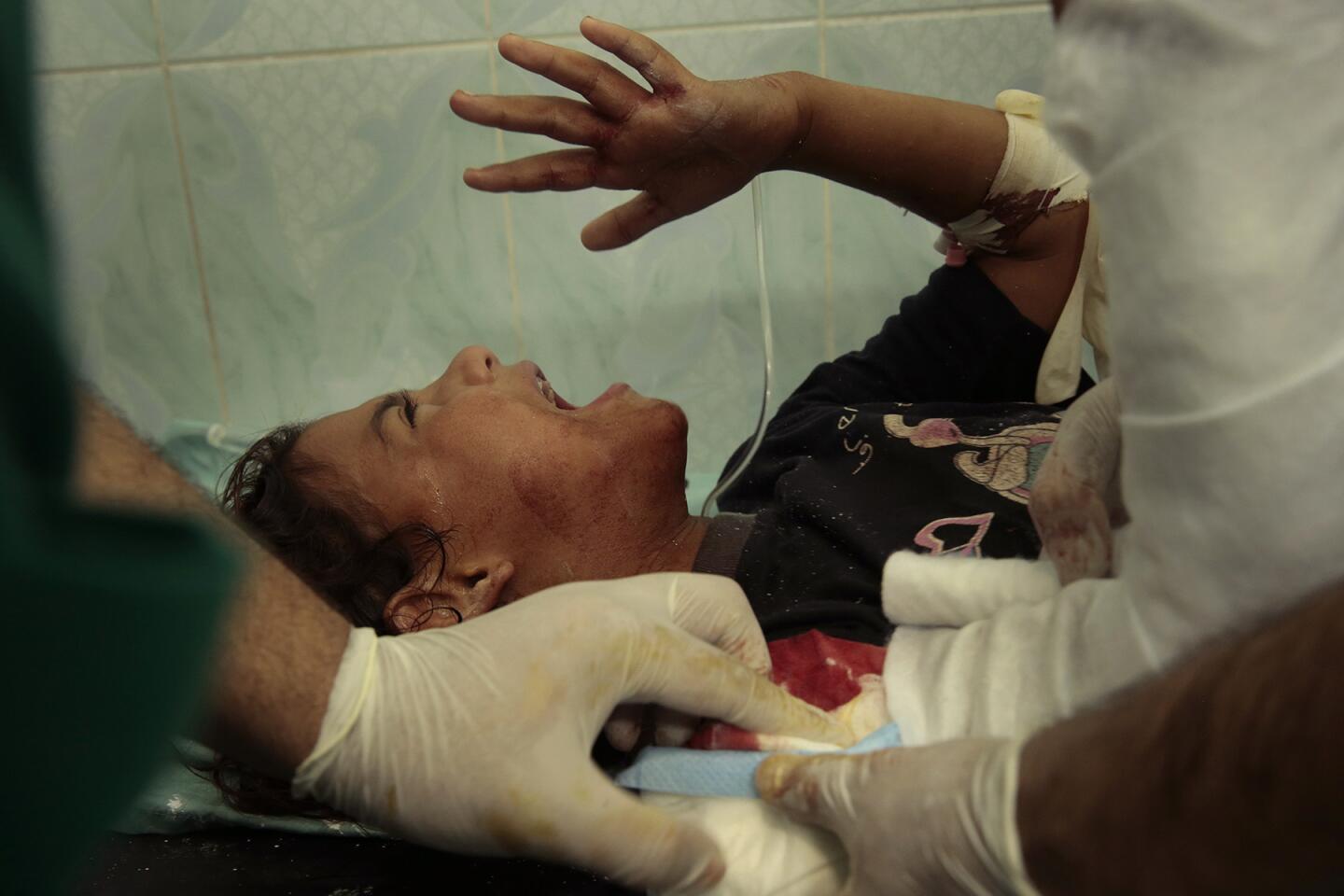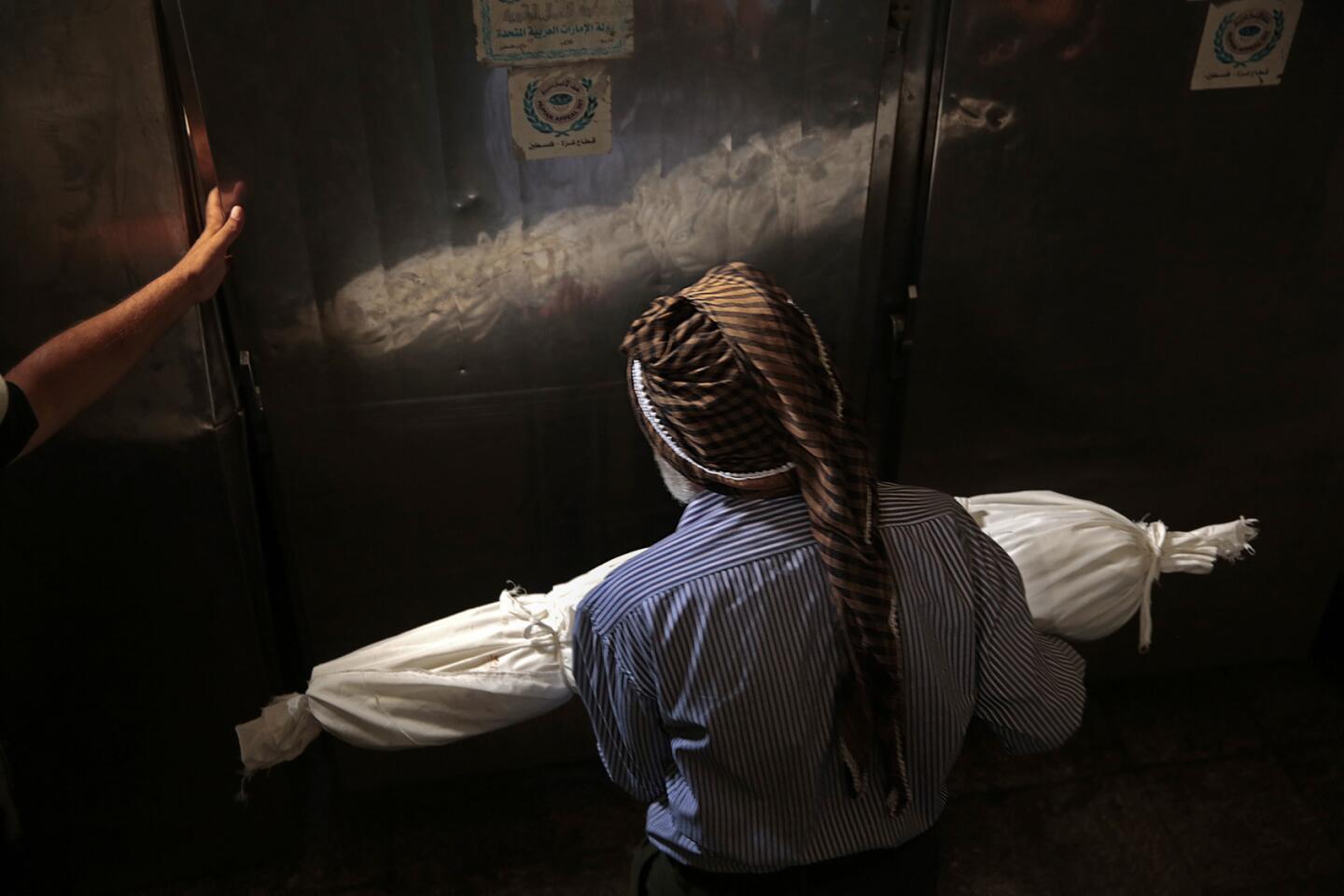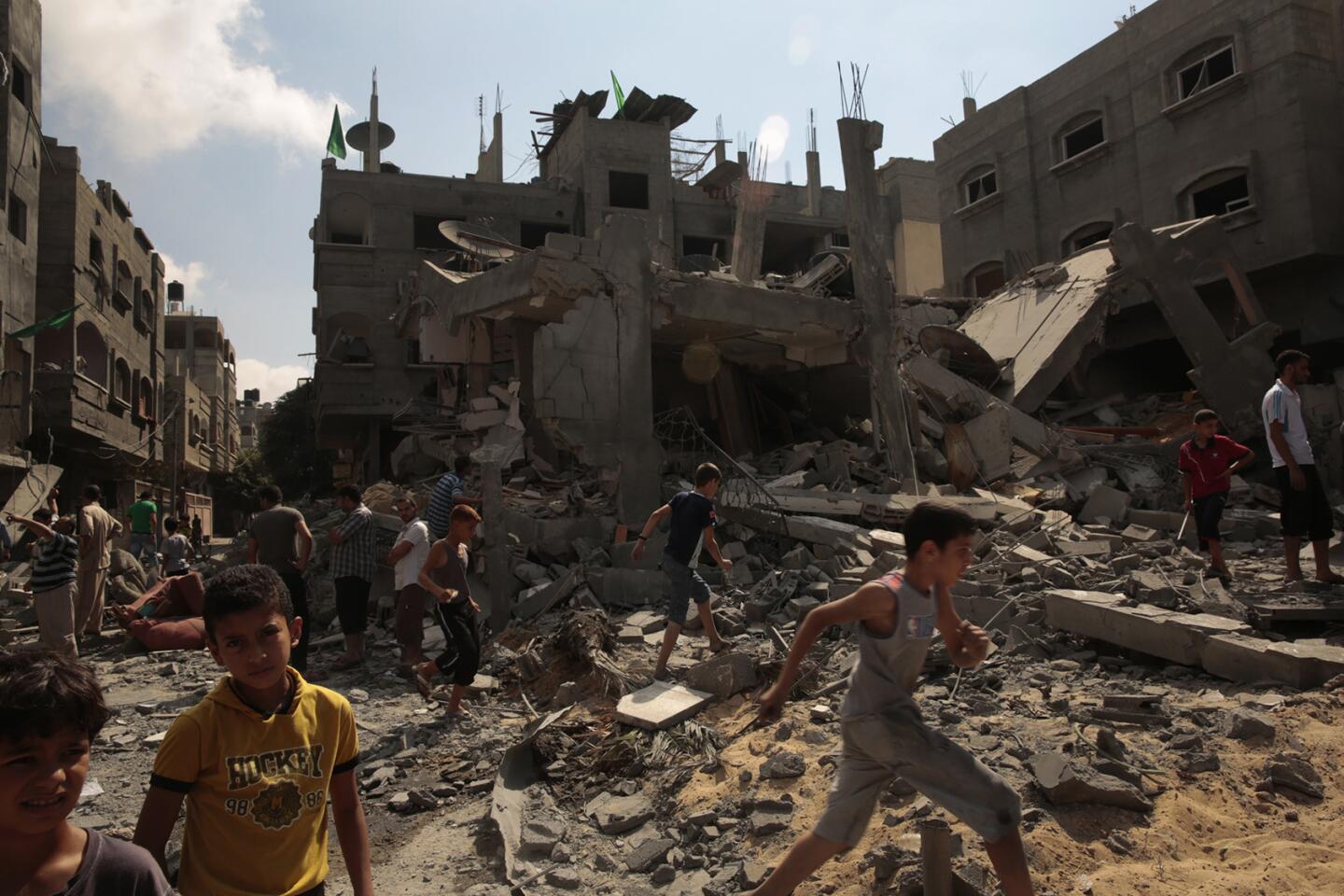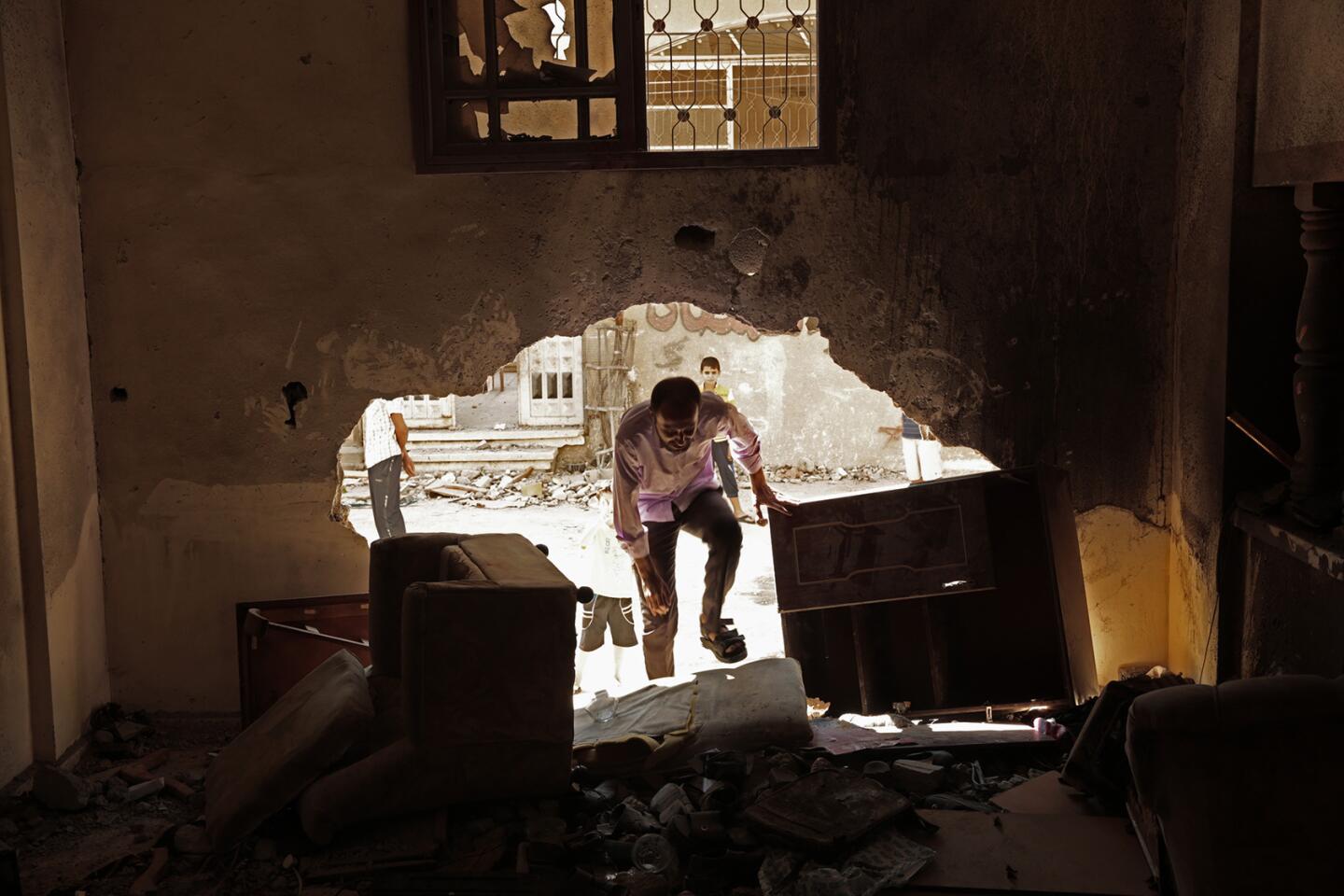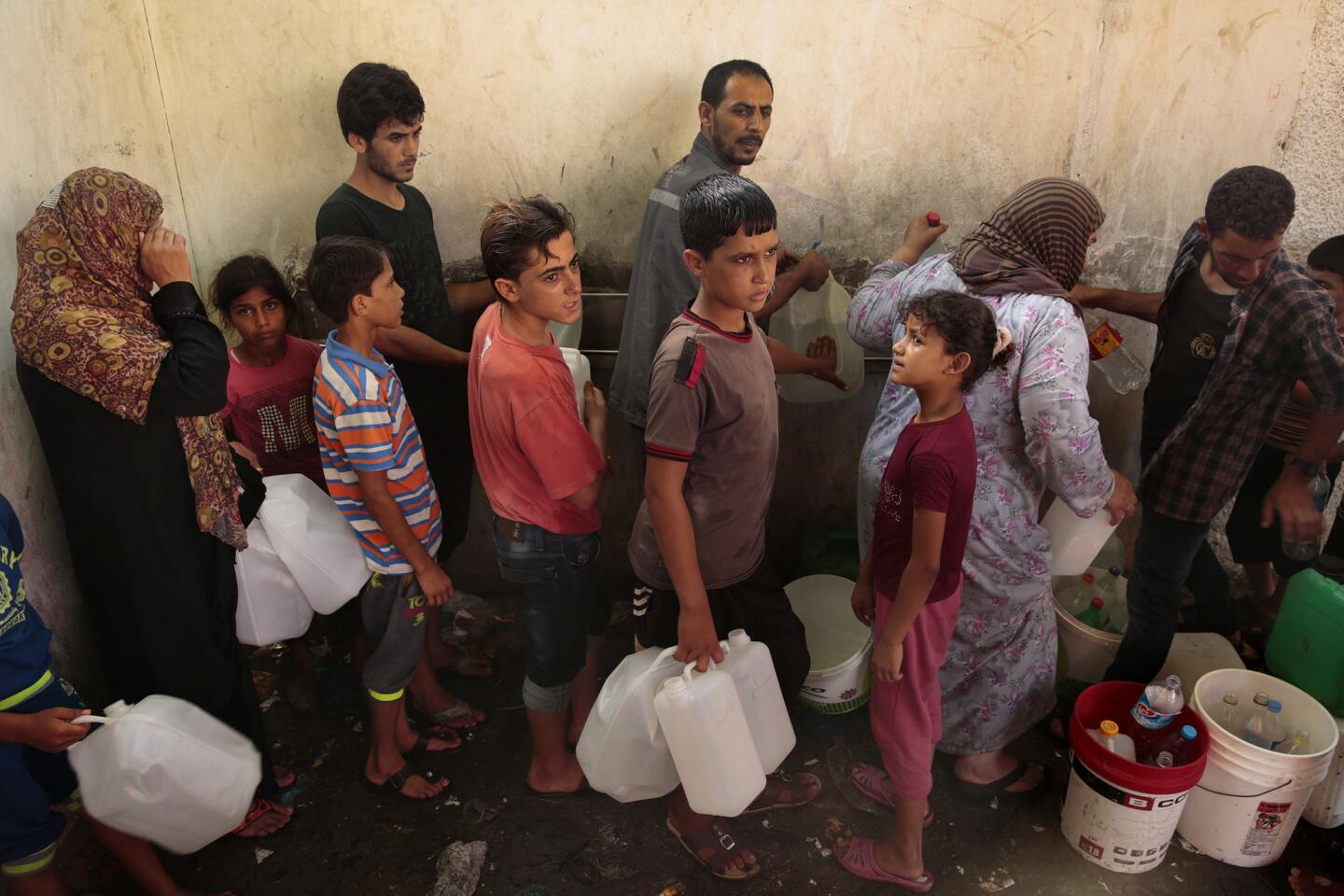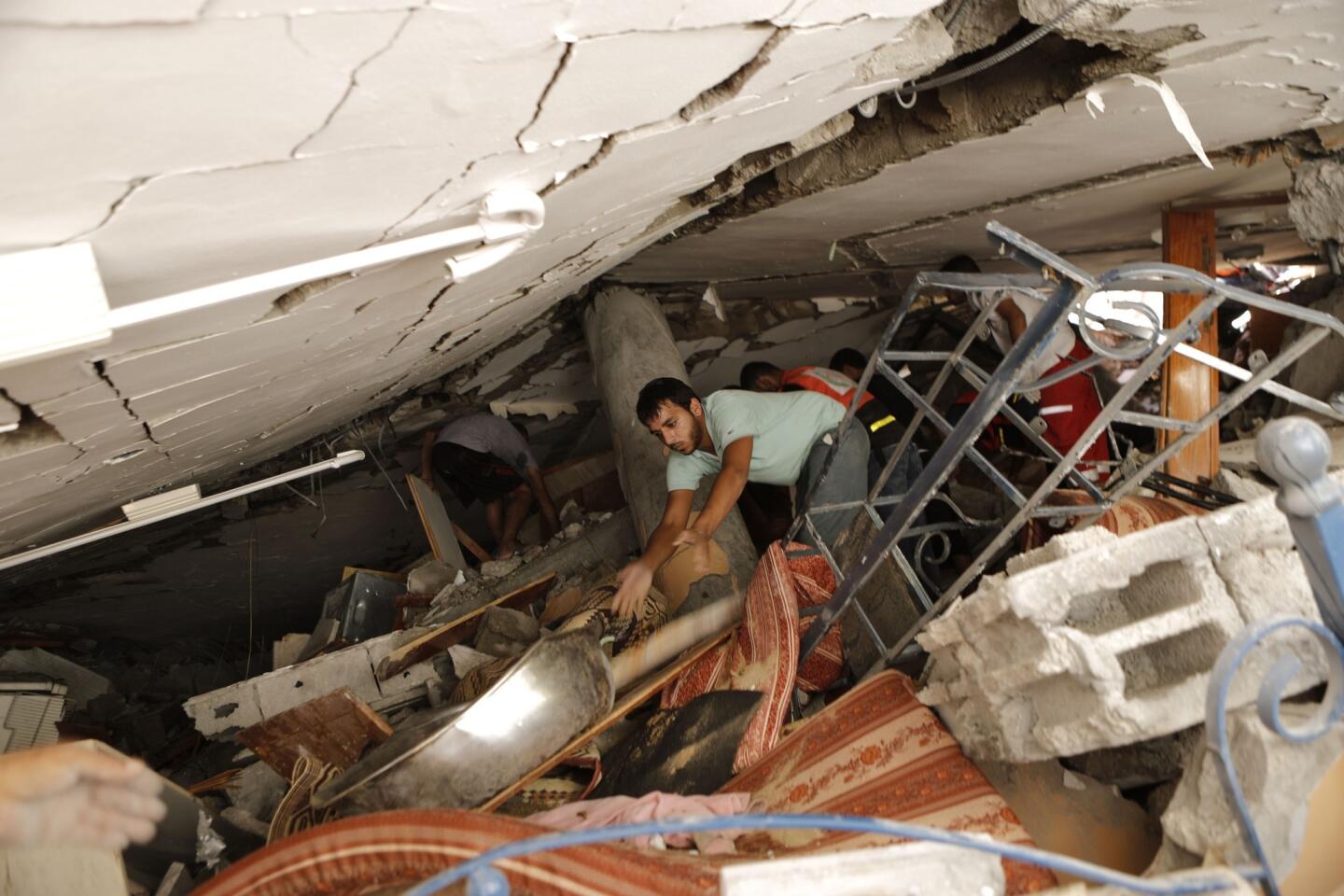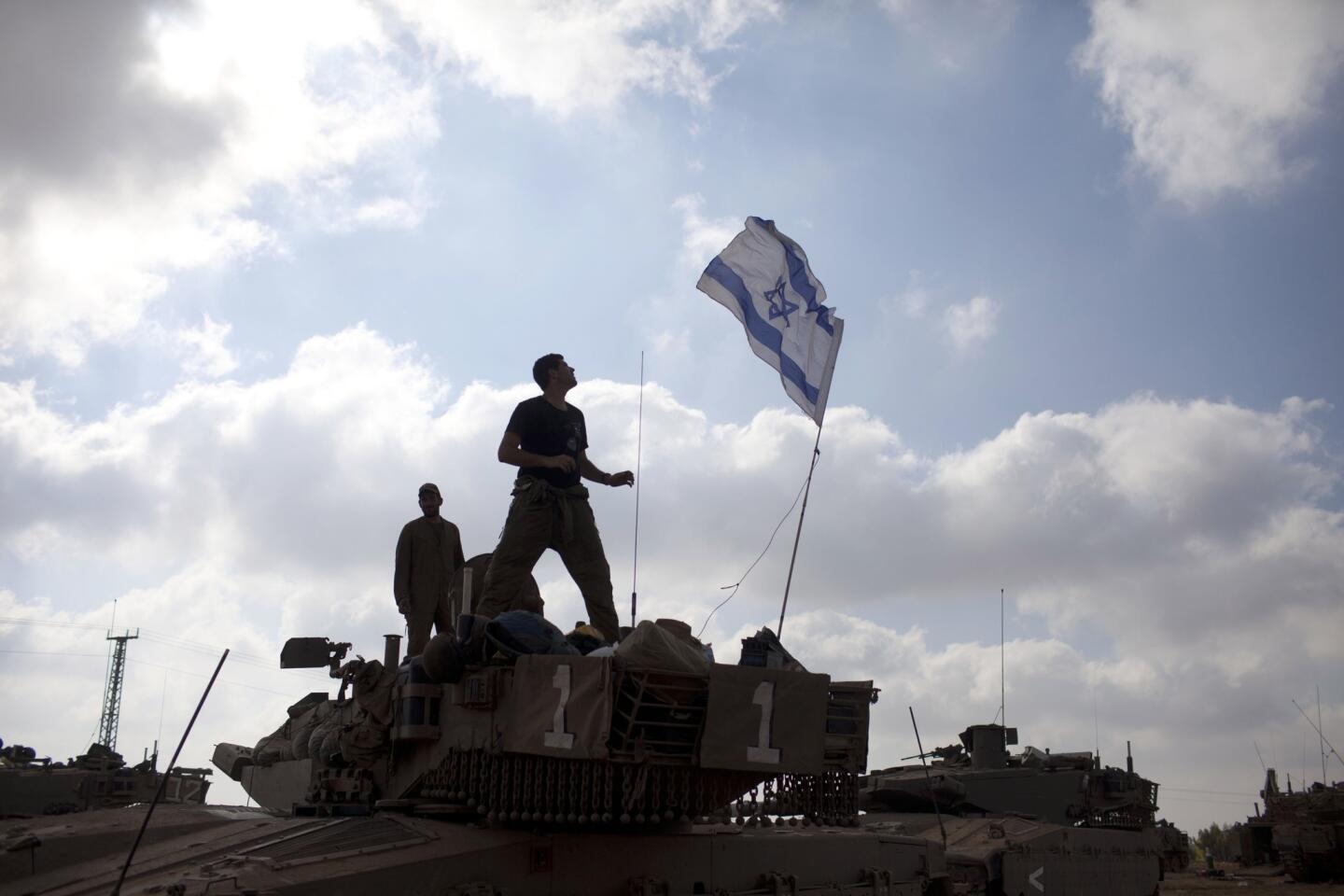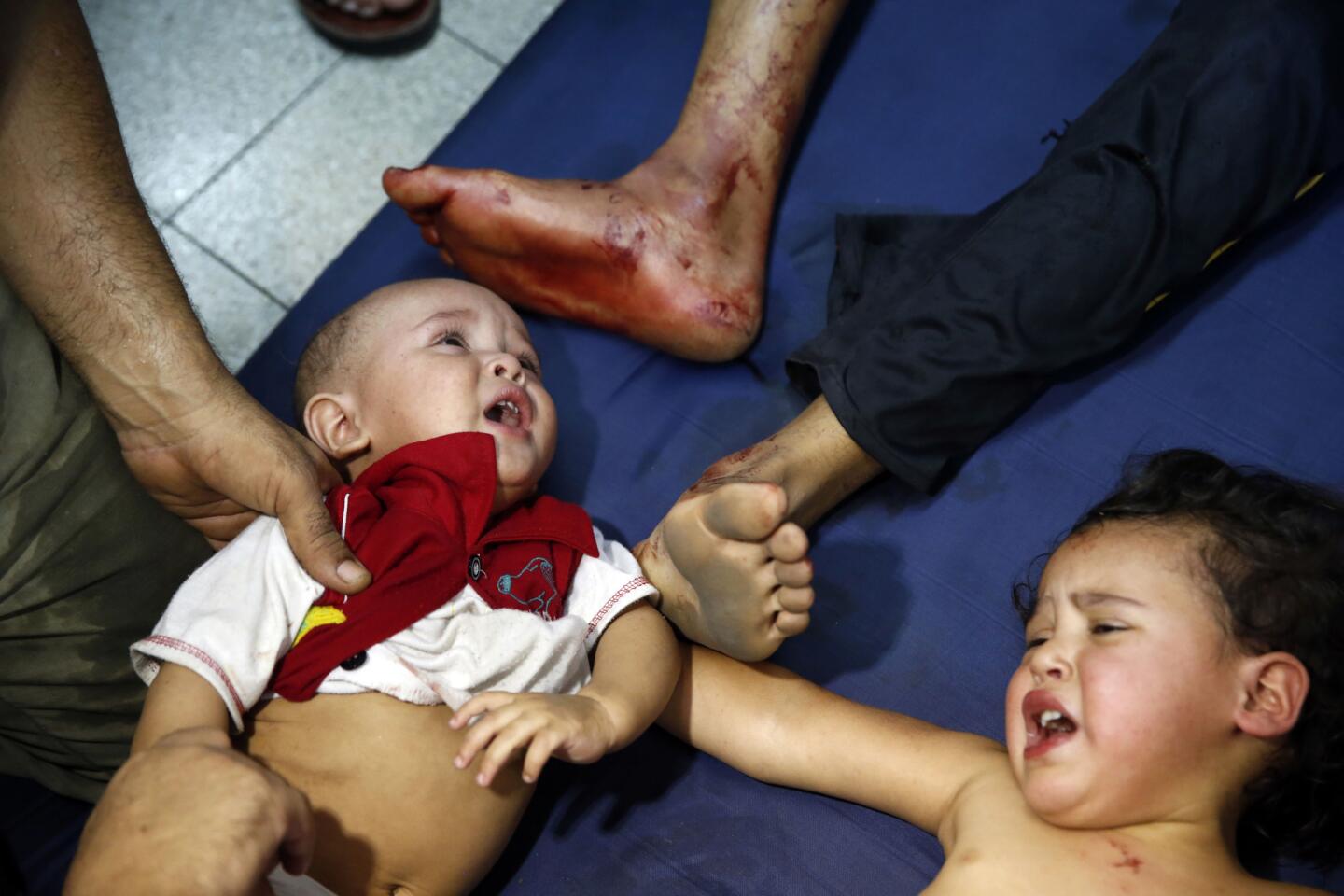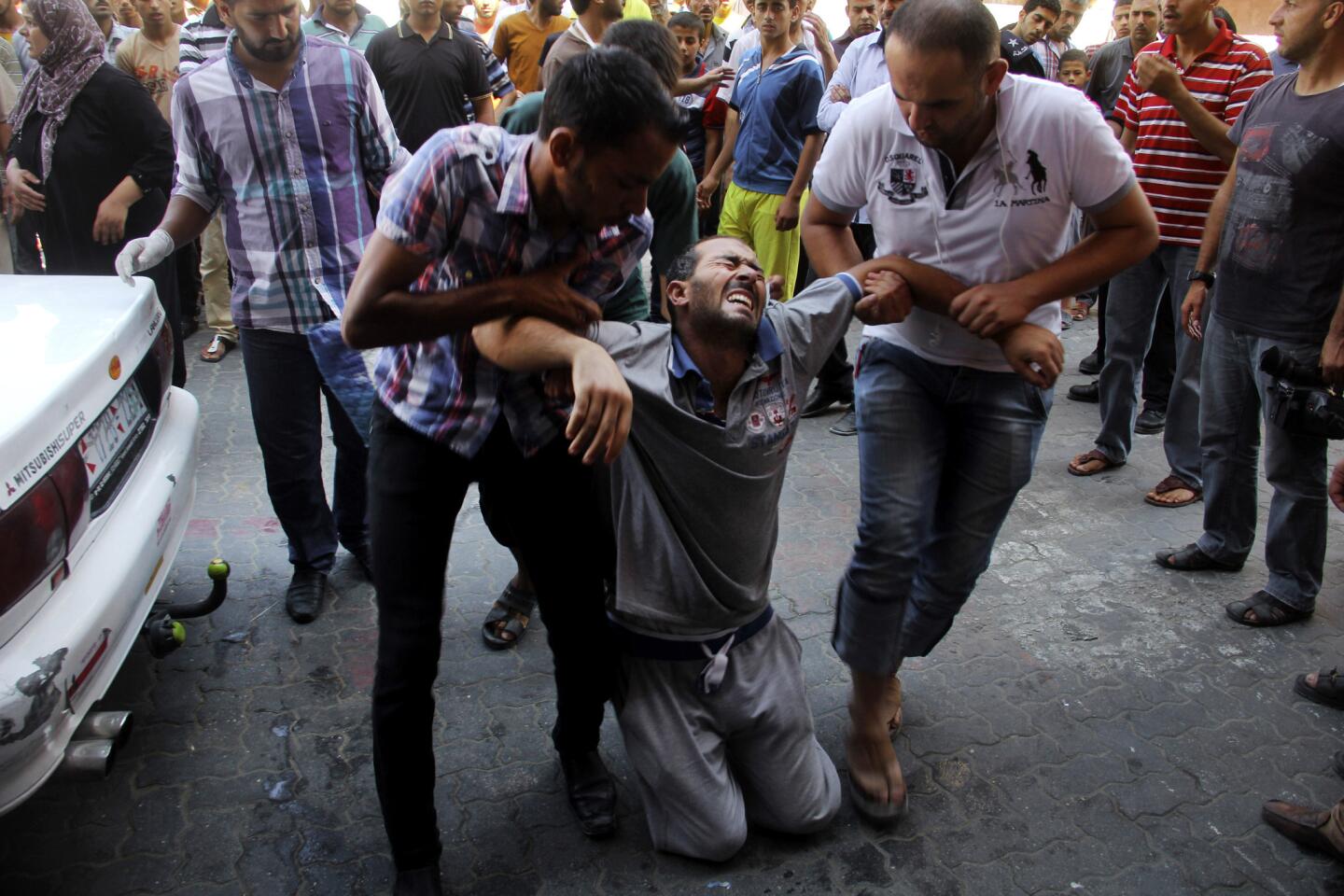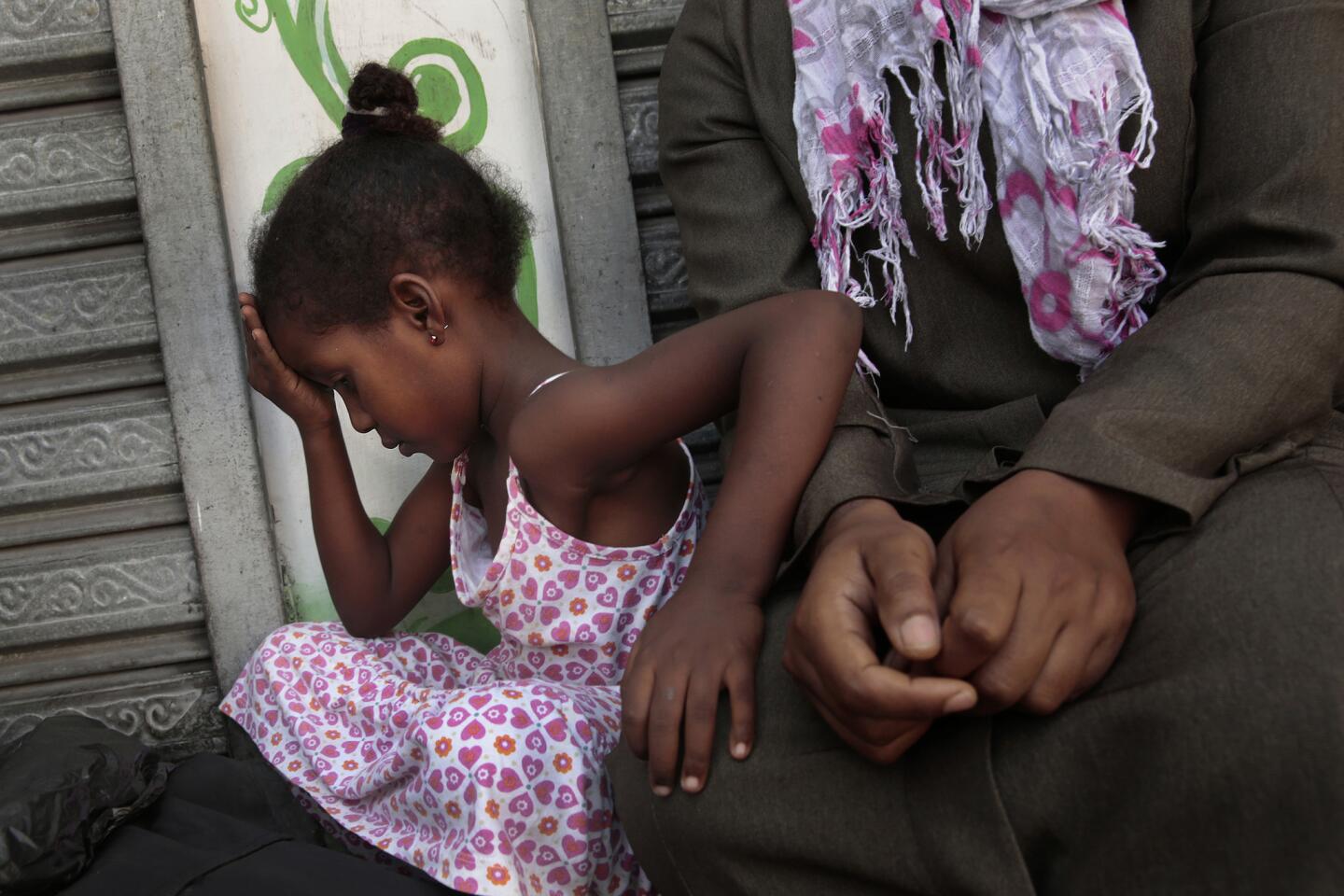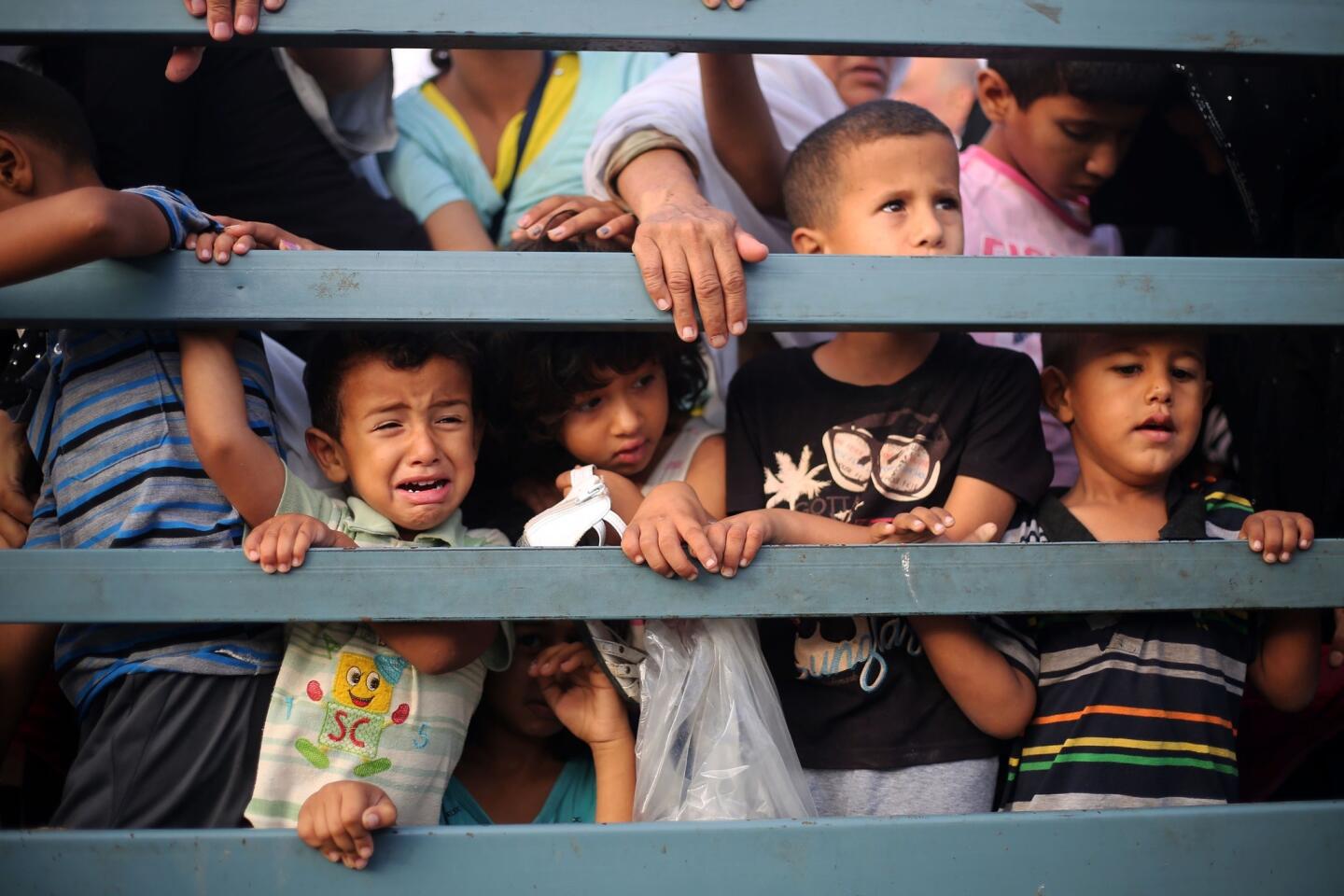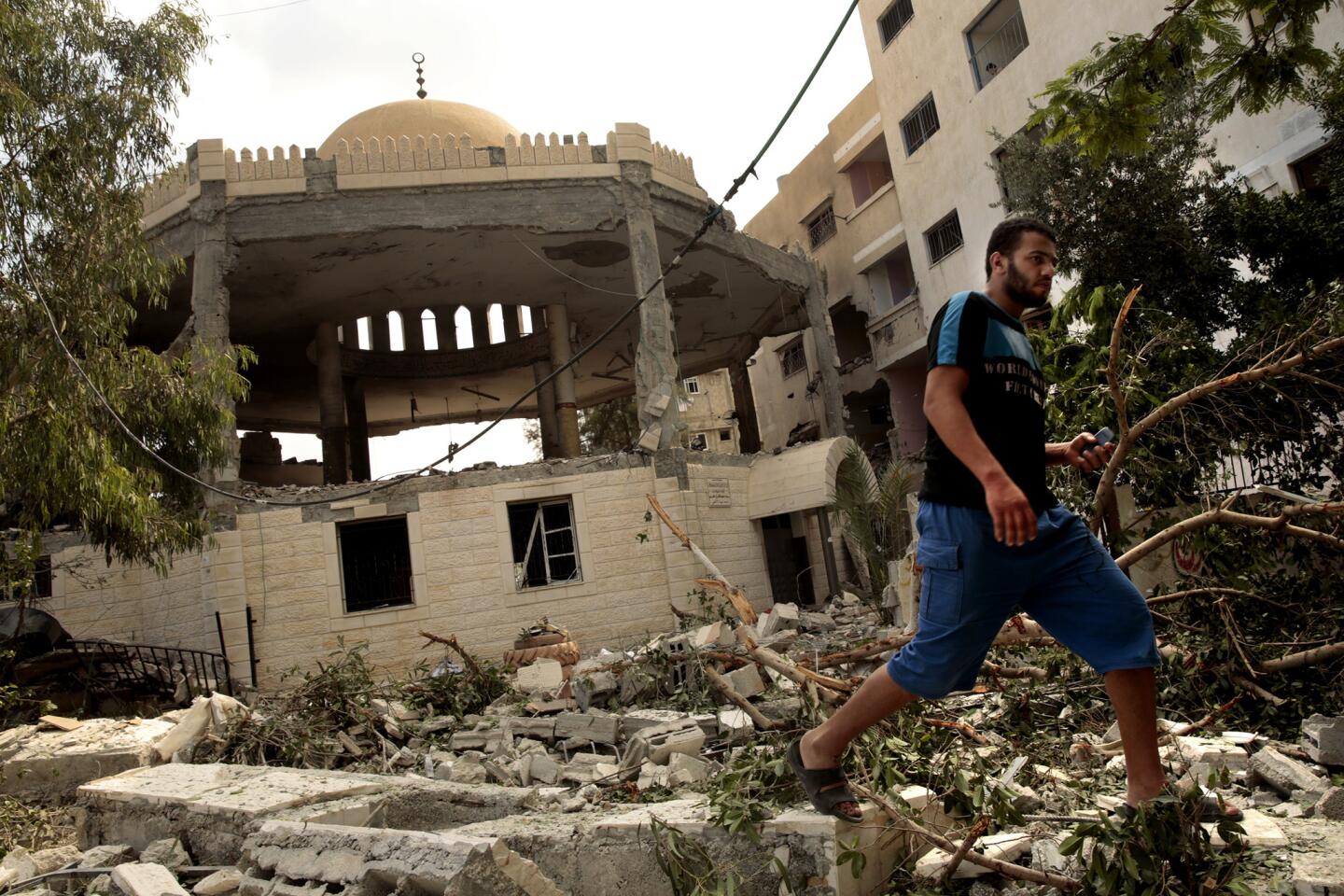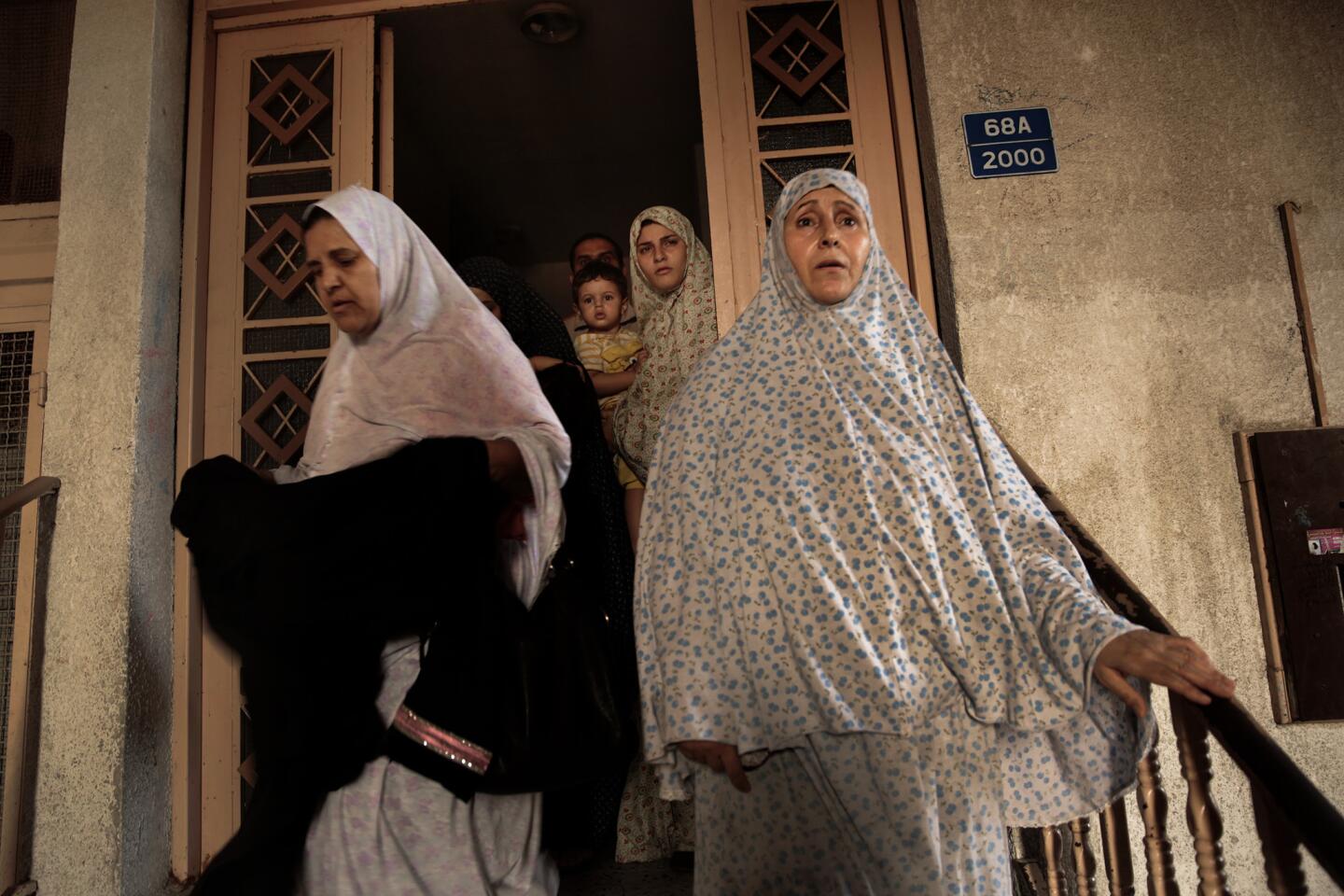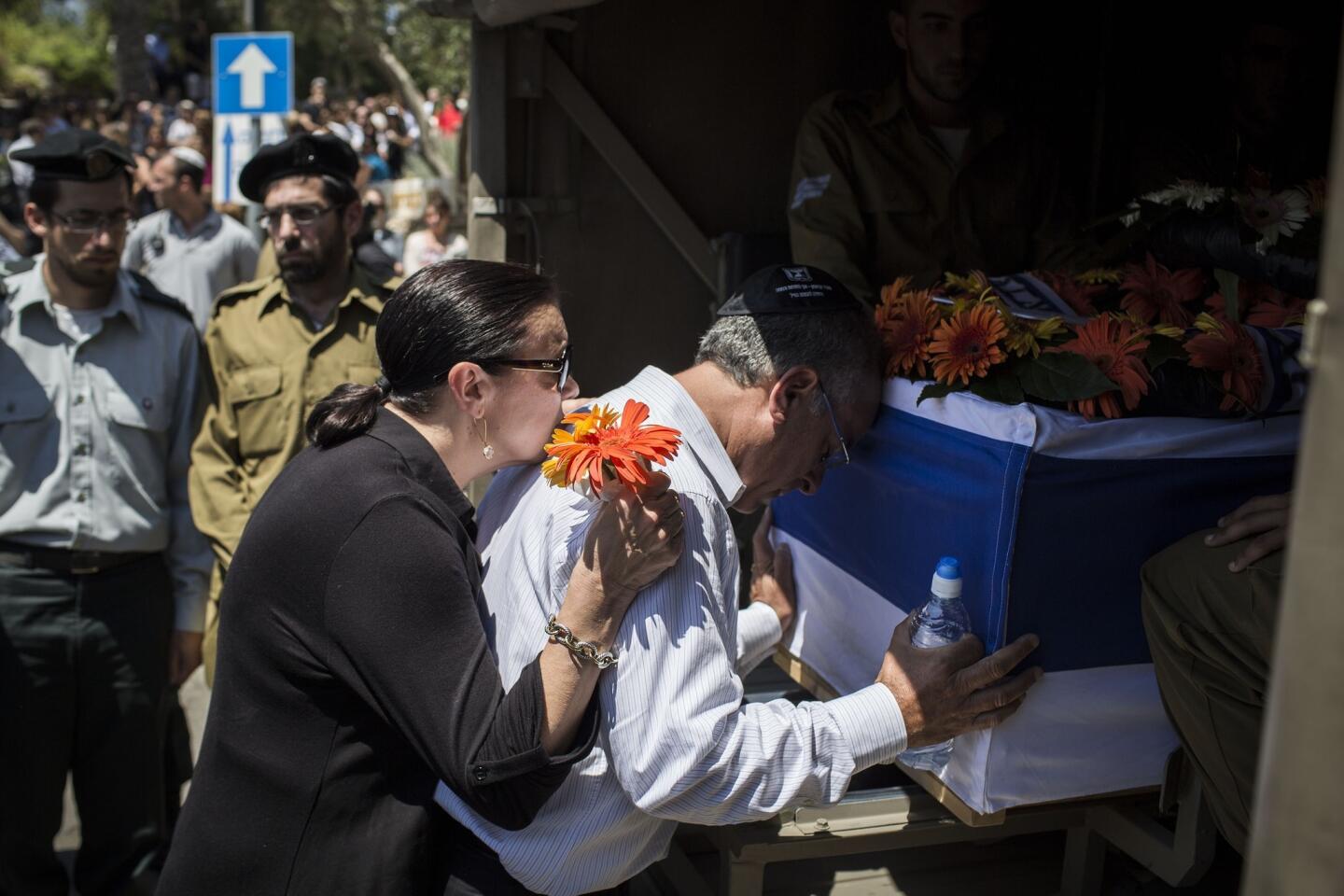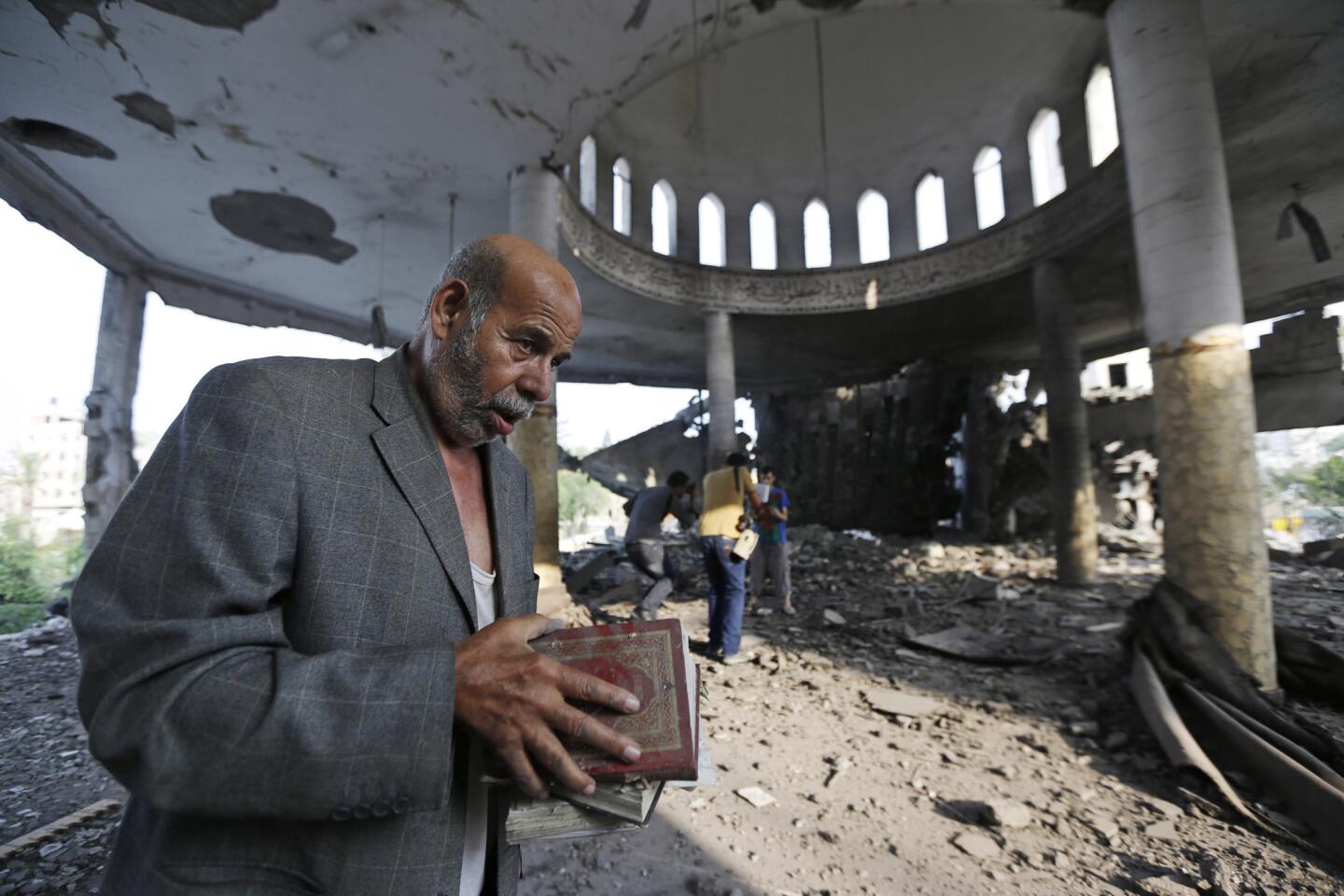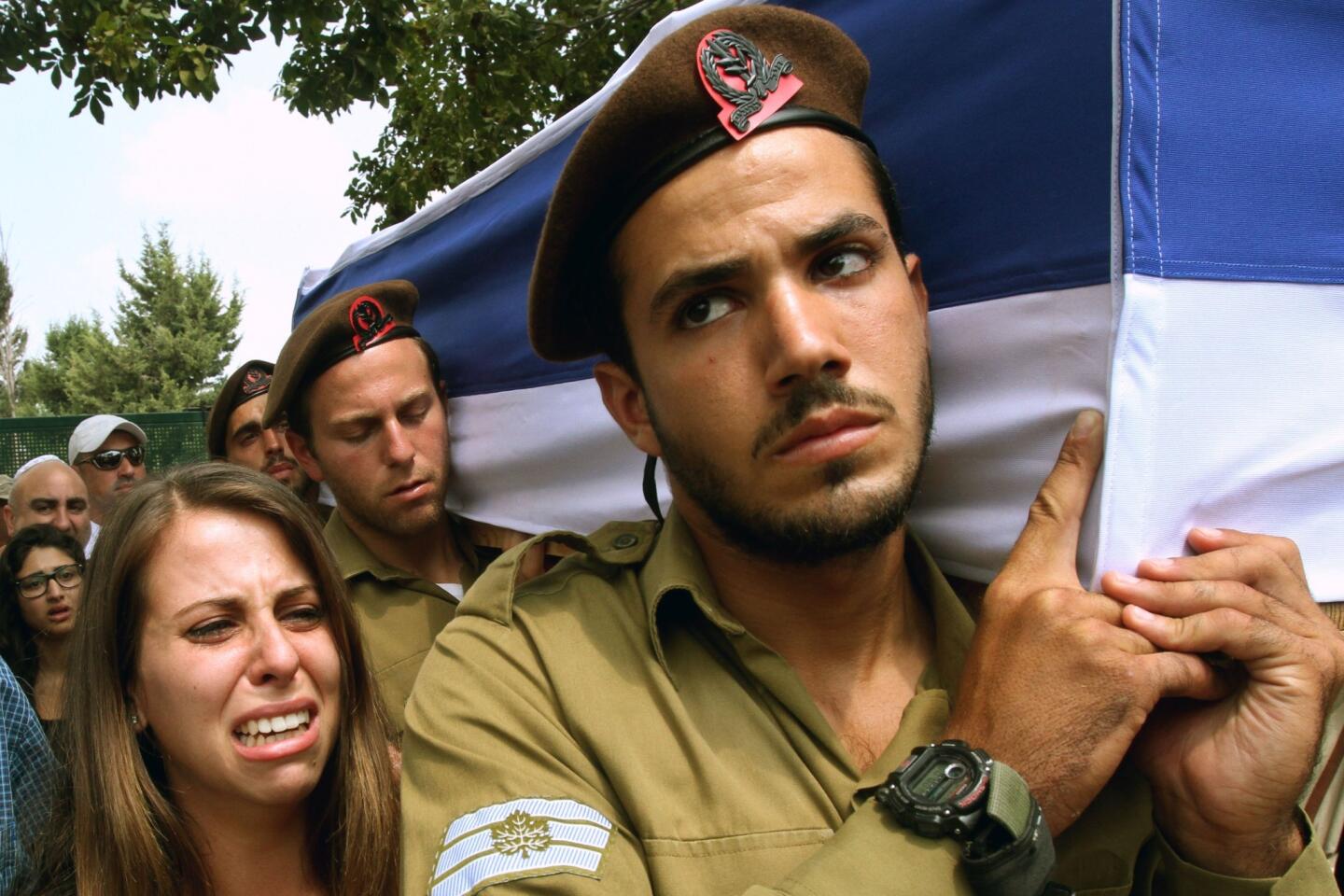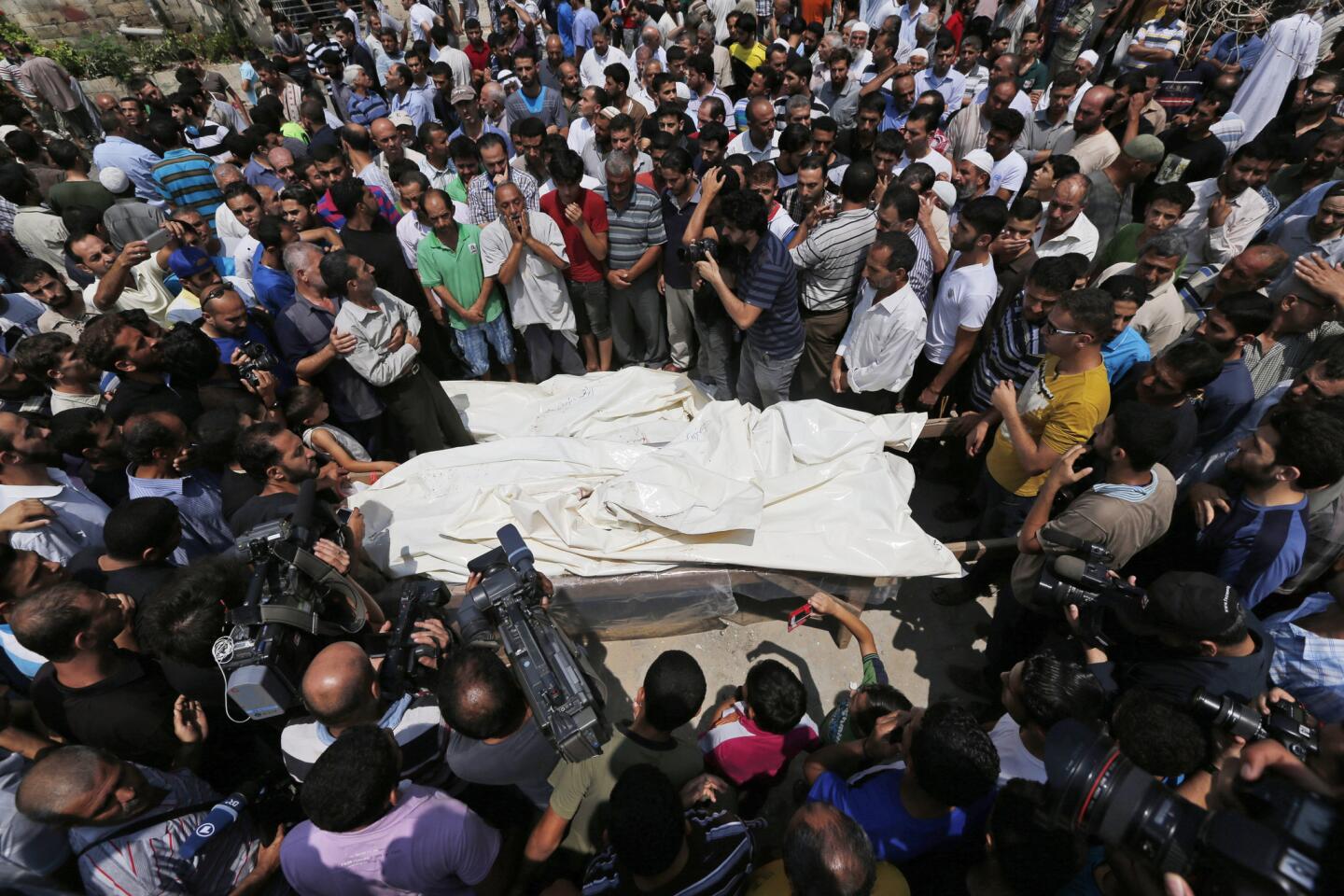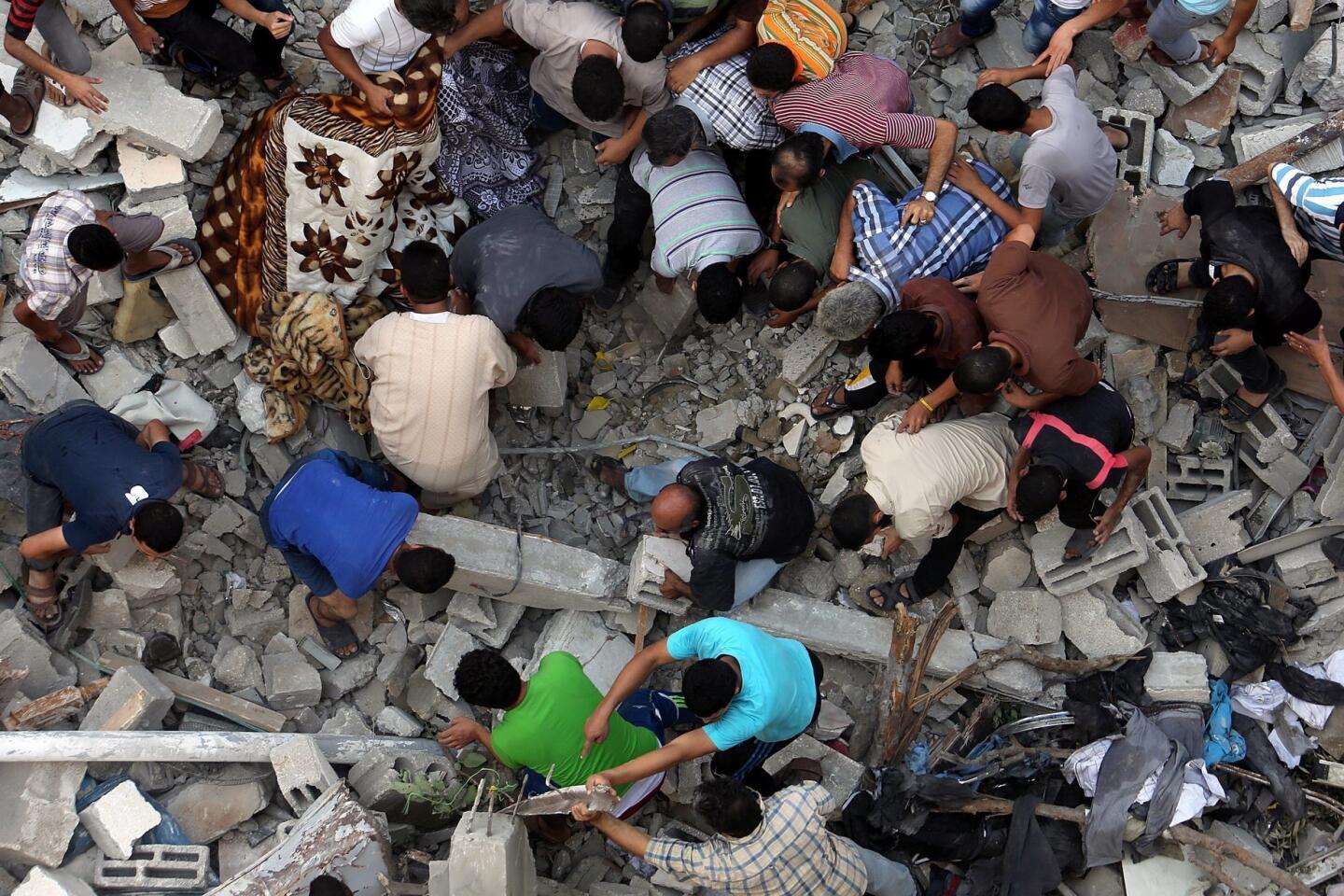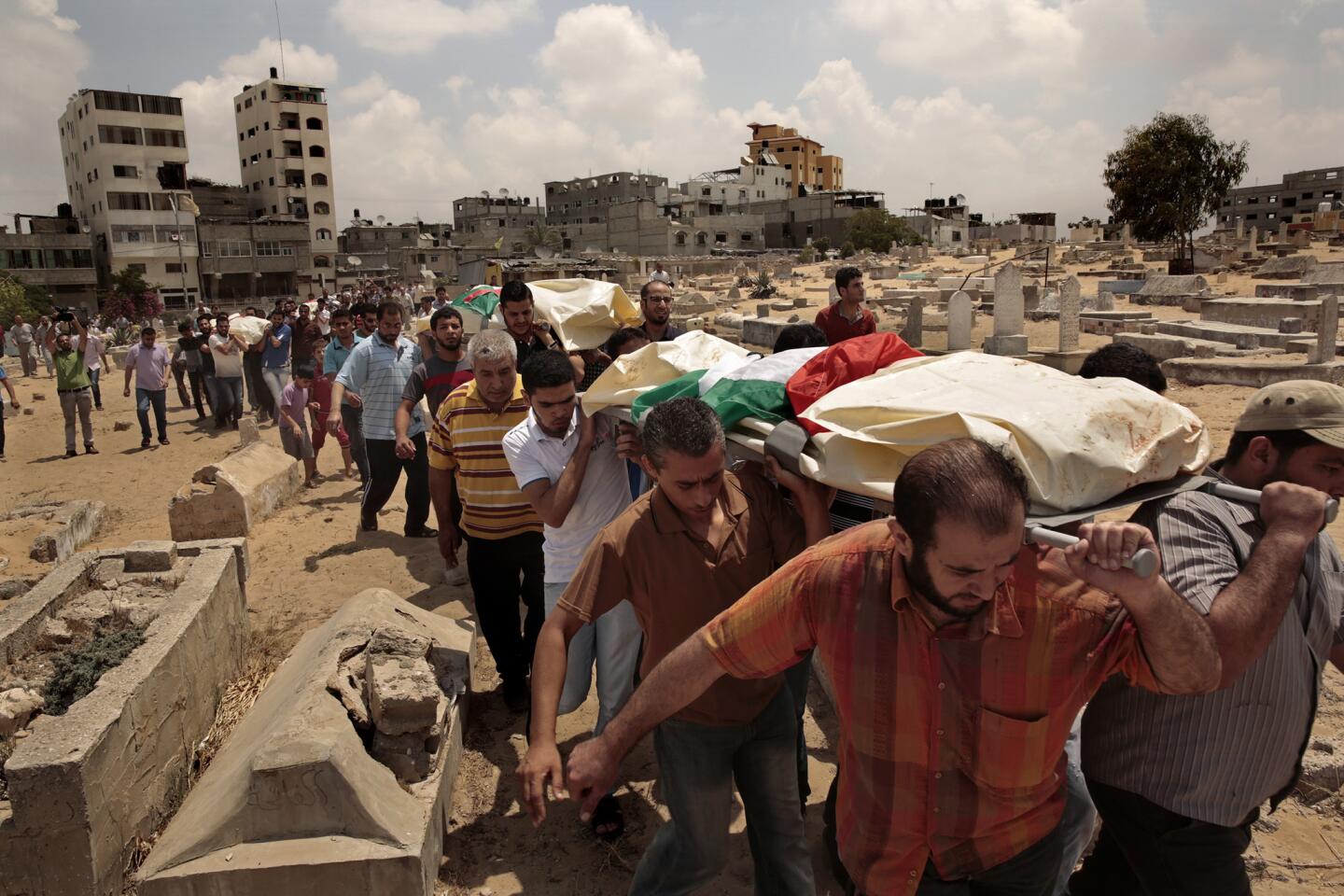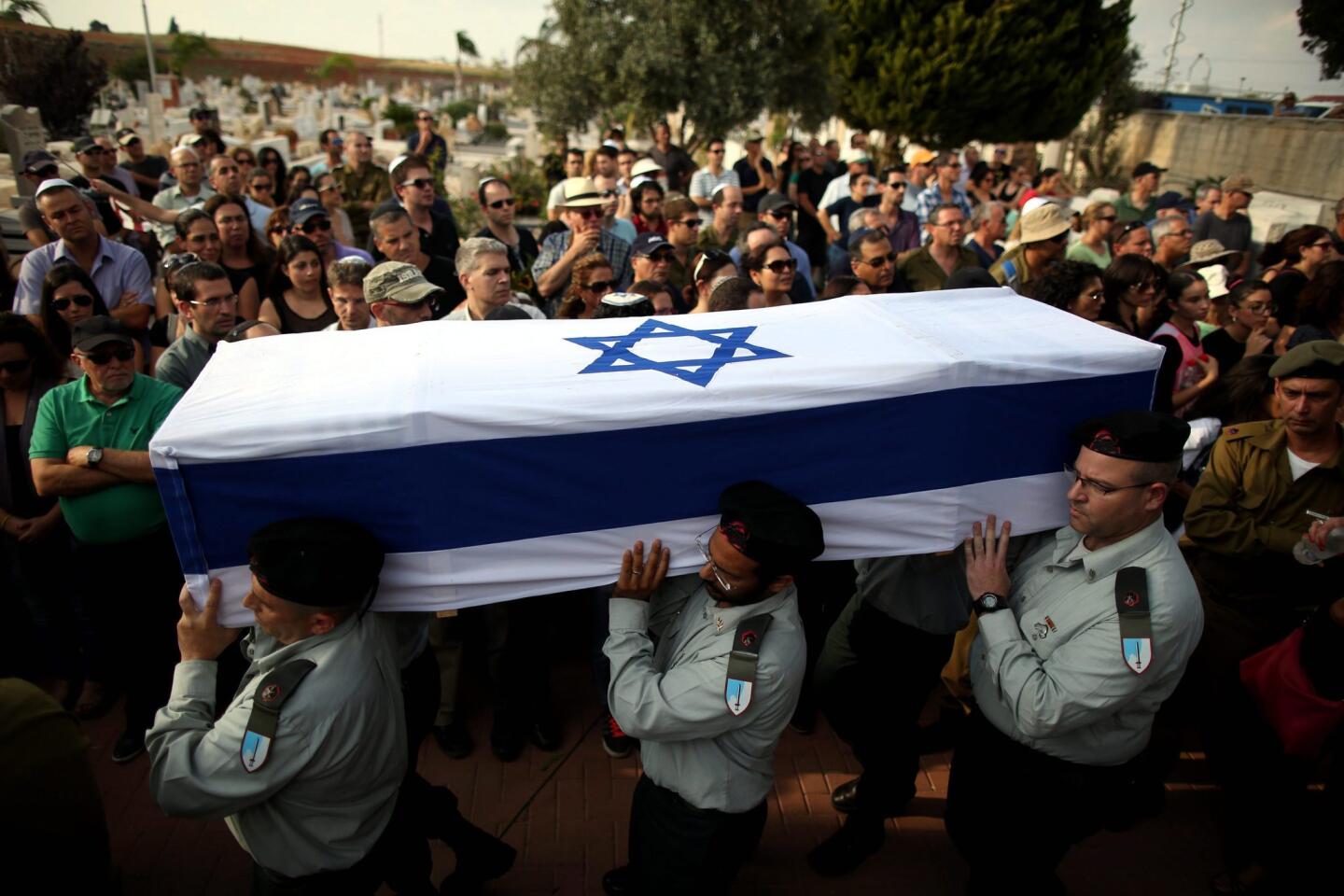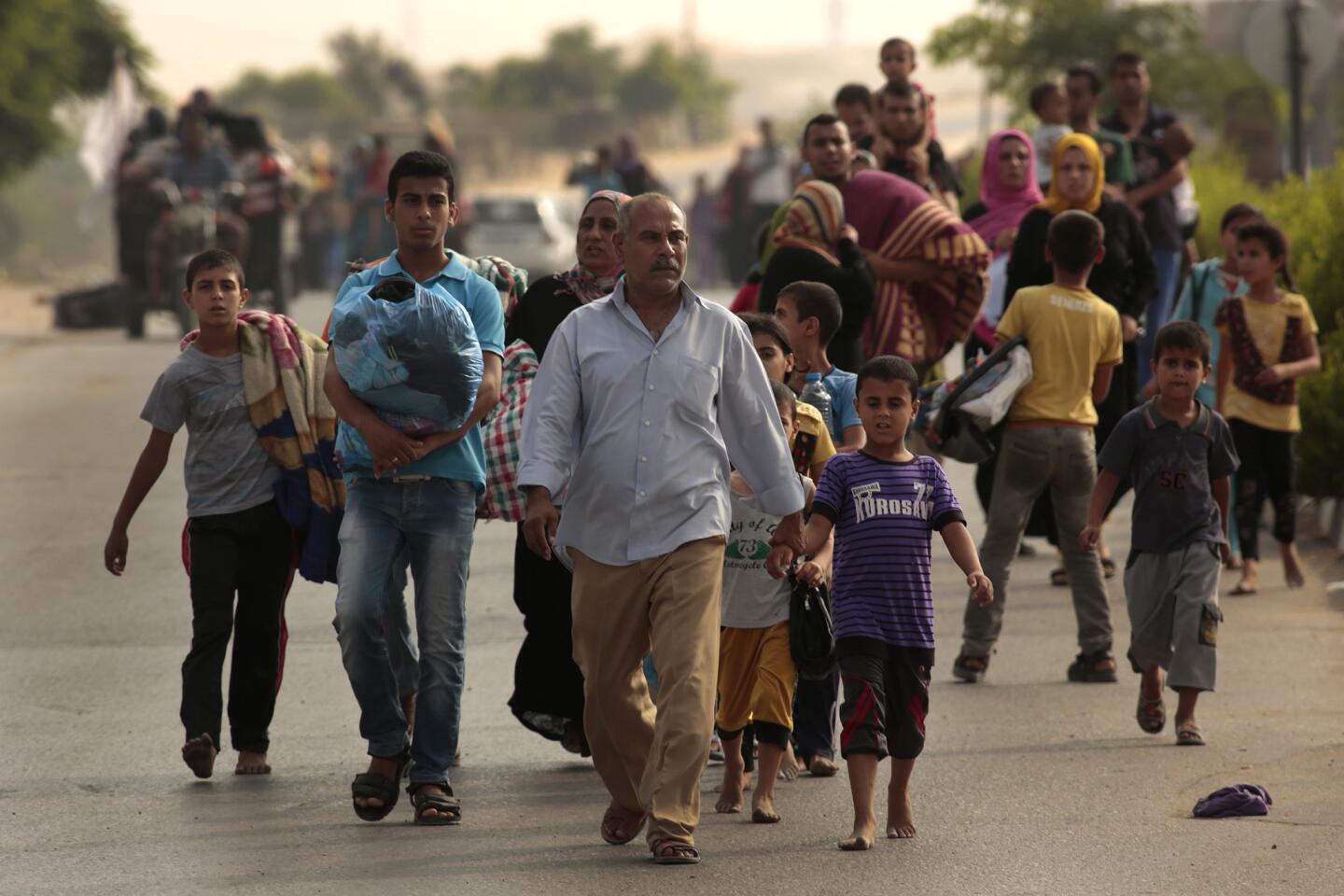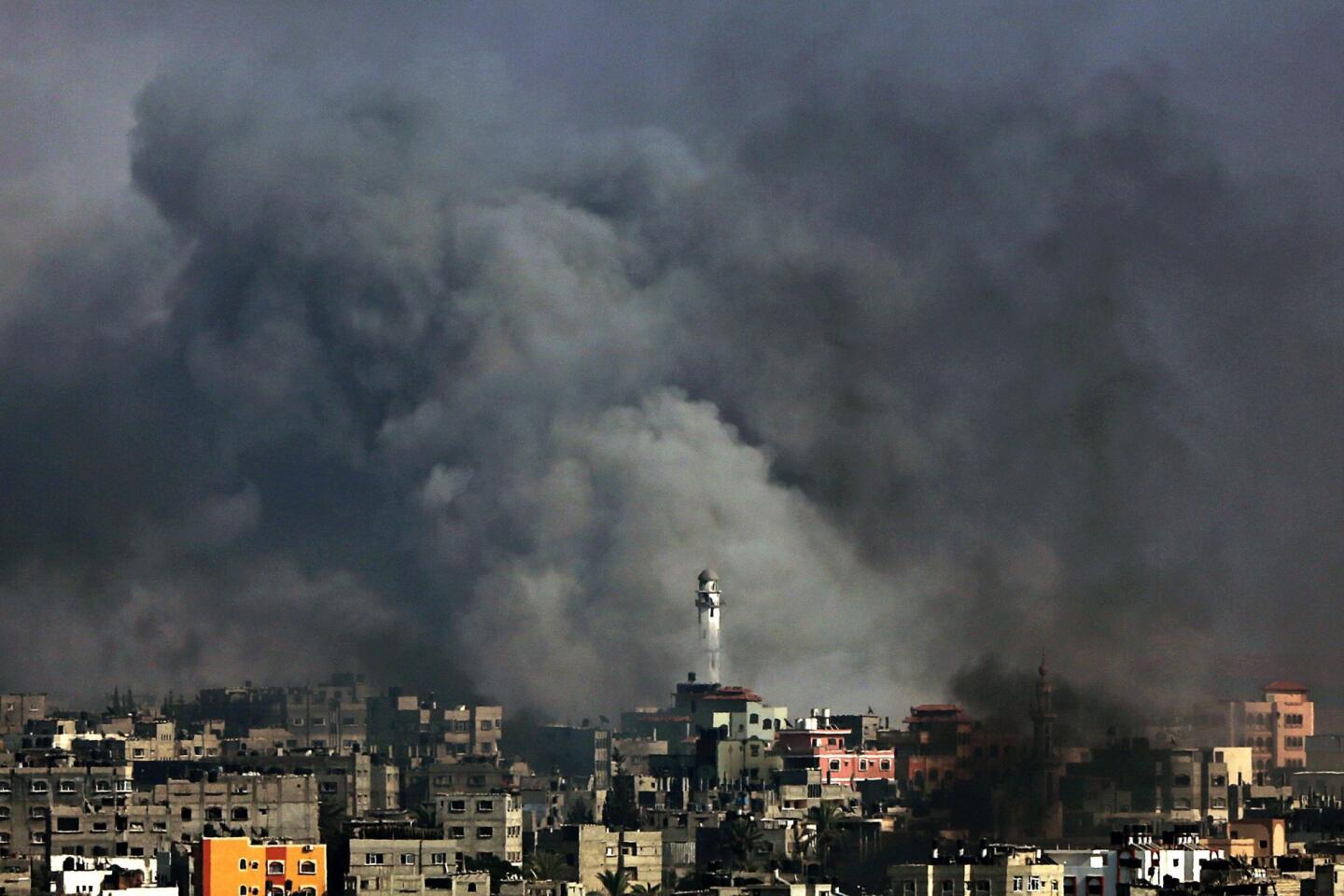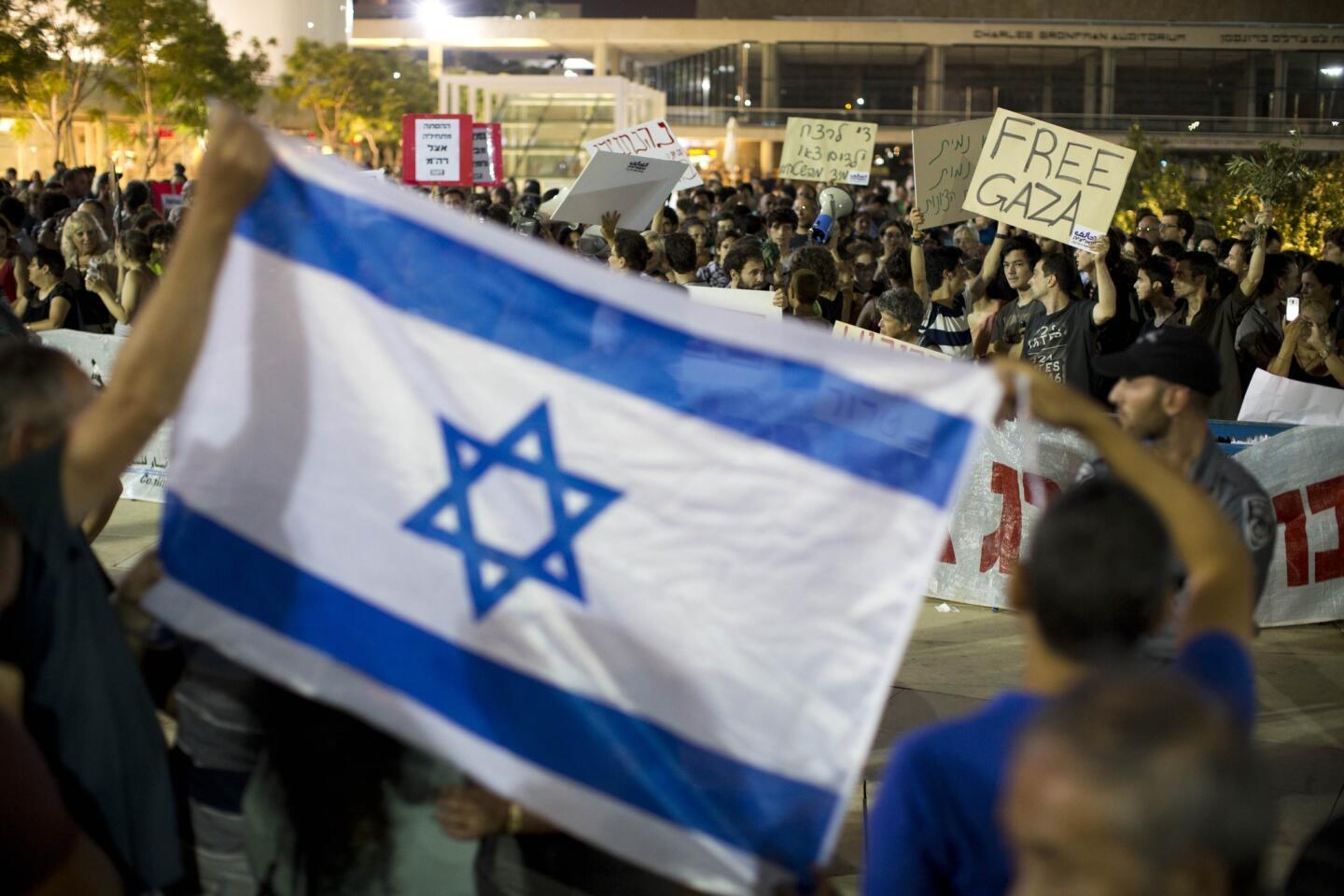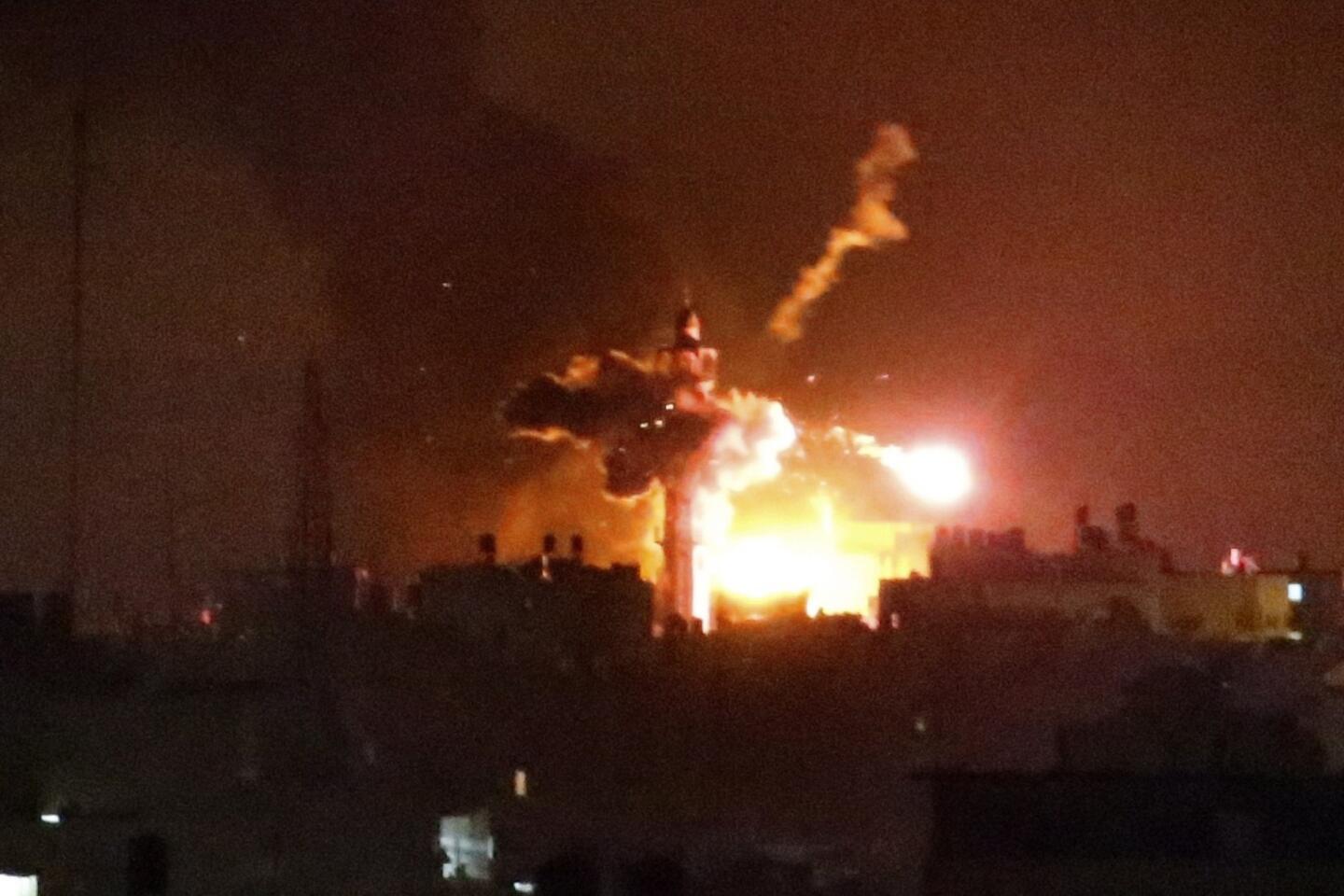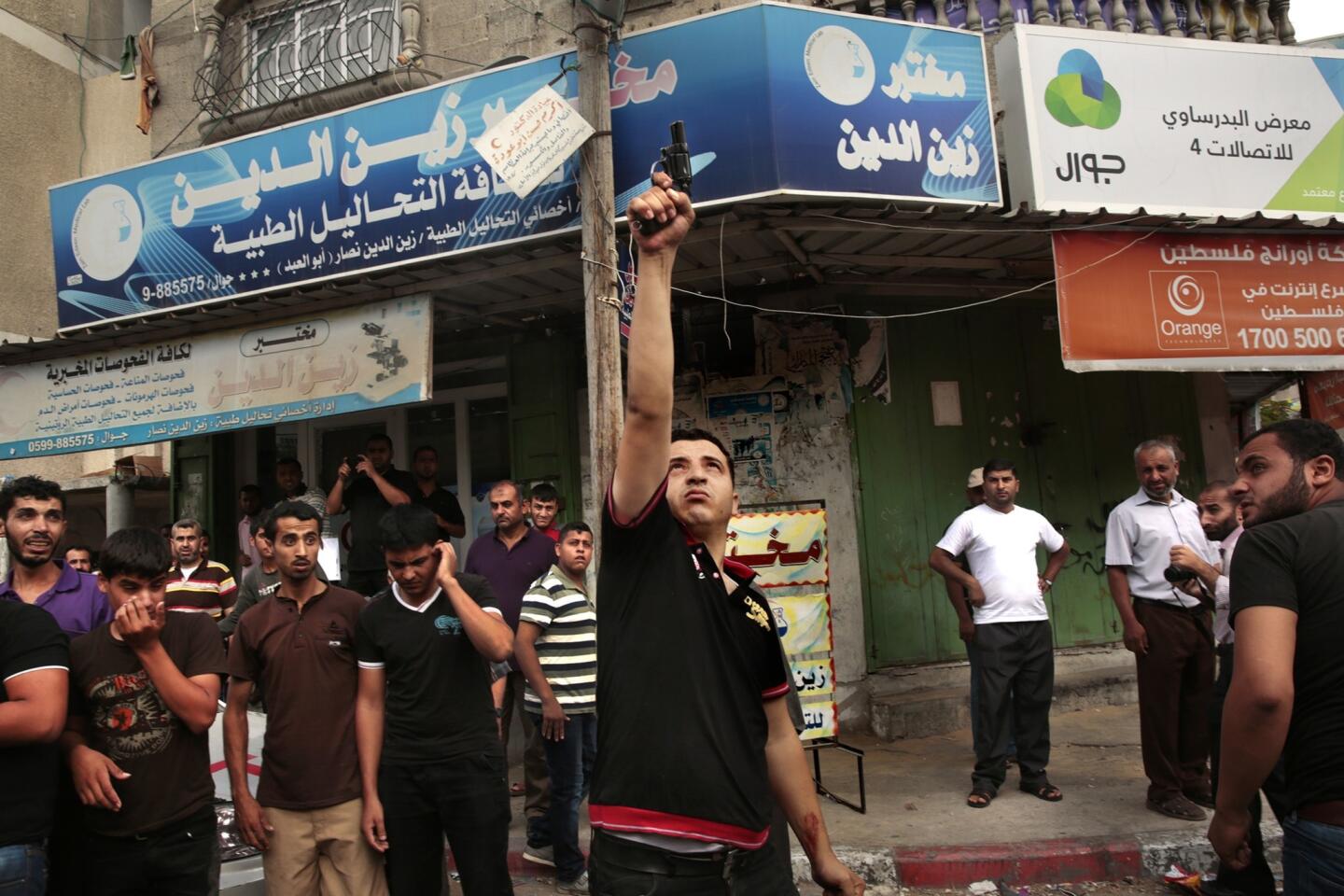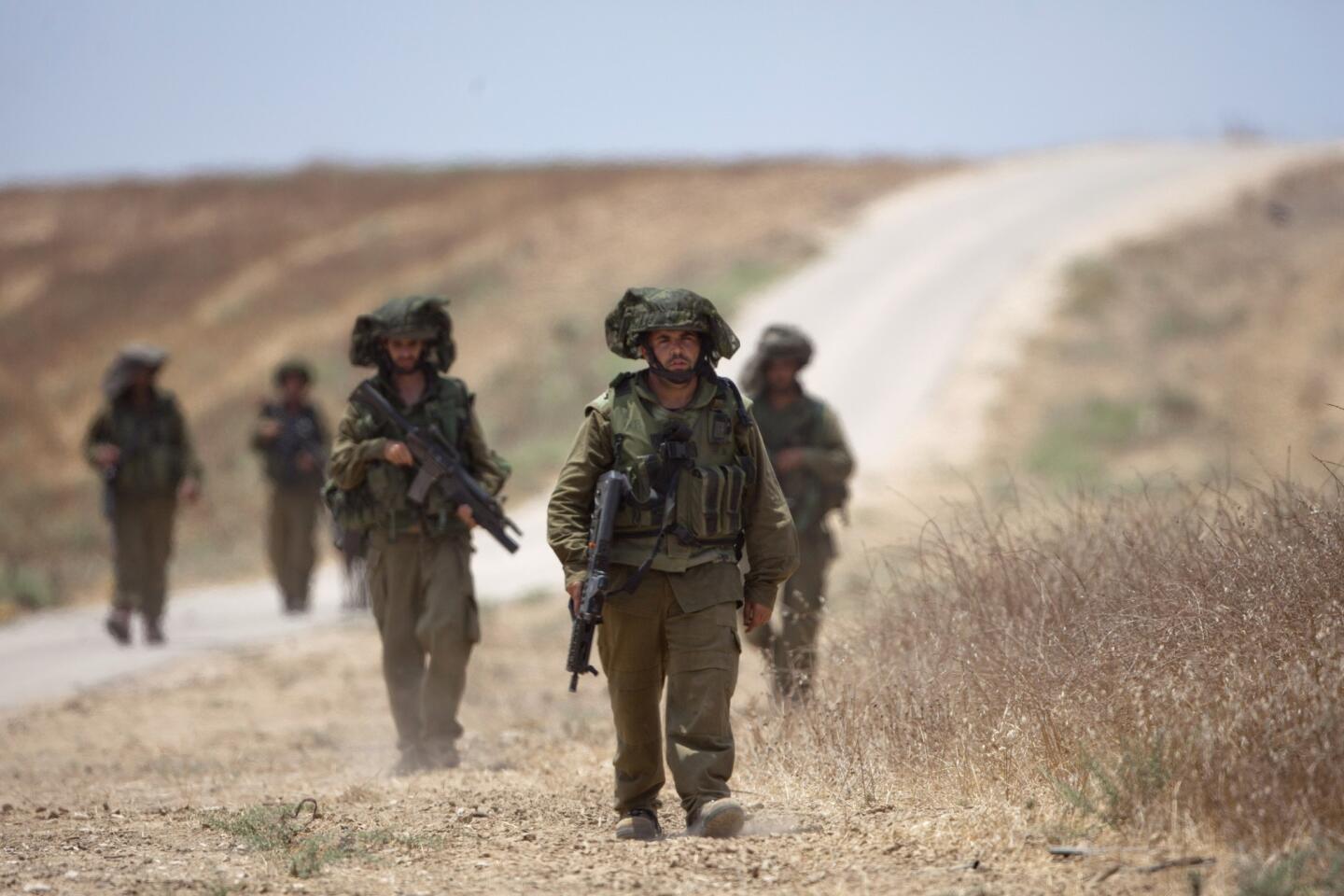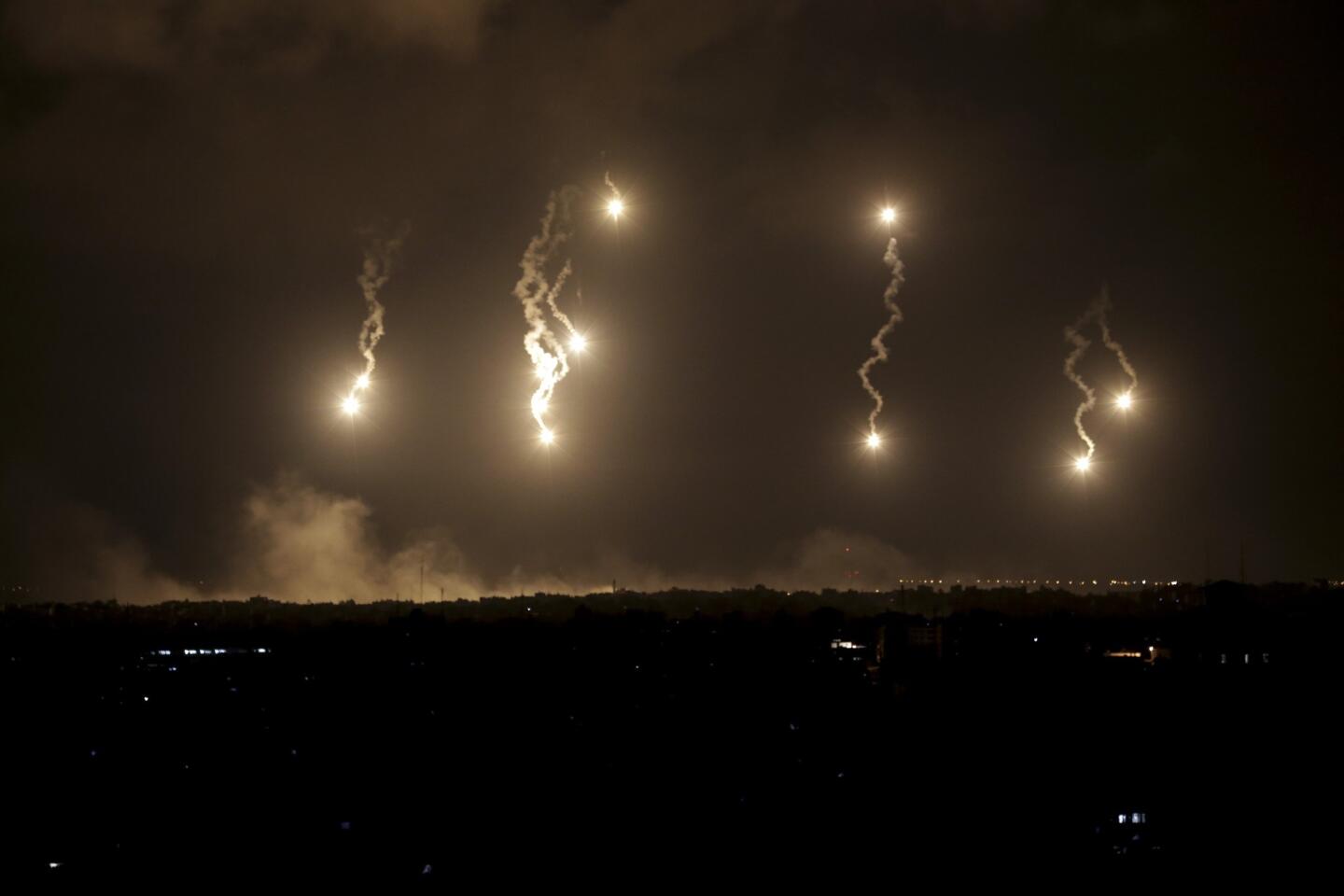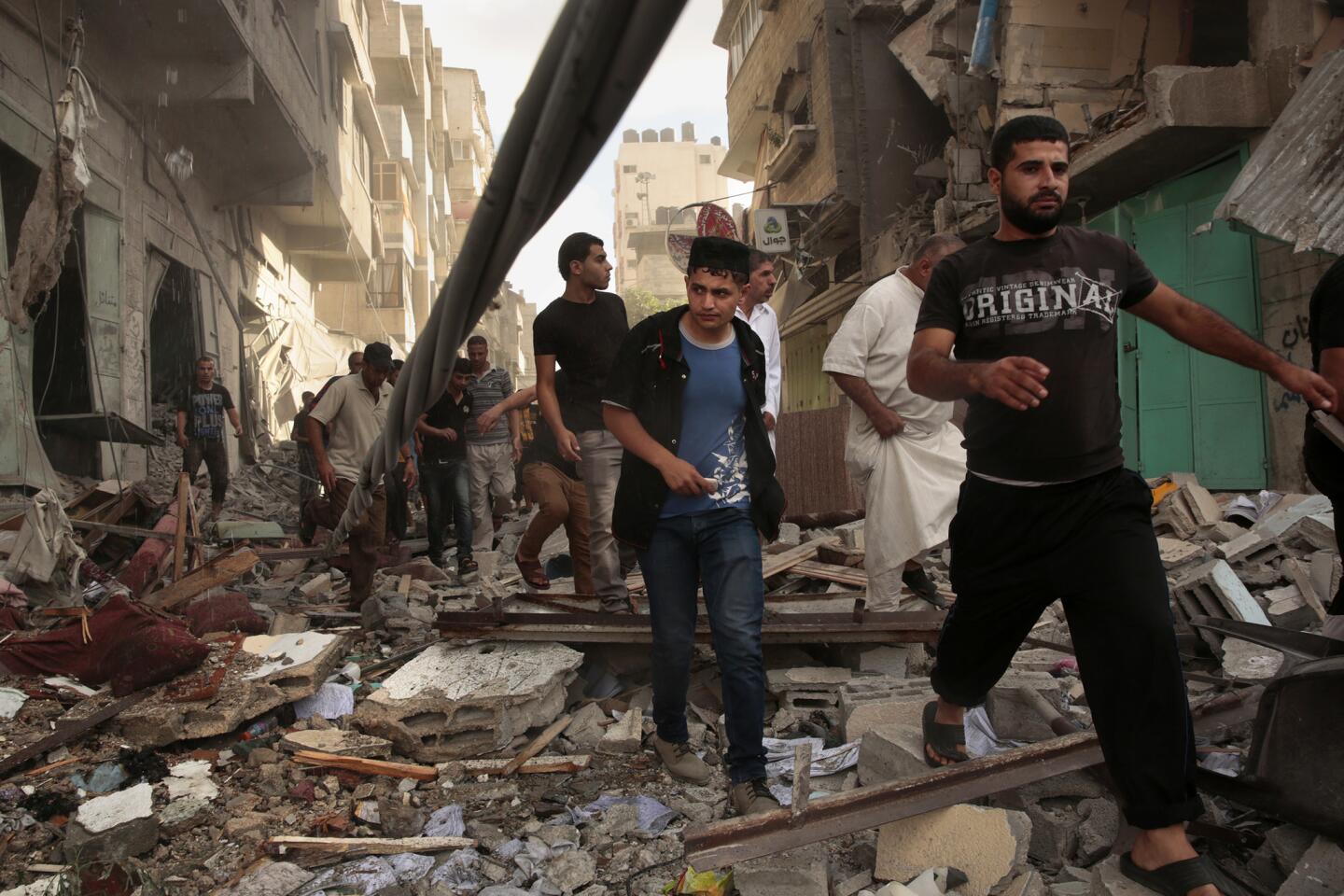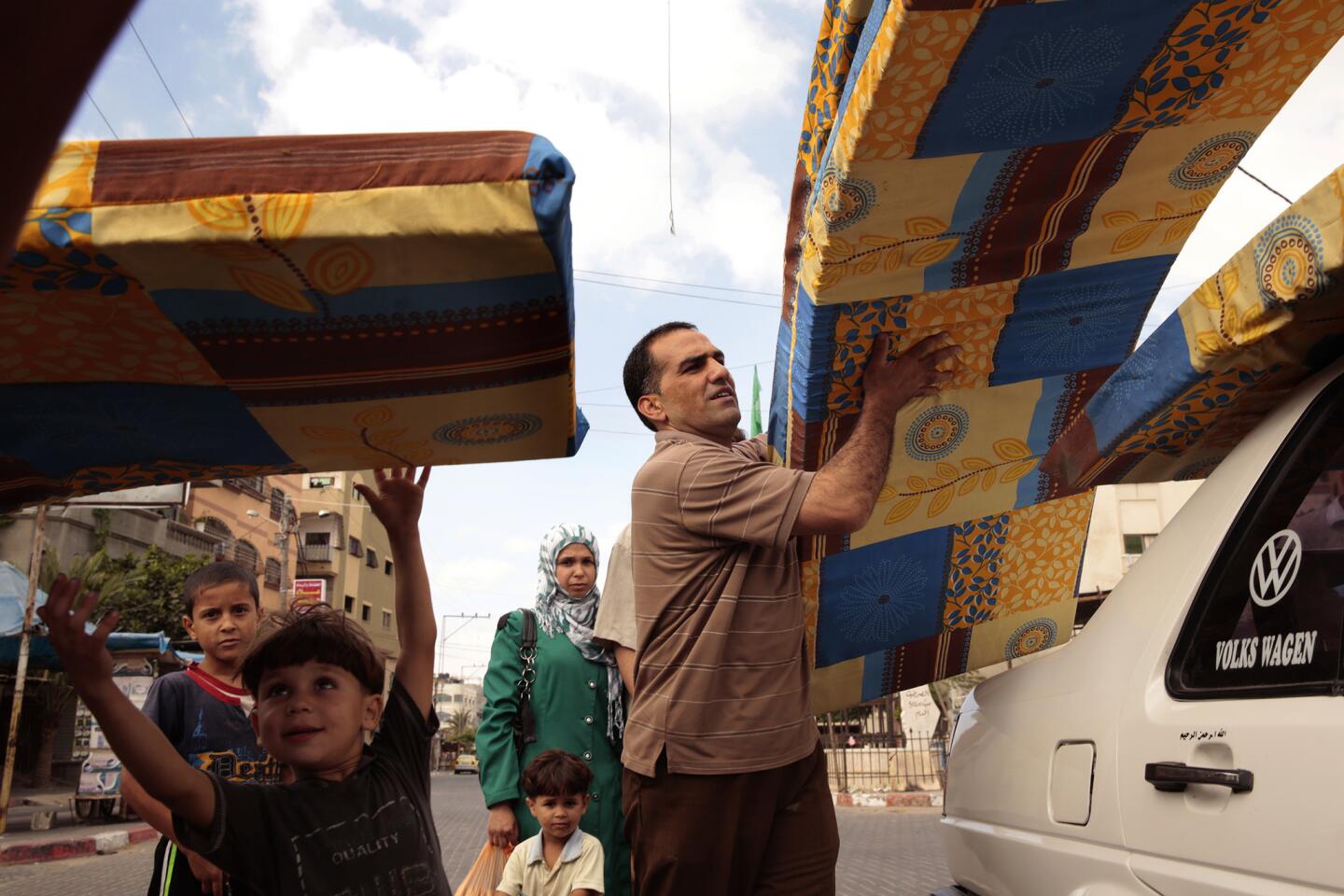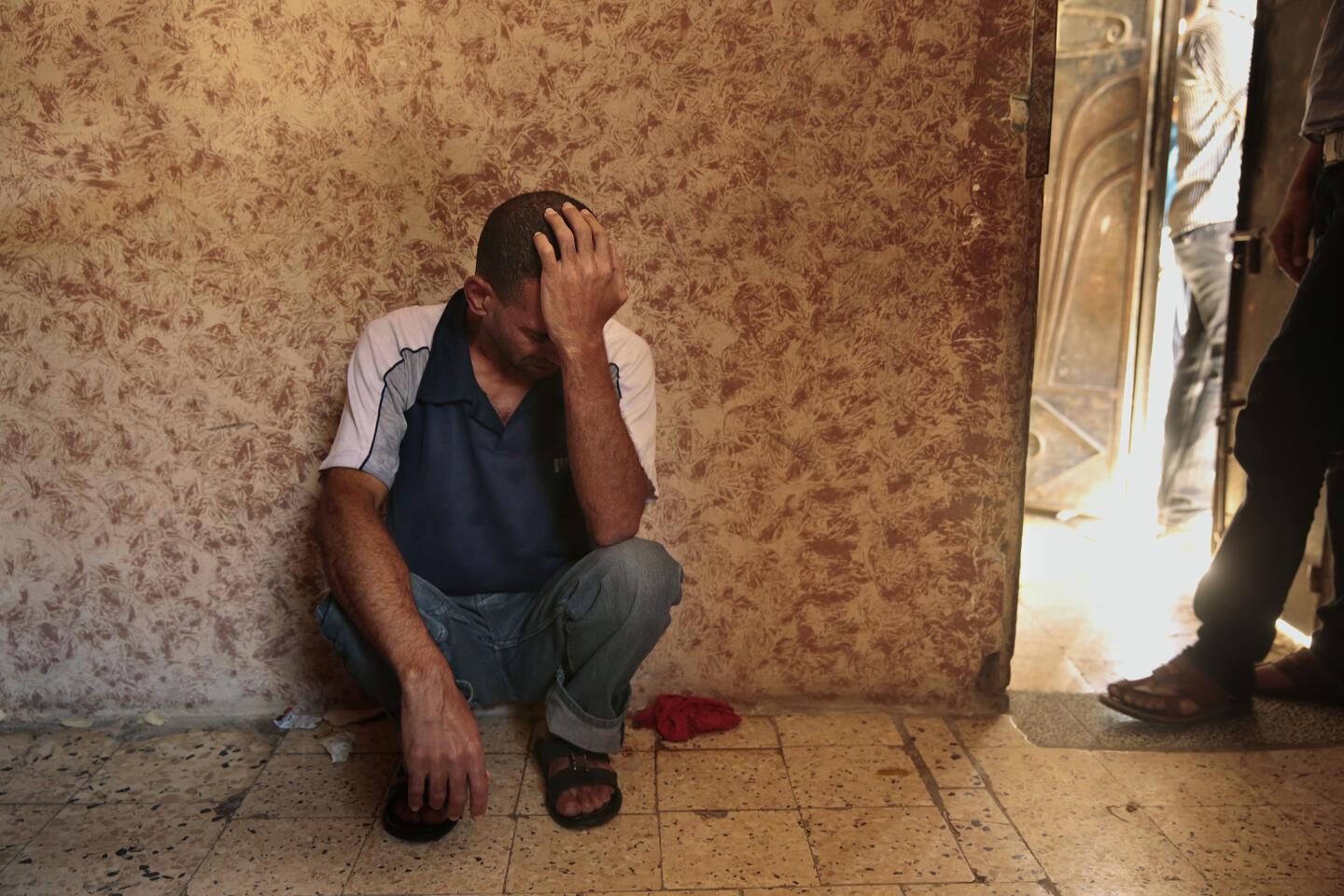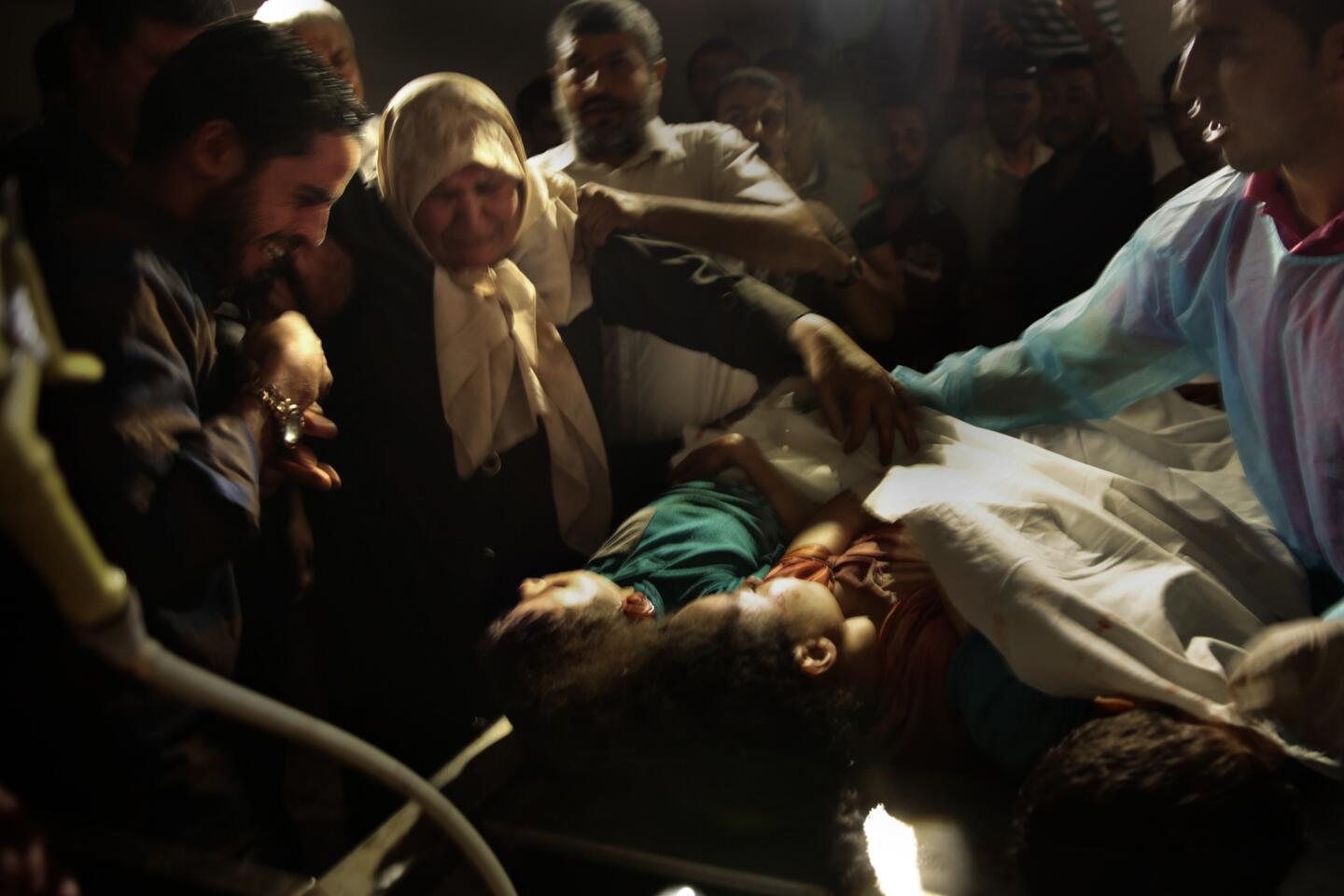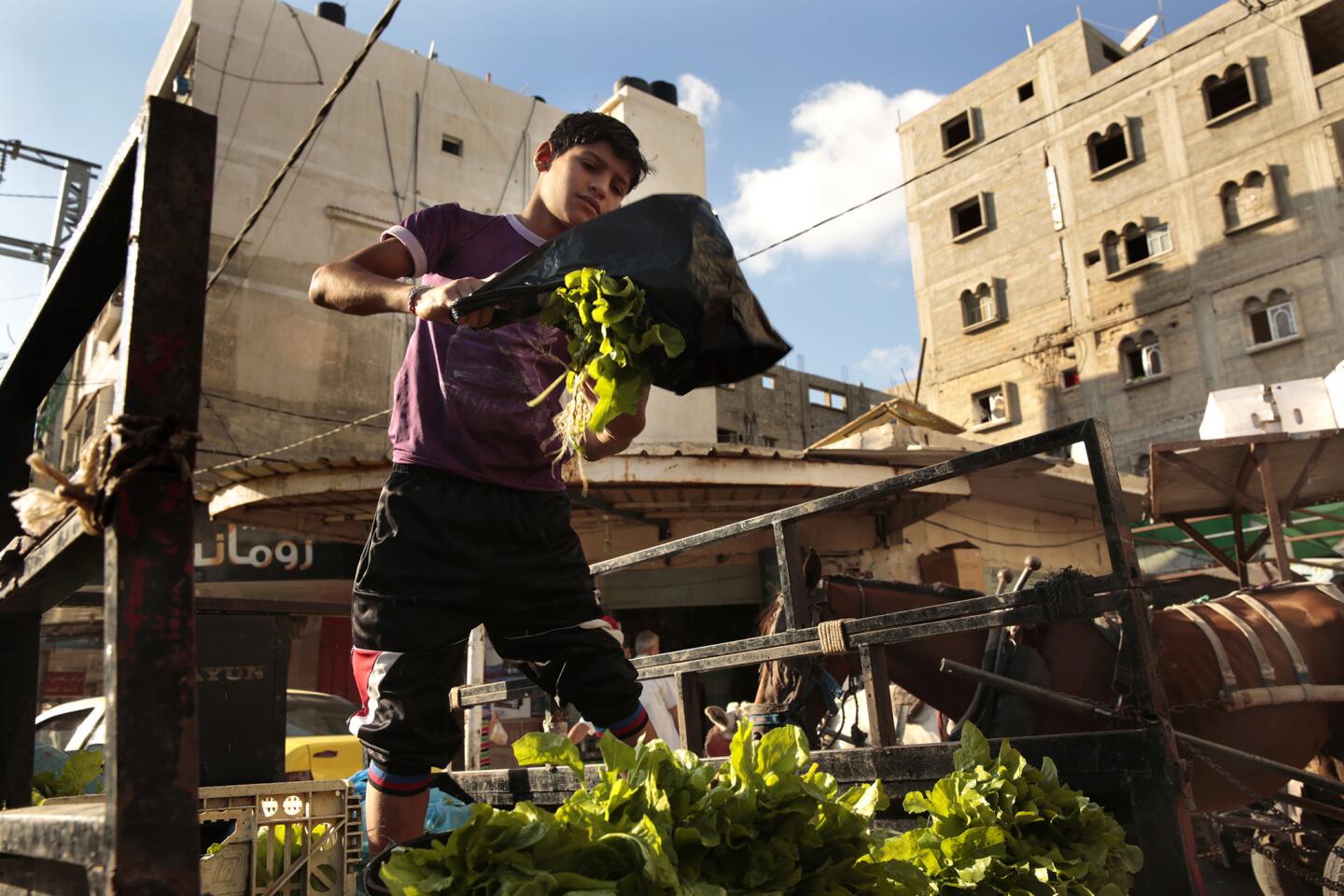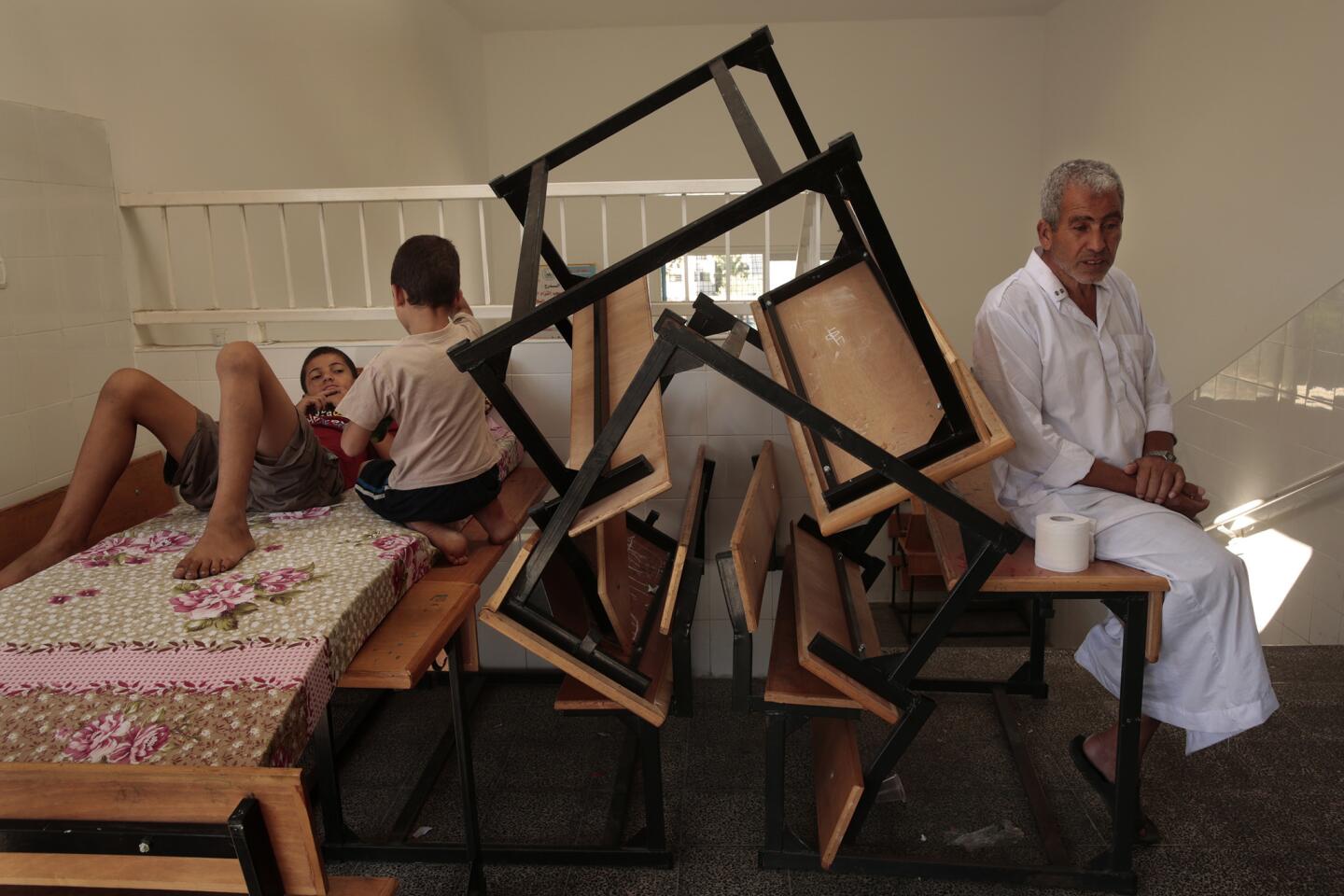Israel, Hamas agree to 12-hour humanitarian truce in Gaza
- Share via
Reporting from Cairo — Israel and the militant group Hamas agreed to a 12-hour lull in fighting beginning early Saturday, and U.S. Secretary of State John F. Kerry declared that a longer cease-fire in the Gaza Strip could be finalized before a Muslim feast beginning early next week.
But Israel rejected a proposal by the United States and United Nations for a seven-day truce. Its defense minister, Moshe Yaalon, put troops on notice Friday that ground operations in the coastal enclave could be expanded.
In Gaza, meanwhile, the Palestinian death toll from the 18-day Israeli offensive rose to at least 860, mostly civilians, including many women and children. Six more Palestinians died in scattered clashes across the West Bank that pointed to a potential widening of the conflict between Israel and Hamas, which controls Gaza.
Kerry, who has been in the region since Monday pursuing intensive talks, held an evening news conference in the Egyptian capital with U.N. Secretary-General Ban Ki-moon, Egyptian Foreign Minister Sameh Shoukry and Arab League chief Nabil Elaraby, all of whom have been working to prod Israel and Hamas into accepting a temporary cease-fire in hostilities while larger issues are negotiated.
Israel’s rejection of the seven-day cease-fire followed an hours-long session of its security Cabinet, an inner circle of senior government officials who held a rare meeting on the Jewish Sabbath to debate the truce proposal. Kerry visited Israel and the West Bank earlier this week to lay out the plan.
Though the rejection was unanimous, it put the government in an uncomfortable spot, said Robert Danin, a longtime U.S. diplomat in the Middle East. He said Israel needed U.S. involvement in the crisis and didn’t want to rebuff its closest ally at a time when it is facing increasing international isolation.
Israel’s message was, “We can’t accept this iteration, but we’d like to see if you can go back and get more out of Hamas,” said Danin, now with the Council on Foreign Relations.
Hamas, which last week rejected an Egyptian cease-fire plan that Israel accepted, has been insisting on an end to the Israeli blockade of Gaza before it would agree to a truce. Kerry acknowledged that all the pieces were not yet in place for a seven-day cease-fire to honor the Eid al-Fitr, the Muslim holiday that begins Sunday or Monday and marks the end of the fasting month of Ramadan. A truce coinciding with the feast, one of the most important on the Islamic calendar, would carry strong symbolic weight.
But though a final deal wasn’t ready, Kerry said, “I will tell you this: None of us here are stopping.”
The secretary played down the significance of Israel’s rejection, saying the vote was not in response to a formal proposal. Israel has been pressing for terms that would allow its forces to continue destroying Hamas tunnels into Israel while observing a cease-fire.
“The whole world is watching a tragic moment unfold, and wondering when is everybody going to come to their senses,” said Kerry, who was to travel onward to Paris to continue talks Saturday with Turkey, Qatar, France and Britain. “The basic outline is approved by everybody. People would like to see the violence end.”
Kerry’s proposal begins with a one-week cease-fire, and then moves to broader negotiations over the status of Gaza. Kerry also made clear that he believes the two sides need to complete their negotiations over the creation of an independent Palestinian state to finally resolve the problem.
A Hamas spokesman was quoted by local news agencies as saying the group had agreed to the 12-hour humanitarian truce beginning Saturday morning.
An Israeli military statement said the army would respond if Palestinian militants fired more rockets at Israel or attacked soldiers. It said the army would continue to look for Hamas tunnels in Gaza.
The Persian Gulf emirate of Qatar has been serving as an interlocutor with Hamas, which the U.S. considers a terrorist group and does not deal with directly.
Also Friday, the Israeli military announced it had definitively established that a soldier who had previously been described as missing had been killed in action. Hamas had claimed to have captured the soldier, which would have given the militant group a valuable bargaining chip. It never produced any proof the soldier was alive.
Despite Kerry’s claim of progress, he is likely to meet resistance from Hamas, analysts say. The militant group believes it has strengthened its political position through its military campaign and wants to see whether it can achieve its goals, including the release of Palestinian prisoners and an easing of the Gaza embargo, they say.
There are also signs that the conflict is gaining support among Palestinians. On Friday, the main Muslim prayer day and a traditional day of protests, the West Bank-based Fatah movement called for a “day of rage” in solidarity with those suffering in Gaza.
Demonstrations were smaller than those on Thursday night, when thousands of Palestinians clashed with Israeli forces in Palestinian neighborhoods in East Jerusalem and a main crossing point between Israel and the West Bank. But in an escalation of force, Israeli troops used live ammunition against demonstrators, Palestinian witnesses said.
The Palestinian protests, the most serious unrest in the West Bank since the start of the Gaza offensive, were sparked by at least 15 deaths at a U.N. shelter in northern Gaza on Thursday. Hamas accused Israel of striking the facility. Israel’s military said the incident was still under investigation, suggesting that errant rocket fire from militants might have been to blame.
Meanwhile, Hamas and other fighters in Gaza unleashed a new volley of rockets at Israel, most of them intercepted by the Iron Dome antimissile defense system. Several of the projectiles were shot down in the general vicinity of Ben Gurion International Airport outside Tel Aviv.
Times staff writer King reported from Cairo and Richter from Washington. Special correspondent Sobelman reported from Jerusalem. Times staff writer Alexandra Zavis in Gaza City and special correspondent Maher Abukhater in Ramallah, West Bank, contributed to this report.Follow @laurakingLAT on Twitter for news from the Middle East.
More to Read
Sign up for Essential California
The most important California stories and recommendations in your inbox every morning.
You may occasionally receive promotional content from the Los Angeles Times.
